

Is Caracas safe? 2024 Guide
Welcome to our Caracas safety guide.
The Venezuelan capital is a real thriving hotpot of culture, and is a great introduction for travelers looking to get to know the real, raw side of this South American country.
From seeing various historic landmarks to hiking in the towering El Avila mountain range , you may be surprised to learn that Caracas actually has quite a lot going for it!
Caracas Quick Summary:
- 📍 Where is it: Northern Venezuela
- 🗺 Difficulty Getting There: Moderately Easy
- ⏱ Time needed: 3-4 Days
- ☀️ Best Time to Visit: February/March
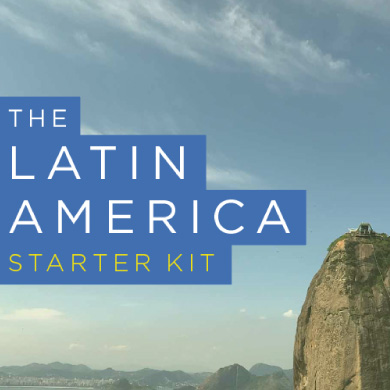
What's in this guide?
Is Caracas Safe?
In this comprehensive guide, we’ll explore everything you’ll need to know about Safety in Caracas as a backpacker or traveler .
We’ll look at all the different factors, our top safety tips, other useful information as well as an FAQ section where we answer your key questions.
We would advise any travelers who are thinking of heading to Venezuela to prepare properly before arriving, and to get in touch with us where we can offer more guidance.
Is Caracas Safe Right Now?
Quick Answer: With George having been here recently, he can confirm that certain parts of the city are actually safe for staying in (such as Chacao and Altamira). Be sure to prepare properly, avoid bad neighbourhoods and you can have a trouble-free time here.
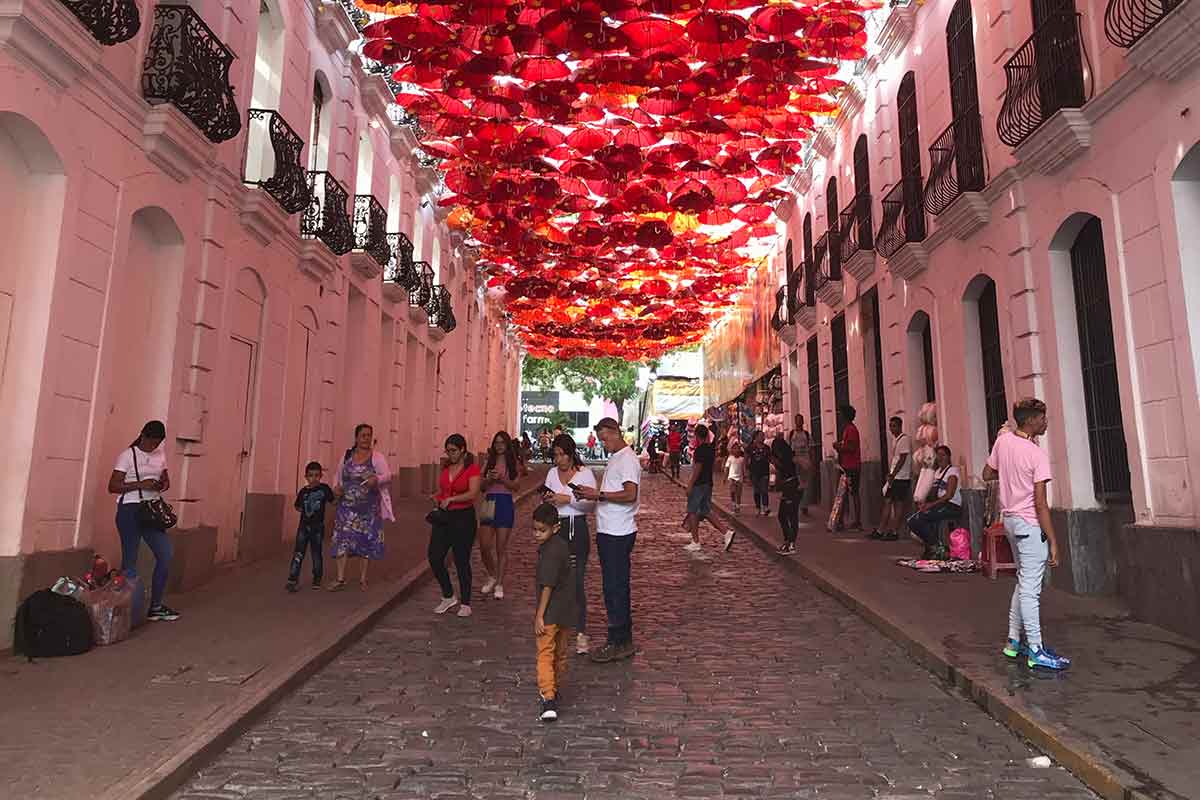
Having said that, Caracas isn’t the safest of Latin American cities. Due to the ongoing financial crisis, poverty has worsened in certain areas which has led to an increase of robberies and assault. We’ll explore these later so you’ll know exactly where to avoid.
Caracas Travel Warnings
As you can imagine, most official government websites give a pretty dire verdict when it comes to travel warnings in Caracas . For example the UK Government (FCDO) recommends against all but essential travel to Caracas, and even Venezuela in general.
Whilst we think this is over-the-top, it does mean there is one thing to be careful of – your travel insurance . Some policies won’t cover you when heading here, which of course can make things 10x worse if something were to go wrong.
One you have decided the best time to go to Venezuela and you’re fully prepared for your trip, be sure to check this small (yet extremely important) detail.
Where to Stay in Caracas
Travelers who are on a budget will want to stay at the Hotel Arroyo , which is located within the historic centre of Caracas. Whilst the area feels rough around the edges, it’s a good place to base yourself as long as you prepare properly. The hotel has nice private rooms, WiFi as well as an in-house bakery too.
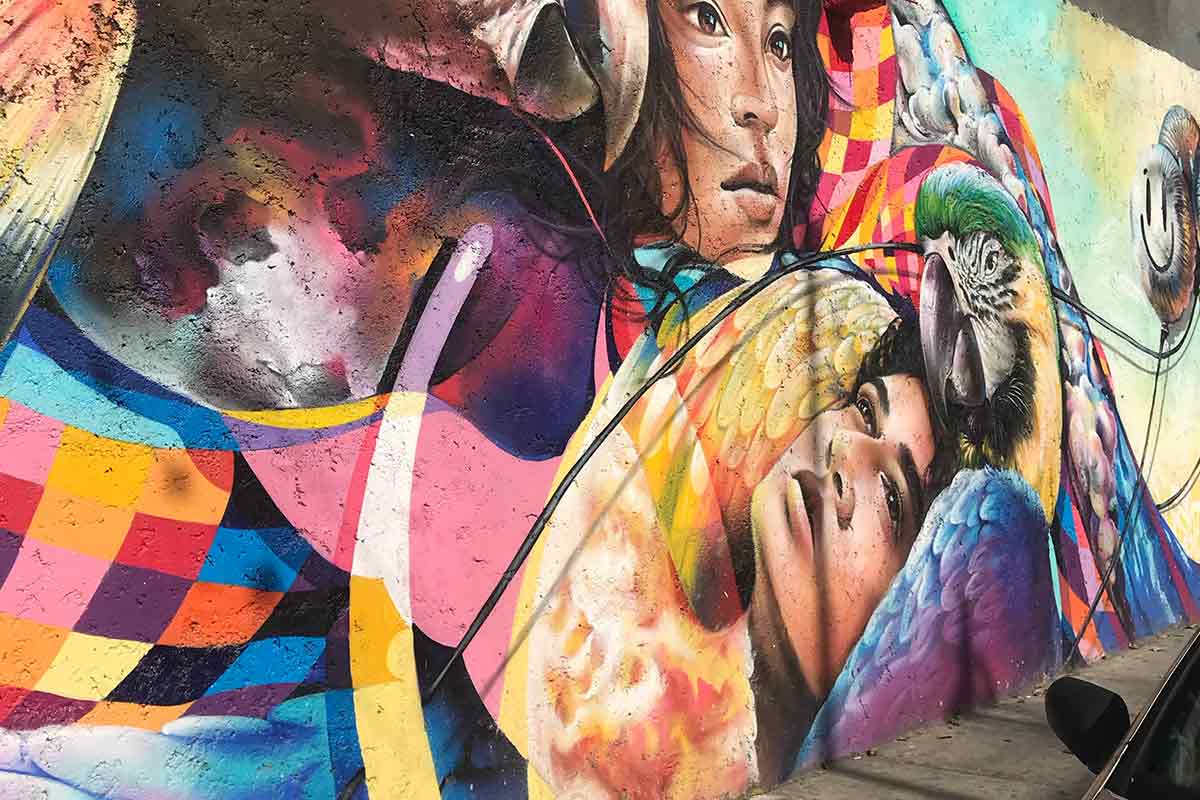
If you want a more deluxe experience, then staying in Chacao or Altamira is a better idea. The most affluent and safe neighbourhoods of Caracas, you’ll feel in an entirely different city when here. Of course prices will be much higher (which aren’t backpacker friendly), but still a good option nevertheless.
We recommend staying at the Pestana Caracas Hotel , which has pretty much all the amenities and luxury you would need during a stay (including a rooftop swimming pool and on-site gym).
It’s also worth looking through AirBnB too for the different options, which can be cheap as well as a nice introduction into Venezuelan culture (you’ll be staying with locals who can help you explore the city and gain confidence during your first few days here).
Things to do in Caracas
First of all, this city is famed for being the birthplace of Simón Bolívar , who was famous for liberating various South American countries such as Venezuela, Colombia and Panama . In Caracas we can visit the house where he was born, which has now been turned into a sanctuary detailing his life with various rare artefacts.
Nearby it’s also worth visiting the Plaza Bolívar, as well as getting a photo along the picturesque streets which both run adjacent to the Plaza el Venezolano (they have colourful umbrellas and multicoloured lights hanging from above).
It’s also worth visiting the El Ávila National Park too. Rising high above the city, this mountain range is perfect for hiking enthusiasts who want to get out into nature for the day, as well as explore the beautiful town of Galipán.
The teleférico connects the city up to the peak, and it’s worth riding at least one of the journeys up or down (there’s also a road up which you can either drive or walk).
You can read about George traveling to Caracas here as well as Venezuela overall.
Is Caracas safe to visit?
Below we’ll take a look at the current safety situation in Caracas.
Crime in Caracas
When staying in the areas of Chacao and Altamira, your biggest worry is getting pickpocketed . Although the majority of people living here are wealthy, it does unfortunately make it an area where opportunistic criminals look for easy pickings.
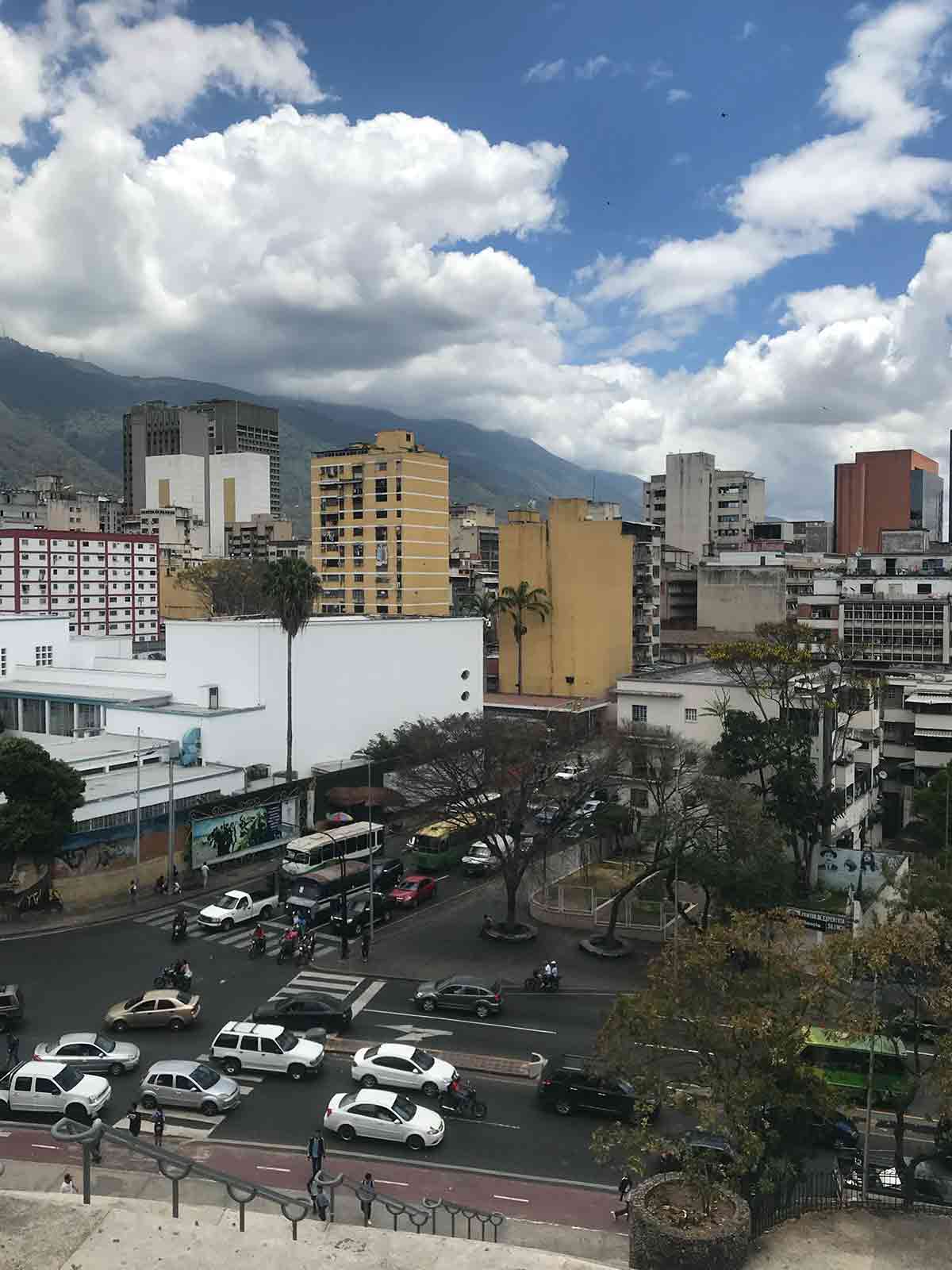
There have been cases of kidnappings too at night (further north near the Centro San Ignacio Mall), although these are rare.
Walking around these districts during the day is perfectly safe, although it’s still worth dressing down anyhow (especially when going to more local venues or markets).
In El Silencio it’s a whole different kettle of fish, and although it’s got many touristy highlights, you’ll need to take extra precautions when here.
During the day you’ll always want to keep valuables at home, and avoid walking along the main road (by Plaza O’Leary) where it’s much more unsafe. Avoid heading out at night when here , given the risk of robbery of assault can be high.
Then we have the areas you don’t want to go to (unsafe and also little tourist value). These include Petaré , 23 de Enero and Catia.
Aim to fine tune your Spanish before visiting Venezuela. Check out this Spanish phrase book which will give you some useful travel lingo to help you out while in the streets.
According to data collected by Numbeo, Caracas scored 83.10 on the crime index (0 being the safest whilst 100 the most dangerous). For reference, Mexico City scored 67.95 whilst Lima scored 70.70.
What parts of Caracas are safe?
The safest areas for tourists to head to in Caracas are Chacao and Altamira .
Here you’ll find residential areas and tree-lined streets that make you feel like you’re walking in a European city (serious here). During the day you can walk alone fine here, although it’s still best to avoid taking expensive valuables around given there’s always a risk of getting pickpocketed (same with wherever else you are in the world).
At night it’s fine to head to restaurants and bars too, although it’s best to take taxis to and from your accommodation.
Caracas Safety at Night
Like any other Latin American capital, Caracas descends into a buzzing chaos when the sun goes down.
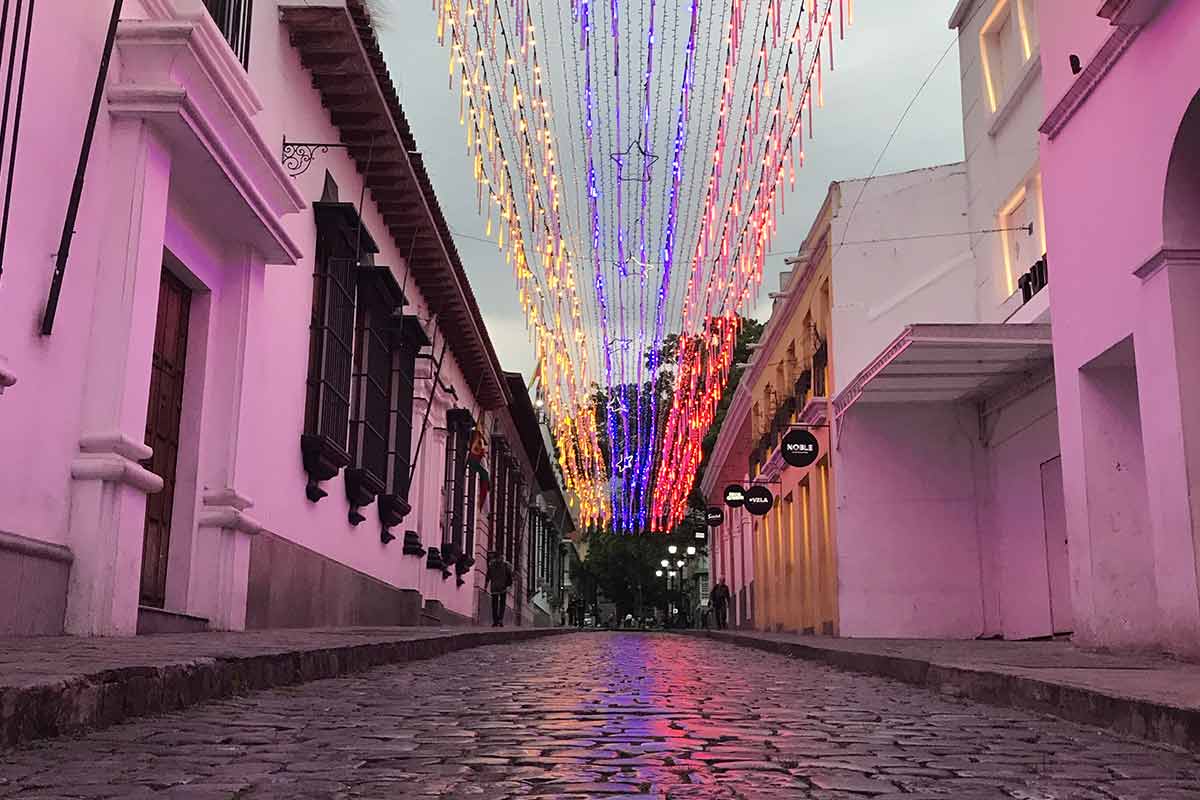
In areas like Chacao this means the area is full of awesome bars and clubs to head to, and the more experienced travelers (or those in small groups) can easily walk around fine at night .
However other areas quickly become dangerous at night and aren’t worth the risk. One of these is El Silencio. Whilst somewhat okay during the day, at night it feels pretty seedy and not a place you want to be navigating back to your accommodation in the late hours. If you’re stuck out and it’s getting late, it’s best to get a taxi from a safe area .
Be sure to read our Venezuela Safety Guide for more tips on how to stay safe in both the capital as well as further afield in this South American nation.
Got travel insurance for Caracas?
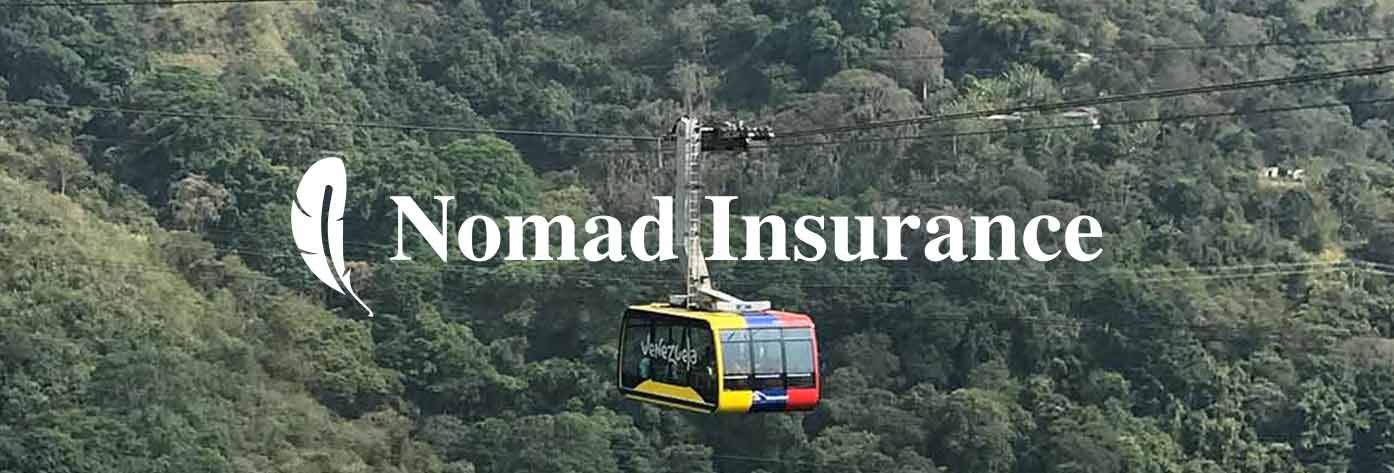
Are you planning to visit Venezuela soon? It can be difficult to find a reputable provider who will cover you in this country. SafetyWing is a solid choice who provide a monthly renewable plan, which includes medical cover and multiple home visits during your trip.
7 Safety Tips for Caracas
Below we will list 7 of our top safety tips for when visiting Caracas.
1. Stay in Chacao or Altamira
Although I ended up spending the majority of my time in El Silencio (I’m an experienced traveller through Latin America), I still recommend first-timers to head to Chacao or Altamira . These affluent barrios are very safe to walk around and feel much nicer than the others in Caracas. Whilst prices can be a little more expensive (be sure to check AirBnb too), the pay-off is that you’ll feel safer and have less worries about things going wrong.
2. Always keep your Wallet and Phone in your Front Pockets
For those short walks out to the market, or when heading on the metro or bus, this tip really is a life saver. Keeping things in your bad pocket is already a bad idea anyway (since it can fall out without you noticing). However it’s also much easier to be swiped by a thief whilst you’re completely unaware of what’s happening. Front Pockets are more secure since it’s harder to grab without you seeing , as well as the fact that they are also usually a tighter fit too. Even better is to carry a Safe Wallet with you at all times too.
3. Double Check the Dollar Bills you Receive
Not so much a personal safety tip, however instead a financial one. Given Dollars are so valuable (and nobody wants the local bolívares), it has led to many fake and counterfeit bills being made and passed through the economy. These can be checked with various tests (simply go to YouTube to see how), however it’s also important to make sure there’s no rips or tears in the notes either or they won’t be accepted (even tiny ones) . Ah, Venezuela.
4. Wear a Safe Money Belt when out exploring
Money Belts are a really good way of keeping valuables out of sight and away from potential thieves, and even better as it’ll be secured close to your body. No longer will you have to keep checking your pockets every 15 minutes to make sure your wallet and phone are still there when out on a walk! We highly recommend going with this particular Money Belt .
5. Use Extra Caution when Walking at Night
This applies to anywhere in the city. Chacao and Altamira are pretty safe, but even then it’s best to treat these neighbourhoods just like any other Latin American capital. This means dressing down and also avoiding walking with your phone out . If you’re anywhere else and literally need to leave for whatever reason, it’s very wise to use taxis to minimise the risk of either getting robbed, assaulted or even kidnapped (yes it’s happened various times before).
6. Take Advantage of the Metro System
Believe it or not, however I (George) actually thought that the metro was the safest way of getting around Caracas. Aside from the non-operating escalators, it’s quite an efficient system and I never really felt unsafe . Of course avoid taking phones or wallets out, given it may make you a target to opportunistic thieves. Also be wary when you’re packed tight in a carriage too, given it’s more difficult to see what’s happening.
7. Don’t drink Tap Water or Have Ice
This is standard advice heading to pretty much any third world country, but it’s especially true for those heading to Venezuela. Given conditions are already quite dire, it means that tap water is among the least of the worries there. This means you could get an infection and end up ill . It’s much better to drink sealed bottles of water, and also to avoid having any ice in your drink too.

Caracas Safety FAQ Guide:
Here we’ll take a look at the most frequent questions we get asked by our readers about safety in Caracas.
Why is Caracas so dangerous?
The main reason the Venezuelan capital is so dangerous is because of a high amount of organised gangs operating in the city and within the nearby mountains. This, along with a struggling economy and poverty makes Caracas very dangerous in certain areas.
Can you visit Caracas from the UK?
UK citizens with a valid passport can enter Caracas via its international airport for a maximum of 90 days. Although there’s no restriction on getting a tourist visa, it’s worth checking prior that your travel insurance will cover you here (since many won’t as soon as you step in Venezuela).
Do people speak English in Caracas?
As with the rest of Venezuela, the primary language spoken here is Spanish. You’ll find it hard to find locals on the streets speaking even a few words of English, although in nicer restaurants and hotels the staff are more likely to have a somewhat solid grasp.
What is the safest part of Venezuela?
Is caracas safe final words.
And that’s all for our guide on how to stay safe in Caracas.
The Venezuelan capital often strikes fear into travelers just by the name alone. However it’s not all doom and gloom here, and there are actually some really safe and well built-up areas to explore. You’ll also find many incredible things to see and do too when in Caracas.
In this guide, we’ve explored the current safety situation in Caracas , which includes the areas to avoid, as well as any current travel advisories. As well as looking at the best things to do in Caracas, we’ve also included our FAQ which answers your most burning questions.
While you’re still here, be sure to read our backpacking Venezuela itinerary for even more first-hand tips and travel inspiration.
👉🏽 P.S. If you’ve found this guide helpful, buy us a coffee here to say thanks! Or, support us by downloading our South America Travel Bible to get our best content.
“ Dear traveler! Some links in this post contain affiliate links. Meaning, if you click through and make a purchase, book a hostel or sign up for a tour, we may earn a small commission at no additional cost to you . Your support means a lot and helps us to carry on traveling and maintaining the quality of this site for you.”
Similar Posts
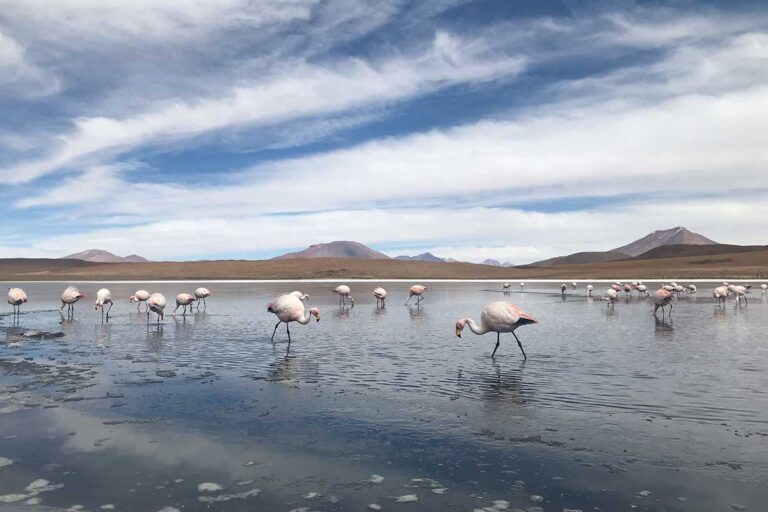
Is Bolivia worth visiting?
Is it worth visiting Bolivia when in South America? A staple along any South American itinerary, Bolivia is a must for those who want a true adventure. Not only is it great for backpackers (given how insanely cheap it is), it also has some truly epic destinations. From the legendary salt flats of Uyuni and…
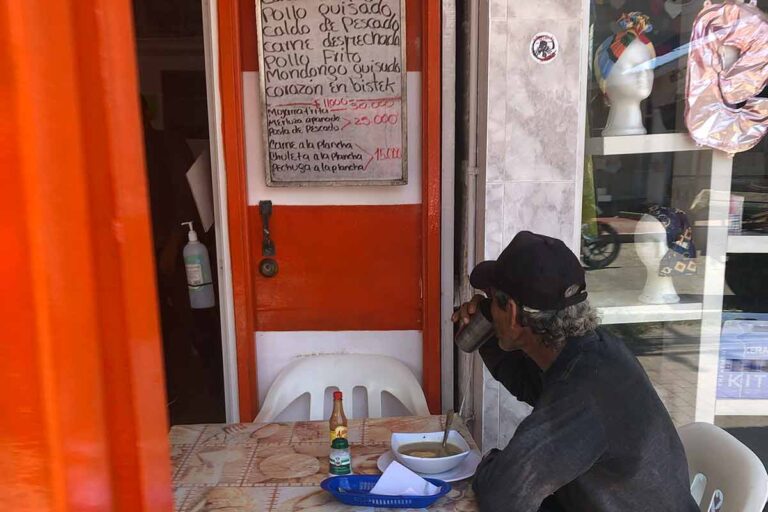
Drinking Water in Colombia: is it safe?
Have you ever thought about what the drinking water in Colombia is like? Most travelers heading to Colombia often worry about crime when thinking about how they can stay safe, however they don’t really think about how they can drink water safely which is just as big of a risk. Given much of Latin America…
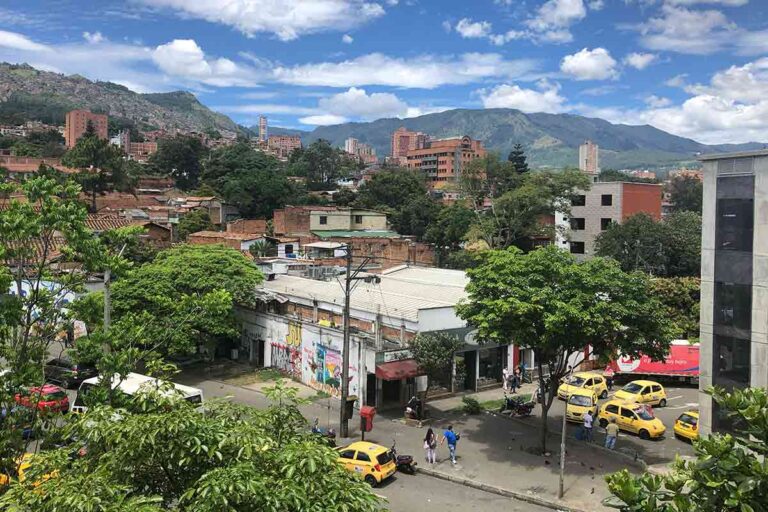
Is Medellin worth visiting?
Is Medellin worth visiting? As one of the most popular cities you can visit in Colombia, Medellin has pretty much everything going for it. From its lively plazas and upscale districts to day trips to both incredible (and bizarre) attractions, many travelers find themselves coming back to Medellin more than once! In this article we’ll…
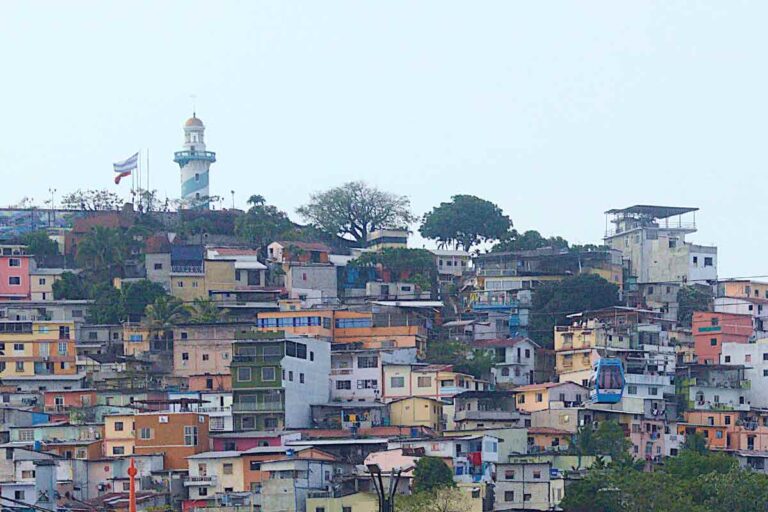
Things to do in Guayaquil, Ecuador
Welcome to our backpacking Guayaquil travel guide. Most who come to Ecuador rarely spend time in Guayaquil, instead focusing more on the Andes and northern coast. However, not all is doom and gloom in this coastal city, and as we’ll see later in this guide, there are actually quite a few worthwhile gems to explore…
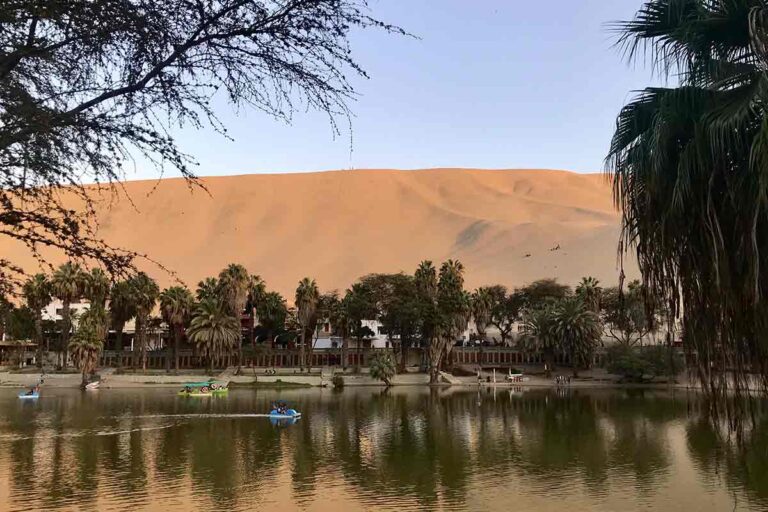
10 day South America itinerary
Welcome to our 10 day South America itinerary. This extraordinary continent is a rite of passage for travelers, with many considering it the ultimate place to come for adventure and unforgettable memories. Here you can find beautiful sceneries that range from alpine lakes and icy mountains to the hot desert and sweltering jungle. There are…
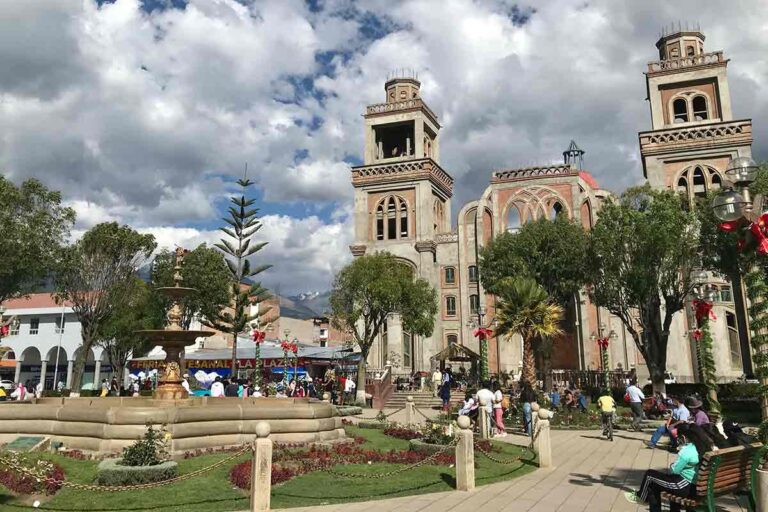
Is Huaraz worth visiting?
Is Huaraz worth visiting? The Andean Mountains are full of mysterious cultures and remote snowy towns, and Huaraz is the gateway to it all. This small city is perfect for enjoying the more humble way of Peruvian living, and is the perfect base camp for exploring various glacial lakes and hikes within the nearby Huascarán…

10 BEST Places to Visit in Venezuela in 2024 (Plus Tips)
- Last Updated: February 6, 2024
From Angel Falls to Mount Roraima, these are the best places to visit in Venezuela!
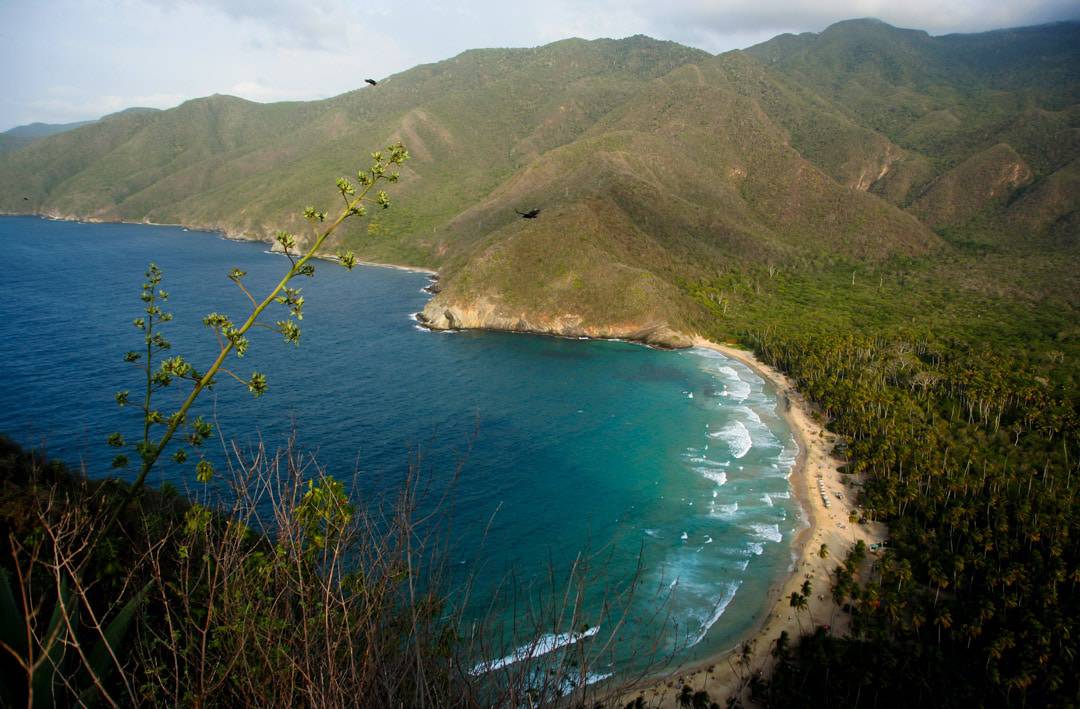
Venezuela’s economic problems, bad reputation and political uncertainty haven’t helped in the development of tourism to this Caribbean country in South America.
The truth is that, as one of the largest oil producers in the world, the government has focused most of its efforts on the exploitation of oil fields, sometimes to the detriment of other economic activities.
However, the reality could be very different. Venezuela is a jewel to discover, a virtually unexplored territory with places of incomparable beauty.
From paradisiacal beaches to impenetrable jungles to vertigo-inducing routes through the Andean highlands, the possibilities for visitors are almost endless.
Table of Contents
1) Salto Angel
2) the amazon rainforest, 3) cayo sombrero, 4) mount roraima, 5) the orinoco delta, 6) los llanos, 8) puerto colombia, 9) los médanos de coro national park, 10) parque mochima national park, 1) bring dollars or euros, 2) stay safe, 3) relax and enjoy, top places to visit in venezuela.
If you’re feeling like an adventure to one of the most beautiful countries on the planet, then don’t miss out on these amazing places to visit in Venezuela.
Angel Falls , at 979 meters high, proudly boasts being the highest waterfall in the world. Located in the Venezuelan Gran Sabana, this is a place holding a sacred character for the natives. It is, without a doubt, the biggest out of all Venezuela tourist attractions.
To get there, you’ll have to navigate up the Carrao River, right in the heart of Canaima Park, until you reach the base of the falls. Inscribed on the UNESCO World Heritage list in 1994 , this park offers hundreds of cascades of equal beauty, as well as wild rivers and red-water lagoons.
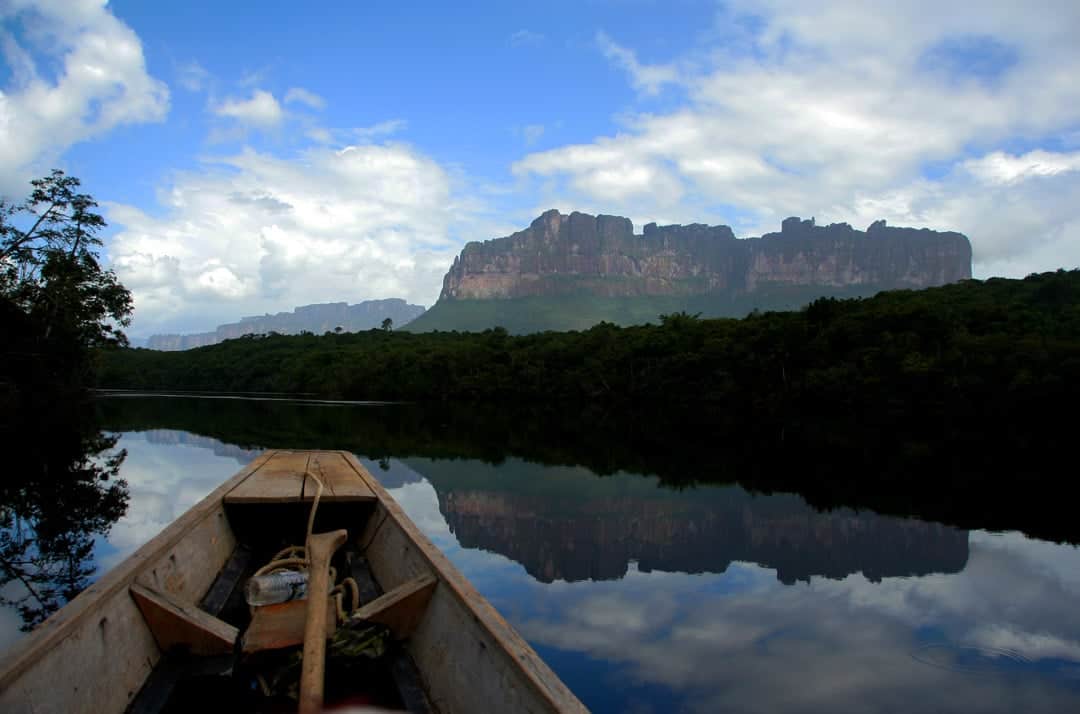
Mystical and legendary, this dense and humid territory is the largest jungle in the world. Visitors can venture along its rivers to find wild animals, lush plants and tribes that have barely changed their traditions in the last 500 years. The Amazon rainforest is one of the best things to see in Venezuela.
Although uncontrolled logging and the construction of dams are seriously threatening the future of this ecosystem, it’s still possible to visit several protected reserves and enjoy one of the seven new natural wonders of the world. Definitely an amazing spot on the list of places to visit in Venezuela.
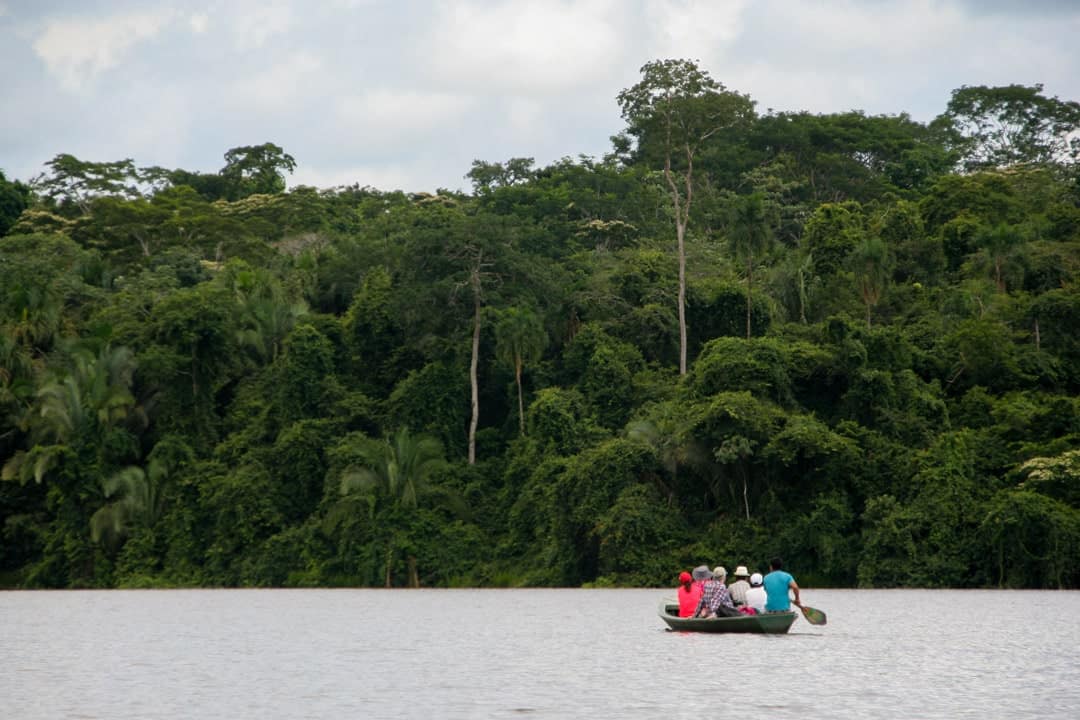
Because Venezuela’s coasts are completely bathed by the Caribbean Sea, it’s no surprise that there are plenty of amazing islands and beaches to visit.
When you think about a paradisiacal destination, you probably envision yourself lying in the shade of a palm tree on a white-sand beach with turquoise water, right?
That’s the exact description of Cayo Sombrero, a tiny island located a few kilometres off the coast of Chichiriviche, in Morrocoi National Park.
Enjoy the peace of this place with no infrastructure, houses, restaurants or hotels. You can easily arrange a boat to get you there, and agree on a time so they can pick you up.
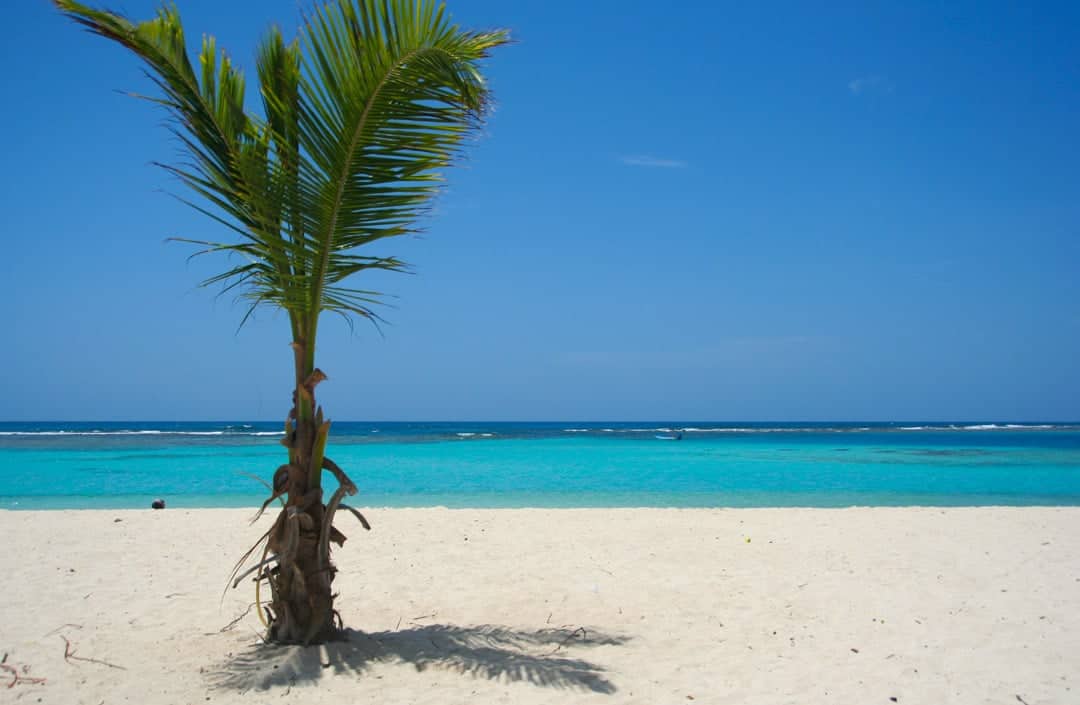
Mount Roraima, called Tepuy Roraima by the indigenous population, is a majestic table-shaped mountain located right on the triple border point of Venezuela, Brazil and Guyana.
The hike will take at least five days to complete. You’ll have to cross wild rivers and walk along steep paths before enjoying amazing views from the summit.
Once you’re on the top, the extravagant rock formations will certainly make you feel like you’re on another planet. It’s easy to understand why this mount inspired Sir Arthur Conan Doyle to write his famous novel “ The Lost World “.
For all avid hikers, Mount Roraima is one of the Venezuela attractions they can’t miss!
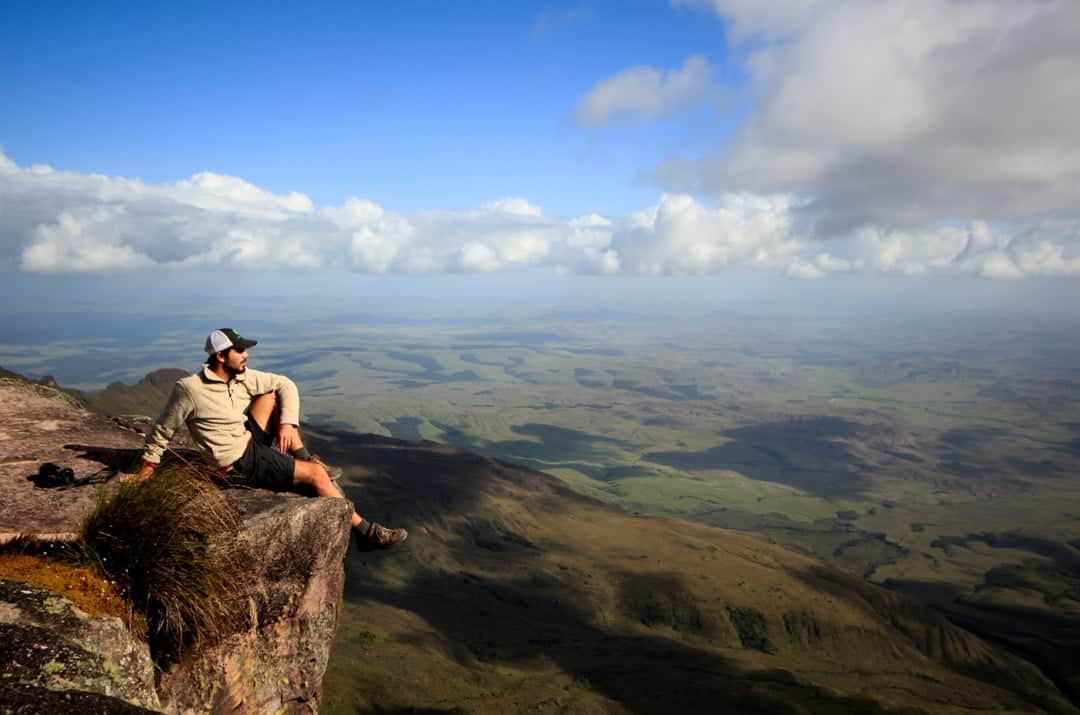
The beautiful Orinoco River, one of the most important in South America and the third largest river in the world after the Amazon and Congo, has been a subject of study by dozens of explorers since Christopher Columbus documented its existence in 1498.
The delta region, formed mainly by materials the river washed away and by mudslides from nearby volcanoes, attracts all kinds of adventurers looking for wildlife, flora and fauna.
The delta is an important starting point for jungle expeditions, during which you can see alligators, anacondas and even jaguars if you’re lucky enough.
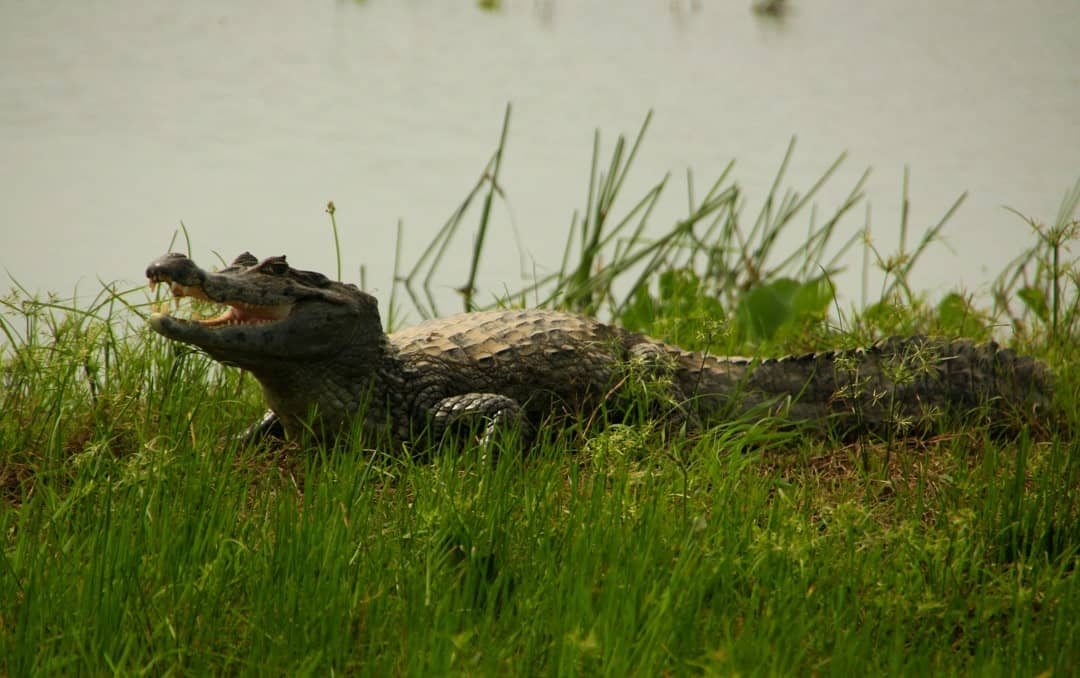
This huge savannah is to South America what the Serengeti is to Africa: a wild extension where animals are the real lords. You can take a multi-day safari and watch hundreds of birds, caimans, deer, capybaras, sloths and more.
Although the region’s activity involves mainly cattle ranching and oil production, eco-tourism is growing in Los Llanos and more visitors have the chance to take in its natural beauty.
When traveling to South America, Los Llanos must be included in your itinerary – it’s one of the best things to do in Venezuela.
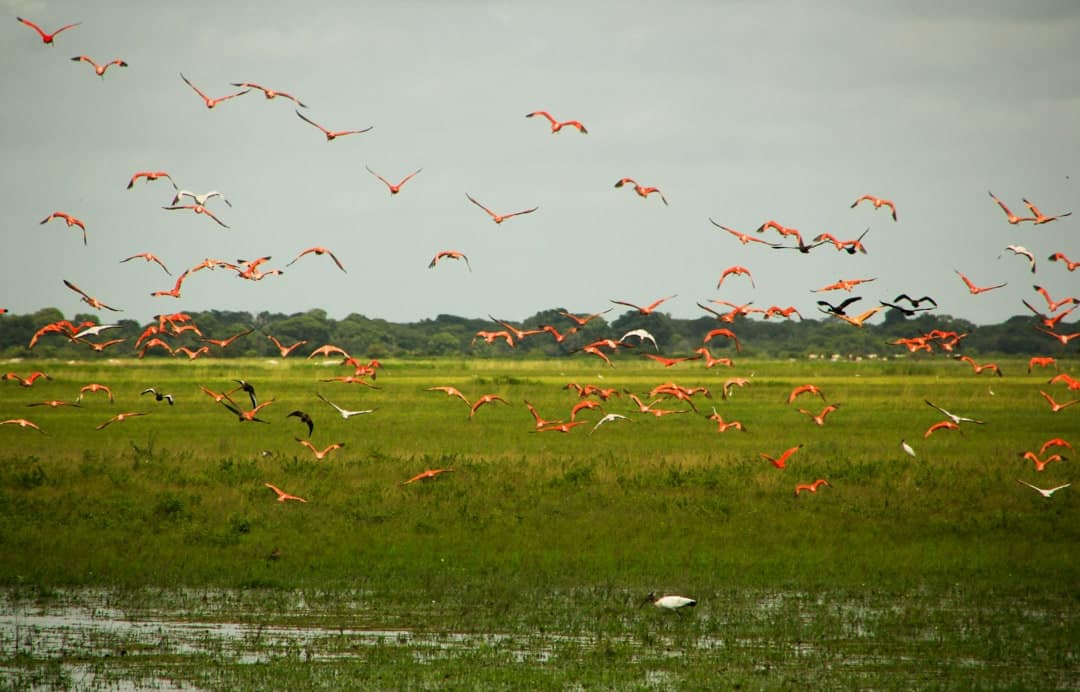
Venezuela’s attractions go beyond tropical jungles and dream beaches. The Andean Range, the mountainous backbone that so drastically affects the climate of the continent, also creates amazing landscapes in the land of Simon Bolivar.
Merida is the most important city in the Venezuelan Andean region, and it’s an excellent starting point for visiting the nearby colonial towns.
It is known as the adventure capital of the country, and it offers a wide variety of activities for all preferences. Adrenaline junkies will find top-class hiking, rafting, paragliding and rock climbing.
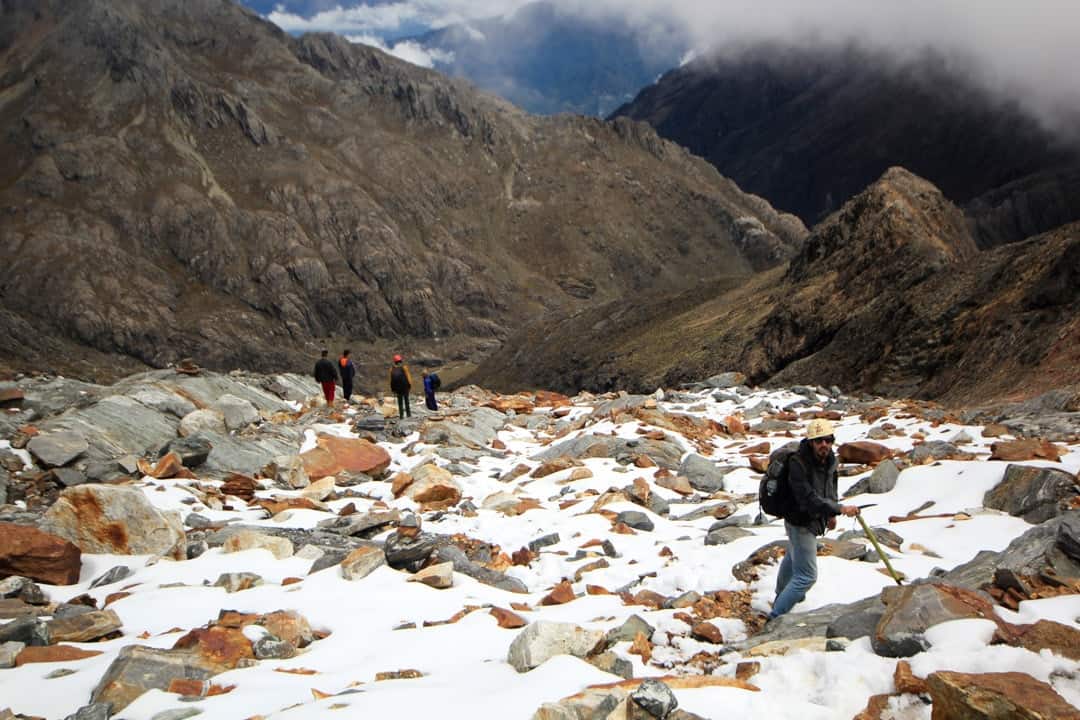
Located on the coast of the Henri Pittier National Park, this small village is characterized by steep mountains, extensive beaches and friendly people.
The beaches are not like those of white sand and turquoise water, but they still have a special charm. It’s a region with strong waves, cliffs that dominate the landscape, and local fishermen who make their living out on the rough waters.

The landscapes and ecosystems in Venezuela are so varied that it’s possible to find a desert in the northwest region of the country.
Located in the Falcón state, Medanos de Coro National Park is a dry setting of large dunes that are the products of erosion and the whims of incessant trade winds.
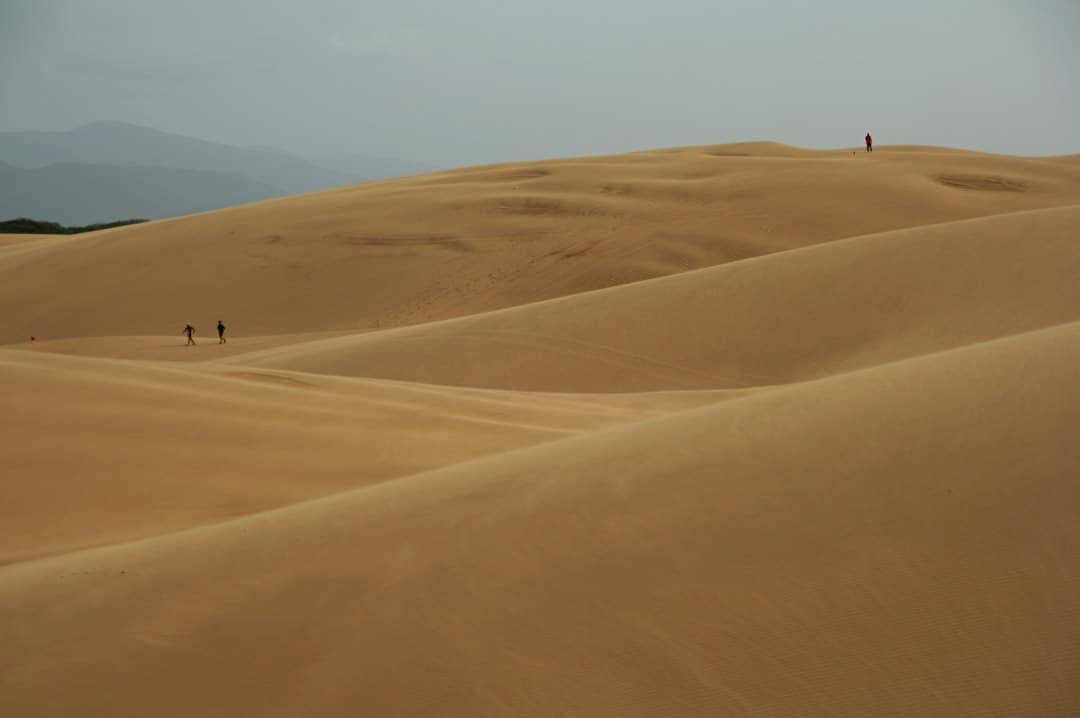
When one arrives at Mochima National Park, one immediately feels the magic of a place where it seems as though time has not passed.
Located between the states of Sucre and Anzoátegui in the eastern part of the country, this park contains a long coast of beaches and islands with pristine water.
The beautiful sunsets and the tranquility of its villages make Mochima one of the most attractive destinations on the Caribbean coast.
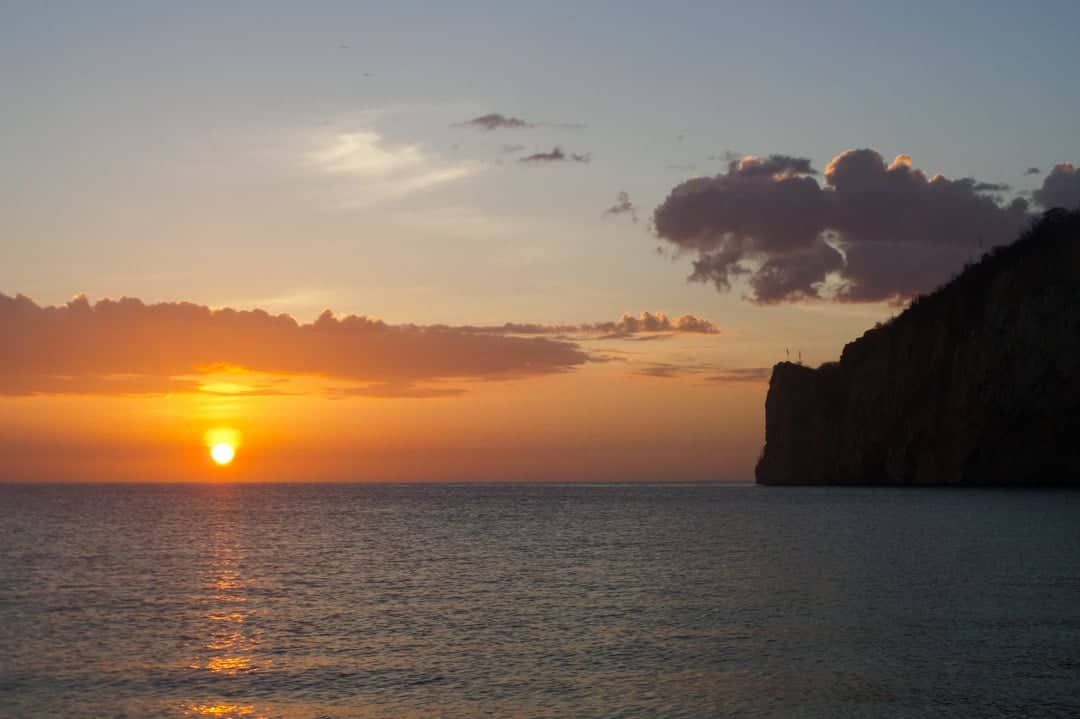
Tips For Visiting Venezuela
Now that I’ve inspired you to pack your bags and travel to this South American nation, here are our best travel tips for visiting Venezuela.
Venezuela has one of the world’s craziest economic systems. While the local people can’t buy more than a few dollars a year, they still need dollars or euros to travel out of the country and to conduct certain transactions. Therefore, the dollar black market is big business there.
Don’t get money from an ATM. You’d get the official exchange rate, and that would ruin you. Bring dollars or euros and change them on the black market.
When I say black market, don’t imagine guys in an alley, dealing with opium or AK-47s. Many people change dollars in Venezuela. Ask in your hostel or in any jewelry store and you will have your money changed in a matter of minutes.
We all know that the current situation in Venezuela is not the best. However, the places on this list are safe to visit if you take the normal precautions. The countryside is still relatively safe.
Avoid visiting big cities like Caracas, Valencia, Maracaibo, etc. If you need to stay in a city, try to make those visits as short as you can. Stay away from big concentrations, protests and other public demonstrations.
Don’t trust military officers. If your bus is stopped at a military checkpoint, hide your money in your underwear. They could ask if you have money with you.
Show them a few bolivares and tell them that’s all you have. Don’t show them your dollars because you might “lose” some of them.
Despite the bad reputation, Venezuela is an incredible country that offers just about anything you can imagine. The people are friendly and the landscapes are unbelievable.
Use common sense and avoid big cities, and everything should be alright!
Miguel Travelsauro
Hi, We’re Alesha and Jarryd!
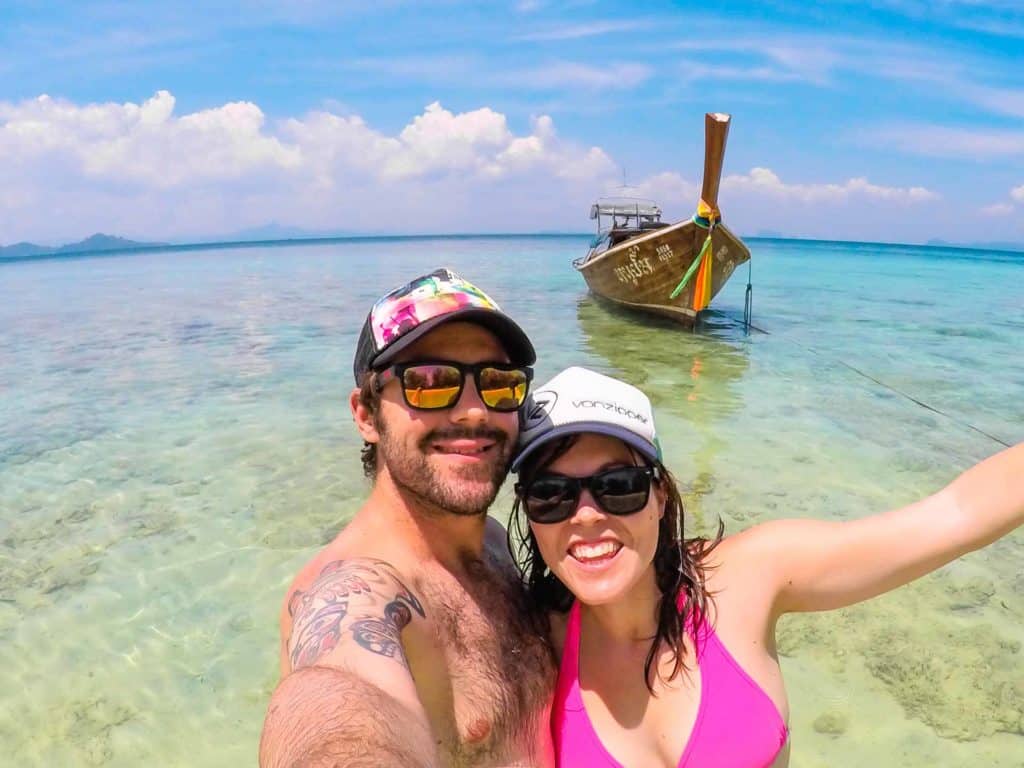
We’ve been traveling the world together since 2008, searching for the planet’s best destinations and adventures.
Love Travel?
Sign up for our free weekly newsletter for the best travel tips, ideas and deals!
We respect your privacy. Unsubscribe at any time.
READ MORE...
The Perfect 2 Week Taiwan Itinerary (2024 Guide)
The best los angeles to grand canyon road trip (2024 guide), 11 best road trips from denver, colorado (2024 guide), related posts, the ultimate guide to driving the icefields parkway (2024 guide), 4 thoughts on “10 best places to visit in venezuela in 2024 (plus tips)”.
Hoe do you get in? they currently not issuing visas.
I can’t stress this enough! Do not, I’ll repeat it, Do not travel to these places, not now at least, Venezuela is in a constant turmoil, you can’t trust the Police nor the Government to protect you, if anything should happen, you would be left on your own! I’m not JOKING! Venezuela is the third most dangerous Country in the World and it has out of the 15 most dangerous cities in the World, 6 within the list, including the most dangerous one been Caracas, the third been Valencia and the fifth been Barquisimeto; it would be inevitable not to have to find yourself in one of those cities trying to get to your destination; so, I’ll make myself very clear again, DO NOT TRAVEL TO VENEZUELA! Not now. That’s all I have to say.
All these places are a must visit in Venezuela. Also I would say the Angel Falls are the best to see in these country.
Awesome. Thank you for your comment and tip. 🙂
Leave a comment Cancel reply
Save my name, email, and website in this browser for the next time I comment.
- Backpacking Venezuela Travel Guide (2024)
By Joan Torres 20 Comments Last updated on May 16, 2024

Wanna travel to Venezuela with Against the Compass?

Join us on a 2-week adventure across Canaima National Park, Los Llanos, Mérida and the Caribbean coast.
January 8th to 21st, 2025
Arguably, Venezuela might be the best country for travel in the whole of South America.
Blessed with the longest coastline in the Caribbean, the tallest waterfall in the world and the least unexplored part of the Amazon, Venezuela is packed with wilderness highlights.
While you might be thinking that every country in the continent is filled with jaw-dropping attractions, what I truly enjoyed about traveling in Venezuela is that there is no other Spanish-speaking country in the continent which is also so raw and authentic.
Yet Venezuela doesn’t come without its own travel difficulties and obstacles, so in this guide, you will learn how to travel in Venezuela , including tips on safety, money, accommodation, getting around and much more.

In this Venezuela travel guide, you will find:
Table of Contents
- Venezuela Today
- Is it safe to travel?
- How to get visa
- Travel Insurance
- Money & Budget
- Best time to visit
- Top Experiences
- Independent Travel
- Transportation
- Accommodation
- Venezuelan People
- More Information
our recommended travel insurance for Venezuela
With its Backpacker plan, IATI Insurance is the best insurance for any kind of adventurous destination, like Venezuela.
📰 Venezuela today
Can you travel to Venezuela?
Similar to Iraq or Somalia , Venezuela has an incredibly bad reputation for being one of the most dangerous countries in the world.
Venezuela, nevertheless, has never experienced suicide bombings or war-related problems. What it did have was a problem with high rates of violent crime, inflamed by one of the worst and longest-lasting economic crises in the world.
Venezuela’s economy is fully dependent on oil and is managed by extremely corrupt leaders with absolutely zero incentives, all fueled by the impementation of extreme Communist laws and policies that saw the country experience 10,000% inflation and a shortage crisis that lasted nearly 10 years, until 2019, a crisis that brought hundreds of Venezuelans close to starvation because they couldn’t even find a bag of rice in the supermarket.
Venezuelans have suffered what is not written, and listening to their stories should be an unmissable part of your trip , as much as visiting the Angel Falls.
Today, the situation isn’t great but with the stabilization of their currency and the significant improvement in security, local people are feeling more optimistic and enthusiastic about their futures.
In my opinion, there hasn’t been a better time to travel to Venezuela than now.

⚠️ Is it safe to travel to Venezuela?
Is Venezuela safe for tourists?
Several years ago, Venezuela was one of the most dangerous countries in the world – in my opinion far more dangerous than countries like Afghanistan , Yemen or even Mali .
Express kidnappings, muggings and road assaults were part of everyday life for Venezuelans.
On Monday mornings, the main topic of conversation between colleagues at pretty much any office or university was about who got robbed or kidnapped over the weekend.
Venezuela was so dangerous that even the Venezuelans’ habits shifted in cities, with streets clearing after 6 pm, since people preferred to celebrate and gather with friends in their own homes.
This terrible situation went on until around 2020.
Right now, traveling in Venezuela is safe, for the following reasons:

1. The Government took action against local mafias
Basically, by carrying out raids in specific shanty towns, targeting the organizations involved in kidnappings.
The police were very effective, but only because they went in and shot everyone indiscriminately, killing loads of innocent people at the same time.
2. Because of the crisis, kidnappings were no longer profitable business
Express kidnappings consisted of taking someone by force to make them empty their bank accounts, while threatening their and their family’s lives.
The problem however, is that Venezuela was suffering the worst of all inflations, so wealthy Venezuelans moved their fortunes to bank accounts in either Madrid or Miami, hence there was no way for them to transfers their funds, meaning the kidnapping business wasn’t very profitable any more.
Similarly, because of the crisis, ordinary Venezuelans weren’t carrying any money on them, mainly because the Venezuelan Bolívar was absolutely worthless, so mugging became increasingly difficult as well.
3. The thieves fled Venezuela to neighboring countries
Given the situation, many thieves decided to leave Venezuela, heading mainly to other Latin American countries such as Colombia, Ecuador or Perú.
Conclusion: Is Venezuela safe to visit?
Venezuela is safer to travel than it used to be, as all Venezuelans will tell you. But remember that still, this is rough and raw Latin America, so use your common sense: don’t display your valuables, don’t walk about alone after dark, etc.
Is Venezuela safe for Americans?
Yes, of course. Local people won’t judge you based on your nationality.
Also, it’s not like the USA has ever invaded and started a war in Venezuela, like they did in many Middle Eastern countries, so Americans can travel around Venezuela without fear.

🪪 How to get a visa for Venezuela
Most nationalities can get a free visa upon arrival, allowing you to travel in Venezuela for 90 days. This rule applies at both international airports and land borders.
Can Americans travel to Venezuela with a tourist visa?
Americans – and also Canadians – are the exception to the rule.
They can’t get a VOA, so instead must apply at the Venezuelan embassy in either Mexico City or Panama City.
The process can take up to 5 months (no kidding!) and the rules change all the time.
Fortunately, there is a pretty active Facebook group where travelers share their experiences in securing a tourist visa for Venezuela.
The group is called Venezuela Visa Support .

🚑 Travel insurance
Don’t travel to Venezuela without travel insurance. I recommend IATI Insurance because:
- One of the very few that covers travel in Venezuela.
- Different plans for all budgets.
- It covers senior citizens too.
- Readers of this blog can get a 5% exclusive discount
💰 Money & budget for backpacking in Venezuela
Money is a complicated matter when backpacking in Venezuela, there are so many particularities.
Here’s what you need to know.
The local currency is now in parity with the US dollar
In Venezuela, they use the Venezuelan Bolívar and approximately:
1 USD = 36 VES
I’m not an economist so I don’t know how this actually works, but after inflation of nearly 10,000% back in 2019, the Government of Venezuela managed to contain it by equalizing the Bolívar with the US dollar.
The Venezuelan economy is now completely dollarized
While the Bolívar is still in circulation, the US dollar is quickly becoming the main currency, and it can be used for any type of transactions.
At small local businesses, such as fruits & veg shops, or convenience stores, they’ll likely give you the price in Bolívares although you will always be allowed to pay in USD.
If something costs less than 1 USD, they will give your change in Bolívares.
Bring all your money in cash
You can’t really withdraw money from an ATM.
I mean, technically you can, but ATMs always give Bolívares and only up to a certain amount, which tends to be the equivalent of no more than 25 USD.
Therefore, do bring all your money in cash, and in US dollars.
Bring the smallest possible notes
This is the number one tip for traveling in Venezuela.
In Venezuela, nobody has change, but I am not talking about not having change of $100. I am talking about buying something worth $4 dollars, paying with a $5 note and not getting your dollar change because the guy from the shop doesn’t have any.
This didn’t happen just once, or twice, it was a constant nightmare that happened several times a day, every time I tried to buy something outside of Caracas.
There’s a shortage of cash in Venezuela. In Caracas you can pay by card virtually everywhere so this shouldn’t be much of a problem there, but outside of the capital it really is.
How are the locals dealing with it? Well, they don’t really use cash; instead they use Pago Móvil , a mobile app for instant payments that can only be used if you have a Venezuelan bank account.
I know it’s hard to bring $1 bills, but just try to bring the smallest possible notes.
You can’t get money out of ATMs but you might be able to pay by card
However, don’t rely on this.
For example, my Revolut Card didn’t work in Venezuela but my N26 did, even though both of them are Mastercard.
In Caracas, cards are accepted everywhere, but that might not be the case in other parts of the country. It’s just random, sometimes they do accept cards, sometimes they don’t.
How much does a trip to Venezuela cost?
Estimating the cost of traveling to Venezuela is difficult, since it really depends on where you go, and what activities you do.
On the one hand, there’s Caracas.
Caracas is super expensive. If you decide to stay in Chacao, which is the safest area in the entire city – pretty much the only place where you can walk around without any fear – then know that things will be ridiculously expensive, e.g. $100 for a basic hotel room, $15 for an average local meal and $60 for a meal in an international restaurant (nothing fancy).
Then there are the touristy places such as Los Roques, Canaima, Los Llanos, the Orinoco Delta and Roraima. These places are also super expensive, so you should budget around $150 a day depending on where you stay.
Check out our Canaima travel guide to find out how to reduce costs.
Mérida and Margarita are the only famous tourist havens that are pretty affordable, where you can find excellent accommodation for $30, and the food is cheap too.
Everywhere else is cheap. In Valencia for example, you can find decent accommodation for $20, and a good local meal for $4. Public transportation is also cheap, I don’t think I ever paid more than $10 for a long-distance bus.

⛅ Best time to visit Venezuela
Venezuela is a year-round destination, so the best time to visit will depend on what you want to do.
Traveling in Venezuela from July to October: the rainy season.
During the rainy season, all of the waterfalls in Canaima National Park will be at their fastest flowing, including Angel Falls , the tallest waterfall in the world and the country’s top tourist attraction.
It’s important to highlight that the rainy season in Venezuela isn’t one of those Asian monsoon seasons with hurricanes where it keeps pouring all day long. It’s more like heavy rain for a few hours a day.
This season, however, might not be ideal for visiting the coast and the islands of Margarita and Los Roques.
It will also be pretty cold in the mountains around Mérida and, while Los Llanos will be covered in lush green, it’s not the best season to spot anacondas and other animals.

Traveling in Venezuela from November to April: the dry season
The dry season comes with its pros and cons as well.
For Canaima, be aware that the later you go, the less water you’ll find, so I don’t personally recommend going there in March or April.
On the other hand, the dry season is an excellent time to visit the islands, as well as for doing a safari in Los Llanos, including spotting giant anteaters and 5-meter anacondas.
Check our travel guide to Los Llanos for more information.
Venezuela travel tip: avoid local Bank Holidays In Venezuela, there are very few foreign travelers but domestic tourism is pretty big, especially during certain annual festivities. You may want to avoid traveling to Los Llanos, Canaima, Margarita or Los Roques during the following dates: Carnavales (February or March, depending on the year) Easter (March or April, depending on the year) Christmas Holidays July 5th and 24th
🛖 Top Experiences in Venezuela
Go on an anaconda safari.
Along with the Amazon, Los Llanos boatds with one of the largest populations of giant anacondas, and safaris to spot them can be easily arranged.
Check our travel guide to Los Llanos .

Explore Caribbean towns
The coast of Venezuela has a very distinct, very Caribbean culture, with the added advantage that it hasn’t been spoiled by foreign tourism – Choroní or Chacao being great examples.

Visit the tallest waterfall in the world
Venezuela is home to the world’s highest uninterrupted waterfall (979 meters). This waterfall can be found in a stunning national park named Canaima, which is only accessible by flying in.
Check our travel guide to Canaima.

Venezuelan people
Venezuela has seen very few backpackers for the last 30 years, so expect to make friends everywhere – more than in any other Latin American country!

Backpacking in Mérida
Mérida is the best example of traditional Venezuela, old colonial villages built in the Andes that feel like stepping back in time.

🛫 Getting in: how to travel to Venezuela
How to fly to venezuela.
Maiquetía or Simón Bolívar International Airport is the main airport hub in Caracas.
To be honest, it’s a fairly small airport with few connections.
If coming from Europe, Madrid is by far the best hub. Check Iberia or Air Europa.
You can also fly from Lisbon (TAP Portugal) and Istanbul (Turkish Airlines).
There are direct flights from Moscow as well.
Alternatively, you can also fly from Colombia, Panamá or México.
How to travel to Venezuela over land borders
Venezuela shares a border with:
- Colombia: all borders are open and easy to cross
- Brazil: despite sharing a very long border, there’s only one proper border crossing at Paracaima, the rest being dense jungle.
- Guyana: there aren’t any roads connecting both countries, only jungle, hence there isn’t any official border crossing.
👨 Independent travel in Venezuela
I traveled around Venezuela for 25 days using public transportation.
Do you know how many backpackers I saw?
Zero, not a single one.
I did see foreign tourists in Canaima National Park , as well as a tour group in Los Llanos but not a single backpacker traveling independently around the country, not even in Mérida.
Venezuela is still perceived as a dangerous destination, few and far between are the travelers venturing here on their own, the reason being that it’s difficult to find any travel information about for it, e.g., there are barely any updated travel blogs on Venezuela.

🛺 Transportation: How to move around Venezuela
How to travel around venezuela by public transportation.
Transportation in Venezuela isn’t very different from other Latin American countries.
Each town will have its own bus terminal, from where you can catch a bus to other villages, towns and cities.
Wealthy Venezuelans will always tell you that traveling by bus is very dangerous and that you shouldn’t even think about doing it, but I found bus travel to be one of the most enriching experiences in Venezuela, especially on long distance journeys, where bus passengers tend to become friends.
It’s a great opportunity to get local insights from the segment of Venezuelans who have struggled the most, the people who can only afford to travel by bus.
In big cities like Valencia or Caracas, some routes offer different types of buses, from comfortable AC coach buses to crumbling mini vans without windows.
Venezuela travel tip: If traveling with an AC bus, do always bring one extra layer cause they tend to put the AC at 8ºC
There are no general rules for taking buses, it just depends on the specific route, and which terminal it departs from. Sometimes there is a proper bus schedule, sometimes they depart only when full. You might also be lucky to ride on a neat air-conditioned coach, or you might get a crumbling mini van without windows.
Where are the bus stations in Caracas?
Caracas is obviously the main hub for bus travel around Venezuela, and these are the main 3 stations:
Terminal La Bandera : buses that travel West of Caracas, including Valencia, Maracaibo, Los Llanos, Mérida or Amazonas State.
Terminal Antonio José de Sucre : buses traveling east of Caracas – Oriente, like Venezuelans say – including Barcelona, Bolívar State or Santa Elena.
Terminal Privado Aeroexpresos Ejecutivos : fancy buses for the most common destinations in Venezuela, including Mérida or Santa Elena. Buses here are more expensive, run less often and need to be booked in advance but they sell the idea of extra comfort and security. As a backpacker, I prefer traveling from either of the other 2 stations.

Traveling around Venezuela by shared taxi
In small towns with small terminals, where buses don’t run that often, it’s easy to find shared taxis as well.
You have to ask for a carrito a plaza .
Traveling around Venezuela by plane
Venezuela is a big country, so travelers with little time to travel in Venezuela might opt to take a domestic flight.
The problem, however, is that flights can’t be booked online; you must purchase your flight tickets at the respective office in the airport. That or look for a local travel agency to do it for you, for an extra fee.
Additionally, other than Los Roques and Margarita, flights between destinations don’t run every day, so you really need to plan your itinerary in advance.
Common domestic airlines are Avior Airlines , Conviasa and Laser Airlines .
Traveling around Venezuela with a Vehicle for Hire app
Yummy Rides and Ridery are the local versions of Uber, available in most cities across Venezuela, but they can also be used for long distance transportation.
🏨 Accommodation: where to stay in Venezuela
Booking sites such as booking.com are not very useful in Venezuela, since they only offer a few expensive options in Caracas.
The best way to look for accommodation in Venezuela is on Google Maps.
Look for a hotel, call them and ask for price and availability.
Local guest houses are locally known as posadas . They are usually cheap, averaging 20 USD a night without breakfast.
Posadas can be found virtually everywhere in Venezuela.
In touristy places such as Los Llanos, Delta del Orinoco, Canaima or Los Roques, you won’t find local posadas, and instead you will generally stay in lodges – which tend to always offer full board, especially since they are located in remote areas with no restaurants around.
👫 Venezuelan people
I found people in Venezuela to be extremely friendly.
The experience is similar to Colombia, let’s say, but many Venezuelans have barely interacted with a foreigner before, creating an extra incentive for them to meet foreign tourists.
I was the first Spanish person to ever talk to many Venezuelans across the country, especially people in their 20s or 30s. They had only heard Castilian Spanish accents in movies, in La Casa de Papel (Money Heist), or on YouTube, so that was the perfect ice-breaker for any conversations.
One day, I was walking along the promenade of Choroní when I approached a group of Venezuelans having a good time, with a portable fridge packed with beers.
“Are you selling beer? ” I asked.
“No, but here’s one for you “, – he answered.
It was 8 pm and I ended up partying with them until 4 am.
Venezuelans love partying, drinking, loud music, dancing, having fun… and they will never hesitate to ask a stranger to join them.
Other than friendliness, Venezuelans are generally very conservative. Well, I wouldn’t say conservative but it is still a very traditional society. They’re very family-oriented and things like homosexuality, for example, are still taboo .
Don’t get me wrong; their opinion on homosexuality is different from the Middle East . You won’t go to jail and nobody is going to bother you, but a large number of people will think that it isn’t normal.

How many people have fled Venezuela?
Depending on which part of the world you’re living in, you may have noticed a massive influx of Venezuelans currently living abroad, who have fled their countries due to the economic crisis.
It’s quite noticeable in Spain, as well as in the USA, and other countries in Latin America.
People in their 20s, 30s and 40s are the one who left, and they have no intention to come back. This massive exodus of people is also noticeable in Caracas, where there isn’t much going on.
Spanish is the official language of Venezuela, and I strongly recommend learning at least some basics because very few Venezuelans can speak English, not even in Caracas, or within the tourism industry.
Even in Hato El Cedral in Los Llanos – where I met a group of people from Central Europe – they didn’t have any English-speaking guides, and they were only able to communicate with them because one guy in the group spoke fluent Spanish.
Other than Spanish, up to 40 different languages are spoken in Venezuela by the indigenous communities, according to the local census .
🍲 Cuisine: what are you going to eat during your trip to Venezuela?
The local food isn’t the reason you will be traveling to Venezuela, but it’s alright, cheap and the portions are huge.
Breakfast in Venezuela
Most Venezuelans will have breakfast at the bakery, where they eat different kinds of pastries, the most popular being cachito de jamón y queso, a yeasted bread filled with ham and cheese.
Surprisingly, many hotels and posadas don’t include breakfast, but a heavier breakfast would typically consist of cheese, eggs and arepa (corn bread)
National dish
Pabellón Criollo is the national dish in Venezuela, consisting of black beans, rice, meat and plantain, available in most local restaurants.

Other snacks
My favorite was cachapa , a slightly sweet Venezuelan pancake filled with cheese, but you can find it with many other fillings too.
Another popular snack is the stuffed arepa , available with all sorts of fillings as well, but usually cheese and meat.

Beer in Venezuela
The cheapest thing you can buy in Venezuela is beer, which rarely costs more than 1 USD for a 20cl bottle.
Venezuelans like to drink it ice-cold, so anywhere you go, cold beer is guaranteed.
They have quite a few brands but Polar is the one that can be found everywhere. In fact, outside of Caracas and tourist sites, it’s difficult to find any others.
Internet in Venezuela
Venezuela has probably the slowest internet in all Latin America, here’s what you need to know.
Most hotels and posadas have Wi-Fi, with an OK connection.
In Canaima, many lodges have a StarLink receiver, which is good enough for simple browsing.
Internet data
You can easily buy a SIM card packed with internet data.
However, bear in mind that many areas of Venezuela, including Canaima or certain parts of Los Llanos and Mérida have very little coverage, and even in Caracas it’s a little bit slow sometimes.
I bought a Digitel SIM at their official store in the Chacao area.
Can you get an eSIM for Venezuela?
Yes, now you can get an eSIM with Airalo , which offers different packages for Venezuela.
However, I recommend getting a local SIM card, since eSIMs only offer internet service, but you might want to be able to call a local number, as explained in the accommodation section of this post.
❗More travel information for Venezuela
📢 In my Travel Resources Page you can find the list of all the sites and services I use to book hotels, tours, travel insurance and more.
All guides and articles for traveling in Venezuela destination
- How to visit Angel Falls
- How to visit Los Llanos
More travel guides from the Americas
- Haiti Travel Guide
- Haiti Itinerary

20 comments
This is really useful – thanks for all the information. Could be a good time to plan my dream Mount Roraima ascent!
Haven’t been in that part of Venezuela, but it’s really in my plans!
Thank you for this priceless guide to Venezuela. It’s impossible to find any updated information -or any at all-. My only concern is about bringing all the money in cash (US dollars). I’m relieved that it’s much safer now and thieves have fled the country; however it’s a bit stressful carrying say $1,500 with you at all times.
Hi Diego, yes, I can understand all the inconvenience. I was actually carrying way more than that, since i was there for 25 days, not to mention laptop and camera gear!
Hi Joan, how would you rate the safety outside the big cities?
Much safer than in cities of course, but one must be careful anyways.
I’ve visited 8 of the 12 countries in SA and enjoyed them all – very much! I hope to visit Venezuela soon (and also Guyana, Surinam and French Guiana) – before I become old and decrepit. Thank you, Joan, for a write up that’s both educational and inspiring!
Thanks a lot, Ben 🙂
It is indeed a very interesting and useful page, much appreciation for the time, the informed insights, and the variety of valuable tips backed by direct experience!
I have a specific question related to the section “Getting in, How to Fly to Venezuela?”
I intend to visit this coming summer, two months from now. I live on the U.S. East cost and am a permanent resident – but a citizen from across the pond. I have been seeking for flights from the U.S. to Maraicabo (where l’m planning to visit friends and stay for about two weeks), but none of the regular flight search engines yields any actual results when l wish to look at the specific details of a particular flight, let alone book one.
What is the best way, from the U.S., to travel to Maraicabo? And, how reliable, once found, are the flights one may make a reservation on, say a month earlier? Are cancellations frequent? Given that it is difficult to find flights to Venezuela listed online to begin with (from the U.S.), l have been wondering about the status of booked tickets, once one has eventually secured one…
This said, l may have been looking in the wrong places, knowing little as yet about Venezuela, about traveling within Venezuela, and even about traveling to Venezuela…
Thank you again for your time and the useful resources you kindly share here! All the best on all your travels.
Hey man! Sorry for the late answer 🙂
If you are based on the uSA, easiest is to fly from either Bogotá or Panamá City. I don’t know if there are direct flights to Maracaibo, but there’s plenty to Caracas at least.
I don’t think flights get canceled too often and about when to book them, just like you’d do with any other airline. When it comes to international flights, Venezuela is a normal country, just that their airports aren’t very busy.
You seem like a nice guy, Joan! I hope my family takes a trip to Venezuela. Did you know that Tui T. Sutherland, author of Wings of Fire was born there? (That’s totally not 50% of why I want to go there!)
Hi Eloise, I didn’t know, but thanks for telling me 🙂
Thank you Joan. Considering travelling there in December this year. Your guide is very valuable. Hope to keep in touch with you.
Have a great and safe trip, and thanks a lot!
I’ve been to Venezuela many times and lived there from 2009-2012, the last time I was there was in 2016. It’s so beautiful, I’ve been to the lush green of Merida, islands in the Caribbean of Margarita and Los Roques (white sand, crystalline water), Los Llanos which is like going on a Safari (anaconda/flamingos/capybara/ caiman-type of alligator, horse riding, piranha fishing), Angel Falls, Caracas-Chacao mostly and Mochima National Park. It’s such a diverse and beautiful country, the people are so welcoming, food is great. Shame it has its problems, it is so much to offer. Hoping it becomes safer year on year.
Thank you, Sarah 🙂
A really fantastic guide, I’m a keen solo traveler and your guide aligns with my kind of traveling. Thank you for sharing your experience and all the extremely useful details!
Great and insightful blog here! Your work is much appreciated. I will be traveling to Venezuela from Dominican Republic. Can I bring a drone (Mavic 3pro) into the country? I will be traveling with a laptop and camera gear as well.
Hi Hans, yes, I believe you can.
Leave a Comment Cancel reply
Your email address will not be published. Required fields are marked *
Notify me when new comments are added.
Join our Expeditions
From Syria to Iraq in Pakistan, Against the Compass is finally running expeditions to the most epic and off-the-beaten-track countries.
We have scheduled expeditions for every month of the year.
Latest posts
- How to travel to Eritrea in 2024
- How to travel to Svalbard in 2024
- How to travel to Afghanistan during Taliban rule (2024)
- How to Travel to Libya in 2024

11 Top-Rated Tourist Attractions in Venezuela
Written by Lana Law May 4, 2020
Venezuela is a country of beautiful landscapes and surprising sights, from the coast to the mountain tops. Magnificent waterfalls tumble off table top mountains, and coastal towns and offshore islands offer pleasant escapes and soft-sand beaches.
Inland, the Andes Mountains, soaring to over 16,000 feet, provide a stunning backdrop to colorful and lively cities, and the Orinoco Delta is teeming with wildlife. Caracas, the capital and largest city in the country, offers its own type of adventure, with a number of cultural sites and surrounding attractions.
The best places to visit are not always the easiest to reach, and Venezuela is no exception. Some of these destinations are well off the beaten path. For inspirational ideas, see our list of the top tourist attractions in Venezuela.
1. Angel Falls
2. los roques archipelago (archipiélago los roques), 3. isla de margarita (margarita island), 4. parque nacional morrocoy (morrocoy national park), 5. canaima national park and the gran sabana, 7. orinoco delta, 9. national pantheon of venezuela, 10. parque nacional los médanos de coro (medanos de coro national park), 11. mochima national park.
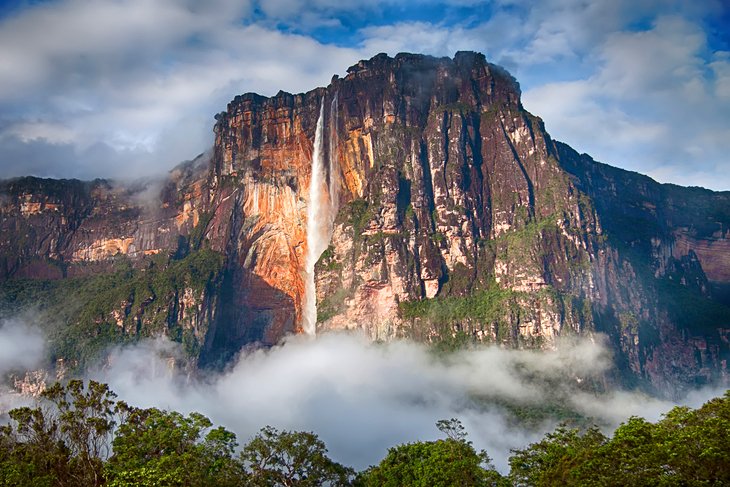
In the heart of the country, where table top mountains rise up like giant monoliths from the surrounding landscape, is Angel Falls. Dropping 979 meters, it is the highest waterfall in the world and one of the highlights of South America.
This stunning site in Canaima National Park is remote and difficult to access, but flights over the falls are easily arranged.
The best time to see the falls is during the rainy season, between May and November, when water is plentiful and the falls do not disappear into a mist before reaching the bottom as they do in the dry season. During the dry season, the falls may be little more than a trickle and you will want to check in advance to see if there is enough water to make the trip worthwhile.
The falls are usually visited by either a sightseeing flight or a three-day boat trip beginning in the town of Canaima. The boat trip, which also includes a hike through the jungle to the base of the falls, is not a luxury tour by any stretch, with basic accommodation along the route. The boat trip may not be possible during the dry season due to low water levels in the river.
Flights over the falls depart from many towns and cities and can be arranged from various places, including Caracas, Ciudad Bolívar, Santa Elena, or Isla Margarita, as well as other major cities, although usually with a connecting flight.
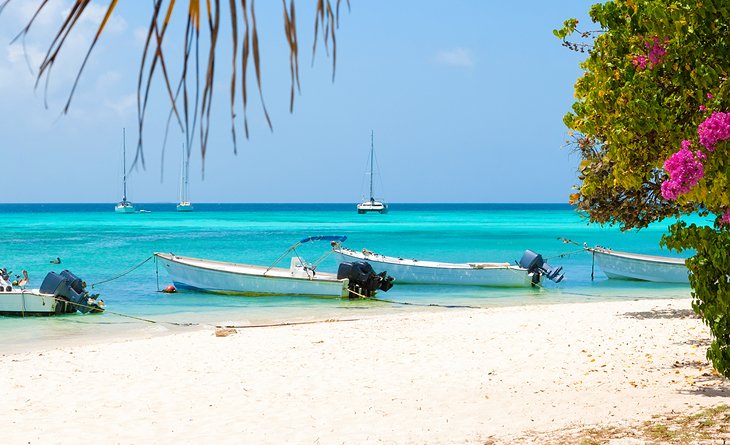
Sun-drenched beaches, turquoise waters, coral reefs, and modest development with no high-rise hotels, are what draw travelers to this beautiful chain of islands 160 kilometers north of the central coast of Venezuela.
The archipelago is Los Roques National Park, but most people refer to the area simply as Los Roques. This is one of the best places to visit in Venezuela. The small seaside fishing village of Gran Roque, on the island of the same name, is the main settlement, with single-story homes painted in the typical bright colors seen throughout Venezuela.
The buildings stretch out along the beachfront, which seems to go on forever. One of the highlights is the little island of Cayo de Agua. Reached by boat, this is one of Venezuela's most beautiful beaches, with shallow turquoise waters, perfect for swimming and snorkeling.
The islands are usually reached by aircraft from Caracas, there is no ferry service from the mainland. The airport is located in Gran Roque. Boats can be chartered from the town's waterfront area for those interested in visiting some of the surrounding islands, diving, or taking a snorkeling trip.
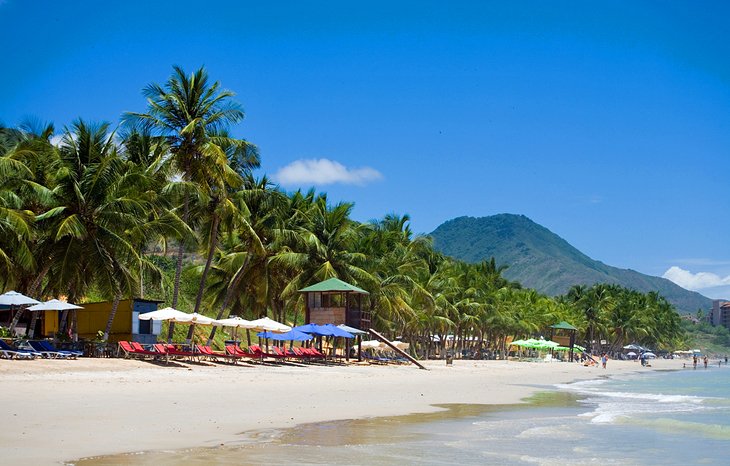
Isla de Margarita is one of the more developed beach destinations in Venezuela. Lying approximately 40 kilometers north of the mainland, this is one of Venezuela's major tourist destinations for sun seekers. The island's main attractions are the beautiful soft sand beaches, which are popular with both foreigners and Venezuelans.
Many charter flights fly directly to Isla Margarita from a variety of international destinations, but it's also possible to take a ferry to the island from Puerto La Cruz on the mainland.
The main city on the island is Porlamar, but the numerous beaches are spread around the island, with some of the best on the north and east side. Many of these are developed, with hotels or restaurants. Some of the most popular beaches are La Playa El Agua, Playa Puerto Cruz, Playa Guacuco, and Playa Manzanillo.
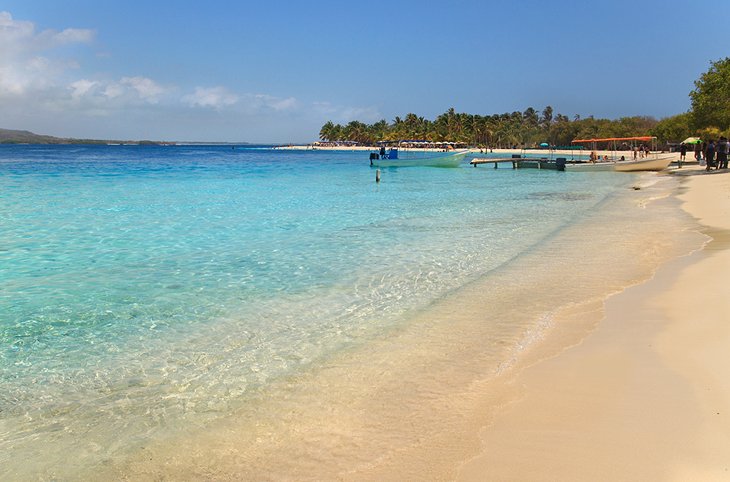
Morrocoy National Park, located along the coast about a two-hour drive west of Caracas, is known for its white-sand beaches and coral reefs, which stretch along the mainland and ring the offshore islands and cays. Diving is one of the main activities for those who are looking for more than simply spending a day on the beach.
The park is also home to a large number of birds, from osprey and parrots to flamingos and scarlet ibis. Some of the most popular islands are Cayo Sombrero, Cayo Borracho, Cayo Sal, and Cayo Peraza, to name just a few.
There are two main access points, one at Tucacas and the other at Chichiriviche, with boat services to the islands available at both of these towns. The park is easily accessible and, as a result, very popular with Venezuelans. It can get extremely busy, particularly around holidays.
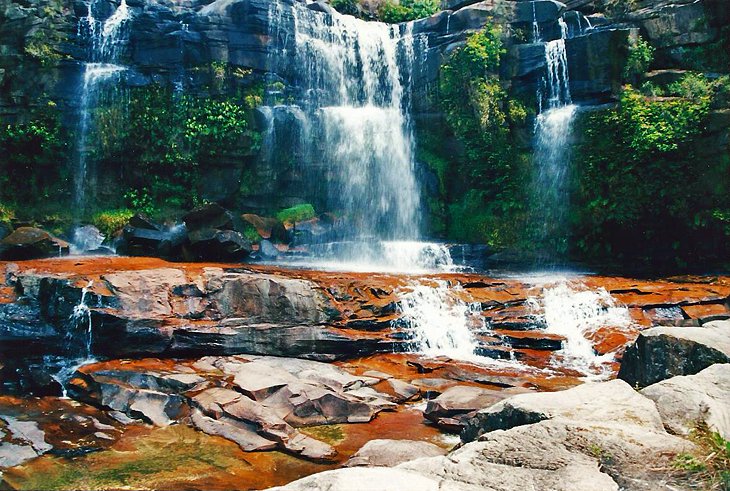
Canaima National Park covers three million hectares and is listed as a UNESCO World Heritage Site. It is usually associated with Angel Falls and the area around the town of Canaima, but this is actually only a small area of the vastly diverse park.
The park also encompasses the high plateau of La Gran Sabana and includes more than 100 tepuis (table top mountains), which rise more than 1,000 meters above the savannahs. A trip through the Gran Sabana and Canaima National Park is a unique experience and does not necessarily even need to be combined with a trip to Angel Falls, particularly during the dry season.
Highlights in this area are the numerous waterfalls spread across the entire area, particularly in the Gran Sabana near the Brazilian border. Swimming at the base of the waterfalls is one of the highlights and can provide a refreshing escape from the heat of the midday sun during the dry season.
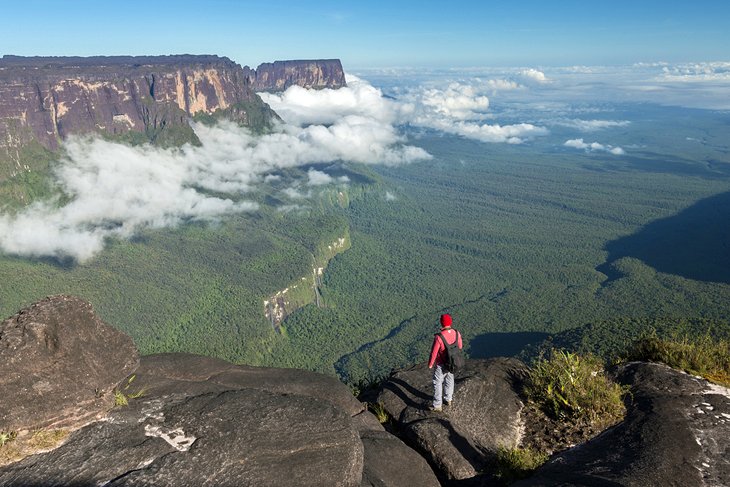
The table-top mountain of Roraima has an alluring appeal for nature lovers and adventure seekers, with an almost mystical Jack and the Beanstalk type of wonder attached to it. Rising up from the surrounding lowlands, Roraima is an island in the sky that has been intriguing people for centuries, with its bizarre rock formations, waterfalls, and meat-eating plants. This tepui (table-top mountain) was even the inspiration for Arthur Conan Doyle's famous novel The Lost World .
Roraima is one of the highest tepuis in Canaima National Park. It is also one of the most easily accessible and a popular hiking destination, although it is a demanding, multi-day hike. The temperature drops as the elevation rises and Roraima is often cloudy, misty, or raining, so hikers need to be prepared to face the elements.
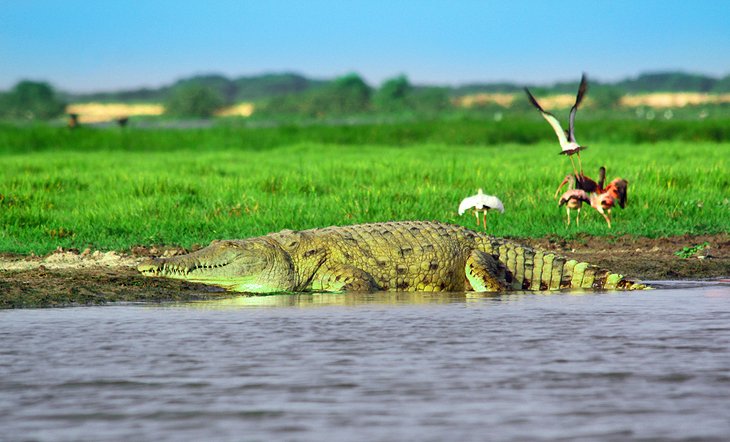
The Orinoco Delta, in the northeast of Venezuela, offers a completely different landscape and experience than other parts of the country. The river delta is home to all kinds of interesting wildlife, from monkeys and macaws to piranhas.
Riverside lodges offer multi-day packages that take guests out in boats for wildlife viewing and visiting local Warao people. Some camps also offer night safaris. The quality of the lodges varies so it's best to do some research in advance. Trips can be arranged from Ciudad Bolivar, Ciudad Guayana (Puerto Ordaz), or from other cities, and can be combined with a larger tour of other areas.
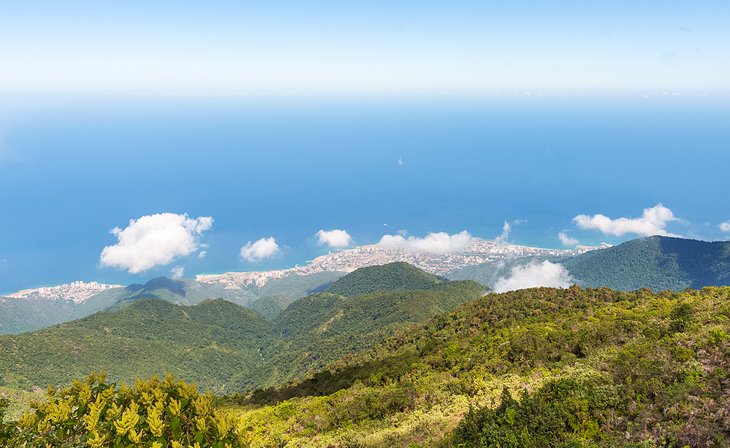
While few people plan to spend much time in Caracas, the city does have a couple of sites worth seeing. One of the highlights is a trip up the funicular to the small town of Galipan on Avila Mountain in northern Caracas.
It is also possible to drive, but this is a twisty road that doesn't lend itself to looking around. The views from the top of the hill are spectacular, particularly on clear days, when you can see Caracas and the coast. At the top are stalls with vendors selling a variety of goods, and a number of decent restaurants offering some tasty treats.
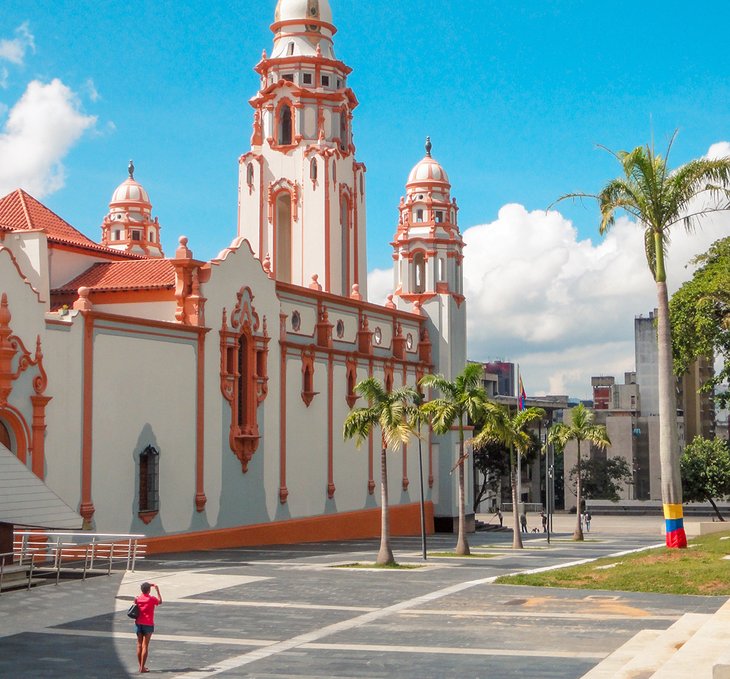
The National Pantheon is one of the most important attractions in Caracas. The building was constructed after the 1812 earthquake when the original church on this site was destroyed. Today, it is the country's most sacred shrine and houses the remains of prominent Venezuelans, including those of Simon Bolívar.
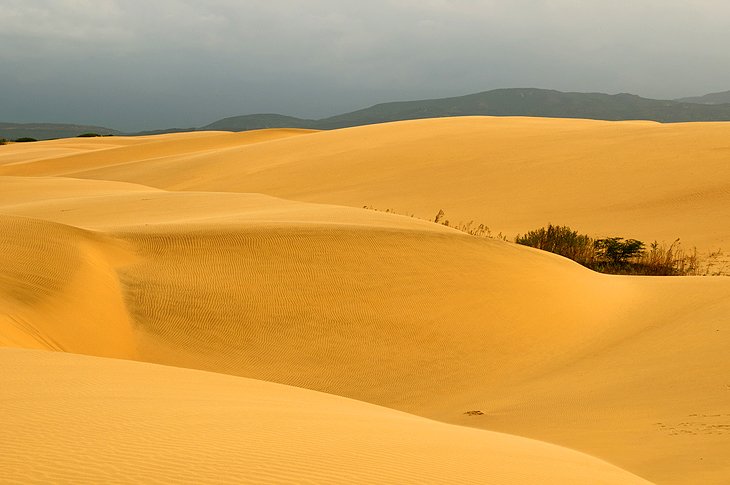
Medanos de Coro National Park offers surprising sights, with rolling sand dunes typical of a desert scene. The sand dunes, known locally as medanos, roll across the landscape, with twisting and curving lines, and some dunes reach up to 40 meters in height.
Dispersed within the hills are a number of lagoons, formed by decades-old flooding. This park is a fun place to wander around, slide down the dunes, take photos, and appreciate the diversity of landscapes that make Venezuela so unique.
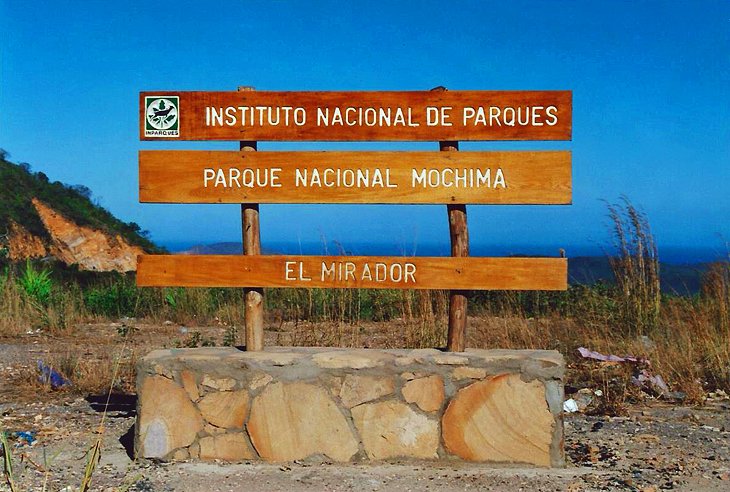
This park covers a portion of the coast and a chain of offshore islands east of Puerto La Cruz to Cumaná. The main attractions here are the beaches and the diving. The islands can be accessed by boat from Puerto La Cruz, Santa Fé, and Mochima.
It is also possible to explore the mainland portion of the park by car or bus, stopping off at small villages and beach-lined bays off highway 9, but this is primarily a place for boating. The area around the park is very quiet and it doesn't see nearly the amount of traffic as Morrocoy. This is a good option for people who happen to be in this area or heading out to the Paria Peninsula.
More Related Articles on PlanetWare.com
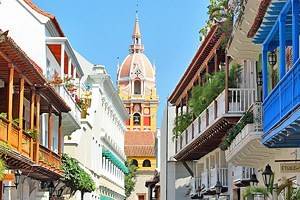
Visiting Neighboring Colombia: On Venezuela's western border is one of South America's hottest new up-and-coming tourist destinations. Colombia's attractions range from historic cities to mountains and beaches. If you have time to see even a couple of destinations in Colombia, don't miss out on a chance to explore the sights of Cartagena or to relax in Medellin .

More on Venezuela
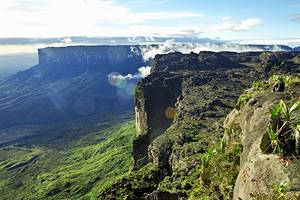

Venezuela Travel Guide
Your ultimate venezuela travel guide, with tips, and things to see and things to do in venezuela. great for first-time and returning travelers..
Rich with culture, history, and friendly locals, Venezuela is a chance to see something different.
Located on the northern coast of South America, it is filled with many white-sand beaches, blue waters, and natural wonders, making it a great getaway.
Fans of the outdoors will love Angel Falls, the highest waterfall in the world, or Pico Bolívar, the highest mountain in Venezuela.
As English is not spoken here as much, it presents a great opportunity to immerse yourself in a new language.
This Venezuela travel guide will help you plan your next vacation.
Popular Guides
5 Unexpected Reasons to Visit Venezuela
Our Highlight
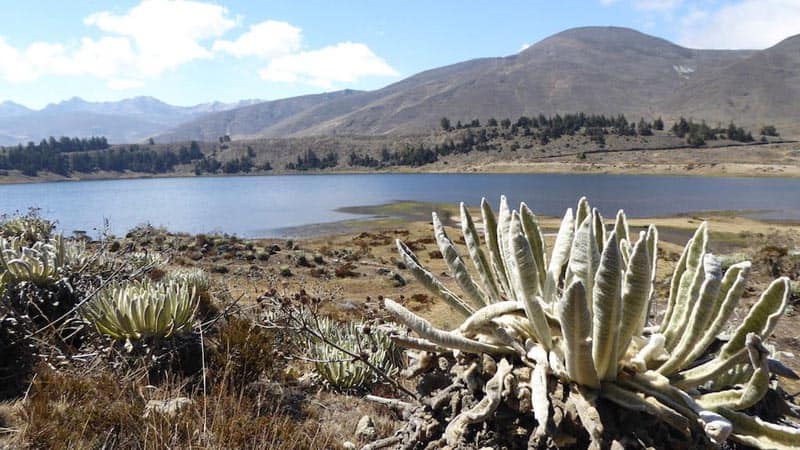
Table of contents
Table of Contents
Fast Facts about Venezuela
- Power voltage is 120V at 60 Hz.
- Venezuela’s currency is the Venezuelan Bolívar and 1 Bolívar is equal to 0.100125 USD.
- The best way to get around Venezuela is by taxi or bus.
- You will need to get a Venezuelan Tourist Visa prior to visiting, as well as a US passport valid for at least 6 months after your stay.
- Crime can and does happen here, so keep valuables close to you and avoid being out at night.
- Popular network providers in Venezuela include Digitel, Movilnet, and Movistar Mobile. Prepaid SIM cards can be purchased through any of these networks. Note that your phone needs to be unlocked in order to use a SIM card, meaning you will probably have to contact your current mobile provider to change your settings to unlocked.
- Venezuela has a sales tax rate of 16%.
Things to See and Do in Venezuela
- Canaima National Park: Fans of natural wonders will love the Canaima National Park. Declared a World Heritage Site, this park is the sixth-biggest national park in the world and is full of beautiful landscapes, diverse fauna, table-top mountains, and cliffs. Points of interest include Angel Falls (the highest waterfall in the world) and Mount Roraima (the highest of the table-top mountains). This park also has camping spots.
- Parque El Agua: Come see Venezuela’s first waterpark. Whether you want to relax in the lazy river or venture through numerous waterslides (including the 18-meters high Churun Meru), this is sure to be a fun day for the whole family.
- Morrocoy National Park: Set on the Caribbean coast of Venezuela, this island is perfect for those looking for a getaway. Relax on white-sand beaches, explore numerous cays (including the very popular Cayo Sombrero), look for dolphins, whales and green sea turtles, and stroll through the nearby towns.
- National Pantheon of Venezuela: Come learn more about Venezuela’s history at this landmark in Caracas. Created in 1870, this mausoleum is now a final resting place for many of the heroes of South America, and also contains historical works of art, including a four-thousand-piece crystal chandelier.
- Teleférico de Caracas: Take a cable lift and enjoy beautiful aerial views of Caracas while you ride to the El Ávila Mountain. Once on top, explore the El Ávila National park, grab a bite to eat, or go to the skating rink.
Venezuela Travel Guides
- 32 of The Tallest Mountains in the World by Continent
- All You Need to know about the Top 10 Best Hikes in South America
Accommodation
Budget: You can find some cheaper hotels at around 200 to 400 Bolívars per night. These hotels come with private rooms, Wi-Fi, and sometimes the hotel’s restaurant and bar.
Mid-Range: For mid-range hotels, expect to pay between 500 to 800 Bolívars per night and enjoy private rooms and suites, an outdoor pool, fitness centers, and one (or more) restaurants inside the hotel.
High-End: Upscale hotels can go from 1,000 to 2,500 Bolívars per night. Amenities include outdoor pools, saunas, massage and salon services, airport transportation, a gift shop, and banquet rooms.
Check out our favorite booking platforms Booking.com , Tripadvisor and VRBO for the best deals on accommodation.
The Best Ways to Get Around Venezuela
Getting to venezuela:.
Getting to Venezuela: The Simón Bolívar International Airport is the main airport for getting to Caracas, the capital of Venezuela, and is just 13 miles from the city center. The La Chinita International Airport is an alternative airport located in Maracaibo (northwest Venezuela), and is just over 9 miles from the downtown area.
Flights: You can check for the best flights to Venezuela on Skyscanner .
Transportation:
Train: The train system for passengers is nonexistent.
Bus: Buses are a cheap way to get around Venezuela and can be found in all major cities and towns. You can find buses for short trips with very cheap fares, as well as buses for long-distance trips that come with their own air-conditioning. You can also look for por puestos, which are essentially a ride share service that operates like a bus. Caracas also has its own metro system that runs frequently, with a typical fare costing less than 5 Bolívars.
Taxis: Taxis are another good way to get around and come with cheap fares compared to other countries. As they do not operate on a meter, it is a good idea to ask around about typical fares so you can negotiate the price with the driver. You can take a taxi for an individual trip or, if you know where you will be traveling, you can contact a travel agency and arrange private taxi transfers between cities.
Rent a car: To rent a car in Venezuela, you need to be at least 21 years old and have a U.S. driver’s license. Prices start at around 400 to 600 Bolívars a day.
You can also compare prices here
When to go To Venezuela
- Venezuela, with its tropical climate, has two seasons: wet and dry. The wet season is between May and October and is considered the best time to see Angel Falls due to the increase in rainfall. March through May are the warmest months in Caracas. For those who want to pursue outdoor activities like hiking, November is a good month to visit due to the warmer temperatures and the start of the dry season. If you’re going to Los Llanos, October may give you the best chance to see wildlife.
Where to Stay in Venezuela
Hotel Waldorf: Stay in this beautiful 3.5-star hotel in Caracas. Its prime location makes it a quick trip to the local movie theaters and beauty shops, as well as the Government Palace. Afterwards, relax in an air-conditioned room or suite, head to the fitness center, lounge in the swimming pool and terrace area, or dine at the sky bar and restaurant.
InterContinental Maracaibo: Featuring beautiful views of the Maracaibo Lake, this four-star hotel is just minutes away from the Vereda del Lago park and the Aguamania waterpark, and just a thirty-minute drive to the La Chinita Airport. InterContinental’s amenities include complimentary breakfast, an Italian restaurant with 2 bars, and an outdoor pool and hot tub. Languages spoken at this hotel include English.
Lidotel Hotel Boutique Barquisimeto: Come stay at this four-star hotel in Barquisimeto. Featuring a grand piano in the lobby and beautiful artwork in the rooms, this stylish hotel also includes a fitness center and outdoor pool, complimentary breakfast, free Wi-Fi, flat-screen TVs in each room, and the hotel’s own restaurant. The Lidotel also includes a private and secure walkway to the nearby shopping mall with many stores.
What to Pack for Venezuela
- Sunscreen: Protect your skin from the beautiful sun with some sunscreen.
- Spanish Phrasebook: As many people do not speak English, bringing a phrasebook to help with translations will help you out.
- Swimsuit: With so many beaches and waters to explore, make sure to bring a swimsuit with you.
See our packing tips: packing tips
Venezuela Travel Guide: Best Booking Resources
Whenever we travel to we make sure to start with these companies. We have tried a lot of different ones over the years and all of these have consistently proven to be the best when it comes to offering great prices.
We have used every one of these personally and continue to do so.
- Booking.com : This is our go site to when comparing prices for accommodation. It usually has the cheapest prices, especially in Europe and we love their interface. Not to mention you get free cancellation and you are guaranteed the best price.
- Trip Advisor : What we like about Trip Advisor is that we can look at all the reviews and then book our accommodation. TripAdvisor is where we go when we want to compare prices with multiple accommodation providers.
- VRBO : is the main search engine we use when we are looking for a home or apartment rental. It can sometimes be cheaper than hotels and it is the best way to stay in areas that offer a more local feel.
- Hostelworld : With one of the largest databases of hostels in the world, Hostelworld is the go-to site when you are looking for budget accommodation.
- Skyscanner : This is the first place we check for flights. It consistently comes back with the cheapest and best options. It allows us to compare a lot of airlines to get the best price.
- Rome 2 Rio : If you want to see how to get somewhere by plane, train, bus, ferry or car Rome2Rio lays it all out for you as well as related costs.I love how they show it all to you on a Google Map and it works offline.
- Get Your Guide: For all your day trip and city guide needs, we use Get Your Guide. It has the world’s largest collection of things to do with more than 30,000 activities in 7500 destinations.
- World Nomads Insurance: When traveling to Italy you should always have travel insurance. We have found the best bang for your buck is by far World Nomads.
Venezuela Travel Guide: Related Articles
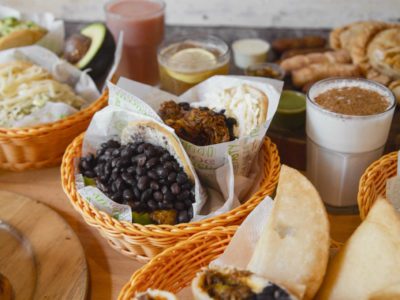
Venezuelan Food: 19 Dishes to try in Venezuela or at Home
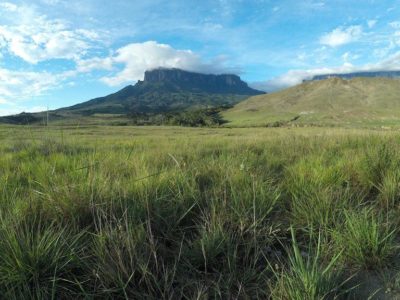
Matador Original Series
Dear travelers to venezuela: please don’t come visit until you’ve understood these 7 things, 1. venezuela is a cheap destination for foreigners at the moment… as long as they are willing to negotiate in the parallel currency market..
In Venezuela, there’s an (unfortunate) exchange control that prevents the free flow of foreign currency. This creates an official exchange rate and a “parallel” one, that we called black dollar ( dólar negro ). A dollar-holder traveler can benefit from it: with a handful of dollars, you can get many Venezuelan bolivars, making the country particularly cheap. Though this parallel market is not legal, anywhere in the country you’ll meet people willing to do the exchange. For instance, a meal in a very good restaurant could cost 7.000 bolivares and it represents just USD$7 with the current parallel exchange rate. It’s an extremely expensive meal for a Venezuelan, considering the minimum salary is only 15.000 bolivars monthly. Similarly, spending 6D/5N exploring the Roraima (a must in the country) has an approximate cost of 200,000 bolivares (only USD$ 200 at the black market). Beware that some tour operators require the payment directly in dollars to foreign tourists to go to more remote areas like Canaima and Los Roques.
2. You can’t just improvise.
Venezuela is not the type of country where you can land without knowing where you’ll spend the night. Due to safety reasons, you can’t just wander around the cities with your backpack, looking for accommodation. You should book your hotels — at least — three days in advance. Secondly, you can’t visit the main natural landscapes on your own: you need to hire a tour operator, not only to guide you but to ensure your safety as well.
Thirdly, and going back to the exchange issue, it requires being thoughtful too. Regarding the currency of online reservations, you will have to pay a small fee at the official exchange rate. Once in Venezuela, you can then cancel the rest of the payment with bolivares that you obtain at a much convenient rate. In addition, travelers should travel with cash and change it in Venezuela… if they use their credit cards to withdraw money from ATMs, they’ll get the official rate. To make the process easier, visitors can ask tour operators for help in exchanging money and negotiating a good price.
Another aspect that needs planning is arrivals to and departures from the country. Though it’s a mistake to believe that “if you enter Venezuela, you can’t leave the country,” it is true that air tickets aren’t cheap, so you need to plan in advance. If you are traveling by land, the only option is to get in and out through Brazil, because Colombia’s border is closed. You can also get in and out via a cruise ship (from the port of Guaira, 30 minutes away from Caracas), but this is not the best option for foreigners.
3. There’s so much more to Venezuela than Caracas and Angel Falls.
Venezuela’s landscapes are stunning and adventurer travelers are doomed to falling in love with them. We have it all, including but not limited to the highest waterfall in the world (Angel Falls) and a capital city that is known as the largest open-air museum.
When you think of Venezuela, you should think of the Gran Sabana with its millenary tepuyes , the greenness of the plains, the desert of Médanos de Coro National Park . Los Roques, Margarita Island, Morrocoy National Park and the coast of Paria have nothing to envy to Caribbean or Southeast Asian beaches. If you are a mountain person, don’t miss the cold peaks of Mérida, and if you are not afraid of storms, you should definitely see the Catatumbo Lightning, south of Lake Maracaibo. Venezuela is a natural paradise!
This doesn’t mean you have to avoid Caracas either, though you have to be cautious. It’s one of the most violent cities in the world in terms of murder rate, but so are Baltimore and St. Louis (USA), Acapulco (Mexico), and several cities in Colombia and Brazil that are totally worth a visit with adequate safety measures.
When you see the love the “ caraqueño ” feels for the city and when you visit those places that they adore, then your whole vision will change. You must be careful: it is best if a local ( a caraqueño ) shows you the jewels of Venezuela’s capital, like street art and sculptures.
4. Be patient: public transportation to reach those natural wonders is not easy, but it’s manageable.
There are very few private bus terminals in the country and almost none allows to buy tickets online. So if you are in remote places, you must stand in line from dawn to buy your ticket for the same day and be willing to wait a few hours. When you arrive at your breathtaking destination, you’ll know it was worth it.
You can also find private drivers on the terminal, with whom you have to pay a little more to go to another city. Overall prices are low, in part because the price of gasoline in Venezuela is the world’s cheapest (USD$ 0.03 per liter). These private drivers are like a taxi or sharing an Uber car, because you are going with other passengers. For instance, if the price of the bus ticket is USD$1, you need to pay USD$3-4 for a seat on the private car. You pay this in bolivares and there’s no fixed price: it depends on the day and your negotiating skills. Private drivers charge what they consider fair.
5. Shortages are a daily reality, and the way you can help alleviate the demand is by bringing some products for yourself with you.
The country is going through a difficult political and economic situation and sometimes it’s not easy to access food and personal-hygiene products. You will see long lines at supermarkets: those are locals waiting to purchase goods under government-regulated prices (they can do so once a week, as long as they bring the proper ID). You will also witness the “ bachaqueros ,” people who sell everything at unusually high prices.
Sad, but true, you can’t simply enjoy your shopping experience in Venezuela at the moment. Travelers can buy goods, as long as they are not under the regulated prices scheme. Many travelers come prepared with an alternative: they bring all hygiene products they need and some snacks of their choice for the excursions, for example. Hotels and guesthouses will be able to serve meals, drinks and all the basic stuff, even personal hygiene products.
Regarding bringing donations for Venezuelans, it’s a sensible topic. If you are coming to Venezuela, you may bring some small items you can then give as a gift to people you meet in your journeys. A visitor should come with an open mind to understand what happens in Venezuela, living their pity and judgements on the side.
6. Do go out at night or go camping… just take safety precautions.
In the big cities, there will be plenty of excuses to go out. Most likely, locals will invite you to join them for a drink and share with you their vision of the country. For safety, just take only the necessary stuff: some local cash and a photo ID like your driver’s license. Should you go back to the hotel early in the night? Yes, definitely. Good news is that in the smaller towns, the atmosphere is always much more peaceful and secure.
Regarding camping sites, there are many locations by the beach where you set up your tent, usually near villages or kiosks. It is recommended that you are not totally alone, but you CAN do it and it’s an economical way to travel in Venezuela.
7. You must be careful in public areas, especially with people on motorcycles, but do NOT think badly of the general population.
This is true in any new country you visit, and more so in Venezuela. To prevent thefts, you must avoid showing off your personal belongings: don’t wear expensive watches or rings, and don’t hang your camera around your neck. Locals and foreigners here have to redouble safety measures when walking down the streets in Venezuela due to thieves running around on motorcycles.
Now, please don’t be afraid of Venezuelans as a whole. The worse kind of advice you can receive is “please, don’t talk much with random Venezuelans you meet on the street, because they are going to notice you’re from another country and try to take advantage of you”. This is wrong because, firstly, we recognize foreign tourists from miles away. But mostly, it’s a mistake because the essence of traveling through Venezuela is meeting its people. You will be impressed by how much they are willing to help you out.
Trending Now
Stay at these 13 haunted airbnbs for a truly terrifying halloween night, the top luxury forest getaways in the us, where to play, eat, and stay in springfield, missouri, how to have the ultimate fall getaway in gunnison and crested butte, co, this lesser-known region of germany is home to a dreamy island on the baltic sea, discover matador, adventure travel, train travel, national parks, beaches and islands, ski and snow.
We use cookies for analytics tracking and advertising from our partners.
For more information read our privacy policy .
Matador's Newsletter
Subscribe for exclusive city guides, travel videos, trip giveaways and more!
You've been signed up!
Follow us on social media.
Fears of a Venezuelan mass exodus increase with election crisis fallout
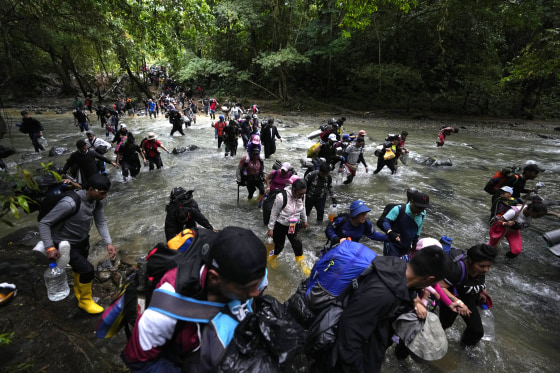
LIMA, Peru — President Nicolás Maduro’s contested claim of victory in last month’s election not only threw Venezuela into uncertainty but also spread anxiety from neighboring Colombia to faraway Chile as the region braced for a new migration surge.
Over the past decade since Maduro became president , the United Nations estimates that a staggering 7.7 million Venezuelans have fled as the economy collapsed , sneaking across porous borders and crowding into nearby countries that increasingly fear they cannot accommodate another mass exodus.
Now, as the crisis over Maduro’s widely disputed reelection raises the specter of deeper global isolation in Caracas, pollsters, politicians and members of the diaspora warn that more Venezuelans are packing their bags.
“There were millions of Venezuelans who expected a political change in the country and who are now frustrated,” said Jesus Seguias, who leads regional pollster Datincorp. “They’re now caught in uncertainty, deciding whether to leave their country and join relatives who have already left.”
Along with the millions of Venezuelans who warily watched Maduro’s loyalists in the electoral council declare his victory were throngs of listless workers in the biggest open-air apparel market in Peru, which trails Colombia as the main destination for Venezuelan migrants.
“Everyone is worried because migrants are going to increase,” said 38-year-old seamstress Diana Yaranga, grumbling as another morning passed in a blur of plunging sales. She blamed her lack of customers on the arrival of Venezuelans, who account for more than 20% of the 100,000 vendors in the market, according to the local union.
“There will be a fight for jobs,” she said.
Hand-wringing among street vendors has extended to the highest rungs of government in Peru, Chile and Brazil, where authorities in recent days have increased border security to steel against newcomers as violent protests engulf Caracas.
“It’s not that a migratory flow will start now. What can happen is that it may increase and reach a larger scale,” said Interior Minister Carolina Tohá in Chile, which has strained to accept hundreds of thousands of Venezuelans in the last five years. “We must prepare.”
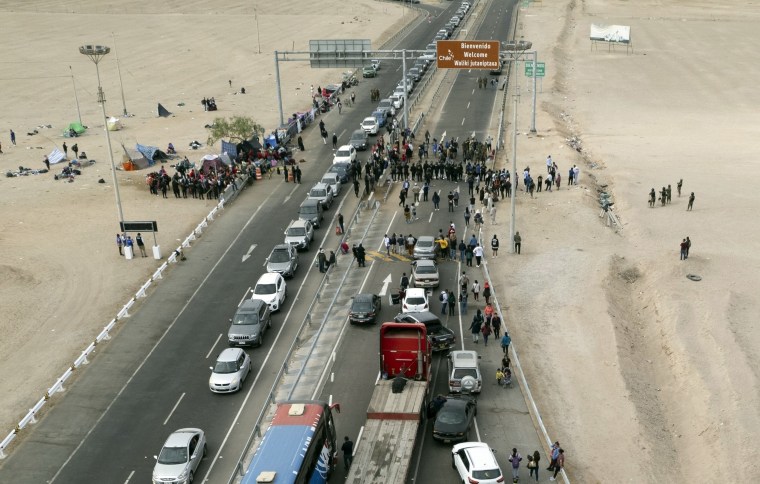
Chile’s interior ministry recently announced the acquisition of thermal cameras to track illegal migrant crossings. Last year the government dispatched armed forces to its border with Bolivia and Peru to curb migration through a perilous Andean pass frequented and is now considering sending reinforcements.
Backlash toward migrants has intensified in Chile, where in 2021 angry mobs torched a Venezuelan tent encampment in the country’s north, as well as in Peru and Ecuador, which have similarly tightened requirements for issuing tourist visas to Venezuelans.
Authorities in those countries now oblige most Venezuelans to present a passport and a clean criminal record, along with other hard-to-obtain paperwork.
But attempts to curb legal migration have done little more than encourage illegal migration, experts say.
“The immigrants are coming regardless,” said Cristián Doña-Reveco, a Chilean sociologist and immigration expert at the University of Nebraska. “When you’re trying to deter immigration by closing borders and by not providing safe ways for immigrants to apply for asylum, you’re increasing vulnerability, trafficking, dangers and migrant death.”
That’s the case farther north as well, where a growing number of Venezuelan migrants have trekked through the dangerous Darién jungle, which connects Colombia and Panama, to reach the United States.
“It’s a humanitarian alert, with all the drama that this implies,” said Colombian senator Angélica Lozano from the Green Party.
Organized criminal groups — such as Venezuela’s largest gang, the Tren de Aragua — have increasingly taken advantage of the migration surge, preying on the desperation of Venezuelan migrants across Latin America, half of whom cannot afford three meals a day, according to the U.N. refugee agency.
The notorious Tren de Aragua’s push into Chile, one of the region’s richest and safest countries, has transformed crime in the country and made security a top concern for Chileans.
The nation’s homicide rate nearly doubled in 2022 from the year before, shocking the country and prompting leftist President Gabriel Boric to boost security spending and take a harder line on immigration.
“The public perception of Venezuelan migration here has really worsened in the last years, especially as we have seen an increase of violent crime,” said Juan Pablo Ramaciotti, executive director of the Migration Policy Center, a Santiago-based think tank. “The most recent arrivals from Venezuela are not integrated into society.”
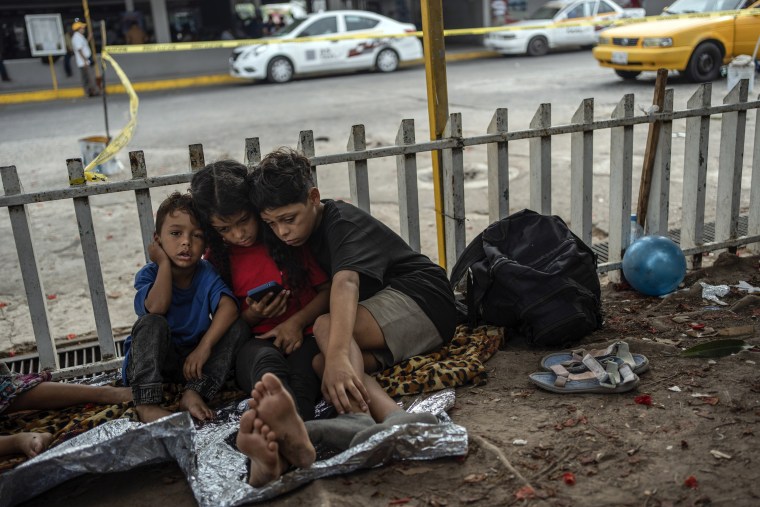
The share of Chileans who say immigration is bad surged to 77% in April 2023, according to Cadem, a pollster, from 31% five years earlier. A Cadem survey published after Venezuela’s elections, on Aug. 4, showed that 61% of Chilean respondents opposed the prospect of Venezuelans seeking asylum in their country.
“Chile used to be a very peaceful country and crimes were very minor, not so bloody,” said 73-year-old José Parra, a retired Chilean lamenting the unprecedented occurrence of hit jobs, extortion and kidnappings in recent years. “That’s why people have become so xenophobic.”
With migration a hot issue as Chile’s presidential election approaches next year, officials have proposed far-flung solutions like a system of mandatory quotas to share the burden and spread asylum-seekers across Latin America — similar to the European Union’s controversial scheme during its 2015 migration crisis.
Chile’s lawmakers have floated another idea, bringing a bill to the floor of Parliament last month that seeks to penalize illegal migrant entries with prison sentences of up to 541 days. A heated debate ensued.
“There are families who are going to escape from Venezuela. Will we put them in jail?” asked Manuel Monsalve Benavides, the undersecretary of the interior.
Colombia, a common jumping-off point for Venezuelan migrants, has long been more generous than its neighbors, granting roughly 2 million Venezuelans temporary protected status that allows them to attend school, take formal jobs and receive emergency medical treatment for 10 years.
But that could change in the coming months as authorities struggle to muster the political will to extend the internationally lauded permit program. The visa applies only to Venezuelans who entered the country before November 2023.
“We don’t have the regional resources to handle the migration from Venezuela,” said Ronal Rodríguez, a researcher at the Migration Observatory, part of Rosario University in Bogotá, Colombia. “The national government no longer prioritizes migration issues.”
Rodríguez said he expects the most immediate Venezuelan exodus to include the parents and grandparents of young engineers, accountants and doctors who have already left for cities like Bogotá, Santiago or Lima.
Venezuela’s opposition had hoped an electoral victory would draw that young generation back home and reunite the families torn apart by their country’s crises.
But as Maduro clings to power, the reverse may be happening.
“People are already bringing over their older relatives to spend the next few months together until the presidential inauguration,” Rodríguez said. “But if the situation does not improve, it could become a permanent flow.”
For more from NBC Latino, sign up for our weekly newsletter .
The Associated Press

Home » Travel Guides » 15 Best Places to Visit in Venezuela
15 Best Places to Visit in Venezuela
There are many beautiful and varied regions of Venezuela to explore. It has the Andean mountain range, the Caribbean coast, inland dunes, and the anaconda filled wetlands. It’s a tropical country with incredible biodiversity that you’re sure to fall in love with.
Famous as the birthplace of Simon Bolivar, the liberator of many countries in South America from Spanish rule, you’ll find tributes to him in almost every city and town.
Though the country has been struggling in recent years with inflation and rising crime, Venezuela remains a destination spot and the rewards of travelling here are amazing – it’s full of “trip of a lifetime” places you can’t afford to miss.
1. Angel Falls

Venezuela is home to the world’s highest waterfall. Needless to say, this is the most popular destination in the country. With nearly a 1 kilometre drop, spectacular is really the only word to describe it.
Located in a rather isolated jungle in the Canaima National Park, the falls are on the Orinoco River. Hikers will love the trek out to this UNESCO World Heritage Site.
To cool off you have the option of taking a dip in the white sand beaches around the lagoon or the natural pools at the base of the falls.

Calling all adventure sports lovers! You’ll want to spend time in the progressive town of Mérida. This rather affluent city has both fantastic mountain vistas and an unhurried and cultured vibe. The energy is youthful and friendly, thanks in large part to the university here.
Mérida has a gorgeous climate which attracts the outdoor enthusiasts looking for top quality activities to choose from. Try rafting, canyoning, mountain biking, hiking, and paragliding – the city’s specialty.
Stay here if you’re looking to take lightening-viewing trips to Catatumbo or wildlife trips to Los Llanos. After you’ve indulged your sense of fun, enjoy a rather fast-paced nightlife.

This small and somewhat deteriorating town on Venezuela’s coast is a UNESCO World Heritage Site due to the colonial architecture.
Coro also boasts wonderful museums and a lovely cathedral. This is a city for walking and you’ll really enjoy Zamora, where the historic mansions are.
Coro is the starting point for the fabulous sand dunes found in Parque Nacional Médanos de Coro and it’s also a nice base camp for exploring areas like the Sierra de San Luis Mountains or the Península de Paraguaná.
4. Los Roques

After your visit to the Archipelago of Los Roques National Park you’ll always think of it as one of the most beautiful places on Earth. Incredible shades of blue in the surrounding waters, white sand beaches, the vibrant green of the mangrove swamps, and the otherworldly shapes and shades of the coral reefs all combine to make the park truly breathtaking.
You’ll quickly see that it’s an area of bright and gorgeous contrasts. There are over 1,000 keys here and you can find a landscape to suit your preferences – everything from sand beach, good surf, rock beach, still water bays, coastal barrier, lagoons, salt mines, and more.
Don’t leave without trying the fishing, sailing, diving, lobster catching, and windsurfing on offer.
5. Ciudad Bolívar

Ciudad Bolívar has a proud history as the centre of the struggle for independence in Venezuela. Simon Boliver set up his military base here as he began the final campaign in the War for Independence.
It’s the capital of the country’s largest state and the historic centre, known as Casco Historico, is without doubt the countries best. There’s a staggering array of colourful colonial buildings, the Paseo Orinoco, and tons of shaded squares to loiter in.
Most travellers find a reason to stop here on their way to Angel Falls. Be sure to check out the Plaza Miranda, the cathedral and historic cemetery there.
6. Henri Pittier National Park

This is Venezuela’s oldest national park. Its claim to fame is birdlife, and with over 500 bird species, it’s little wonder.
Named for Henri Pittier, who came to the country in the early 20th century and worked to classify over 30,000 plants.
He is also one of the founders of the national park system in Venezuela. The park has fantastic coastline, beaches, bays, mountains, and a few resorts. There’s great opportunity for diving, swimming, and sunbathing.
7. Isla Margarita

One of the best places for beach bums in Venezuela is Isla Margarita, the largest island off the coast. You’ve got more than 50 beaches to choose from and each will suit various personalities – for instance, Playa el Yaque is great for water sports, Juangriego is a large laid back beach town, and Península de Macanao is largely untouched and deserted.
Venezuelans love to come to Isla Margarita thanks to the duty free shopping at the port.
The capital is La Asuncion, a large and surprisingly urban city. You’ll find great shopping, restaurants and nightlife here and in Porlamar. Be sure to head inland and do some trekking in the mountains before you go.
8. Mount Roraima

Sitting at an elevation of almost 3,000 metres, Mount Roraima has a flat tabletop that feels otherworldly. Lying mostly in Venezuela but partly in Guyana and Brazil, it is the main attraction of Canaima National Park. The hike to the top is usually done in two days.
The geological formations are as old as two billion years. Home to rare animals and birds, Mount Roraima was the inspiration for Sir Arthur Conan Doyle’s The Lost World.
Because of its uniqueness, the mountain figures prominently in many of Venezuela’s folklores.
9. Maracaibo

Usually people come to Maracaibo because they’re in the oil business, but there’s a lively historic centre that history buffs will want to see. Most people stay in the new centre where you’ll find nice shopping and upscale hotels. This is Venezuela’s second largest city and a nice day excursion.
10. Barquisimeto

The capital of the state of Lara, Barquisimeto is simply lovely, charming, and timeless. Situated on the Turbio River and nicknamed “City of the Twilight,” this is a place you’ll want to linger.
Known as the musical centre of Venezuela, there’s an energetic cultural vibe that has a definite global influence. While you’re there, stop by the Museo de Barquisimeto. This museum is housed in a large historic building with a central courtyard and chapel inside.
There’s a so the Iglesia de la Concepción, the town’s first cathedral originally built in the 19th century.
11. Los Llanos

Also known as The Plains, the grassland region of Los Llanos is located on the border between Columbia and Venezuela. During the summer months the plain tends to flood making this the perfect destination for bird lovers.
When it’s dry season Los Llanos is ideal for wildlife sighting when the animals gather in the few areas with water – giving it the nickname of the Serengeti of South America.
You’ll find anacondas, jaguars, caimans, capybaras, and the Orinoc Crocodile – now found in no other place.
12. Guayana

Not to be mistaken for the country of Guyana, the southeast region of Guayana is Venezuela at its exotic best. This is the region of Angel Falls and Parque Nacional Canaima as well as the Orinoco Delta, a phenomenal wildlife area.
You’ll find the Venezuelan Amazon, Rio Caura, and The Great Savanna (La Gran Sabana) where the Tepui Mountains loom large and distinctive. Several large communities of indigenous groups call Guayana home, including the Pemón, the Yanomami, and the Warao.
Some travellers come to Venezuela just for this region and spend their entire holiday discovering its many delights.
13. Choroni

Choroni is a quiet and charming beach town where those looking to relax and do a lot of “nothing” should plan to spend some time. The town has a colonial feel and a quiet plaza perfect for relaxing.
If you want to spend time in Henri Pittier National Park, Choroni makes a good base camp.
This is the perfect place for those who want to slow down and unwind.
14. Medanos de Coro National Park

Medanos de Coro National Park is famous for its sand dunes – considering that they’re located in a tropical country.
Some of the dunes reach 40 metres and are shaded yellow and orange. The high winds here mean the dune constantly and delightfully change shape.
Visitors love to come and sand board on the dunes or explore the larger area on camel.
15. The Andes

Most people think of sun and sand when they think of Venezuela so it’s worth noting that it’s also home to a 400km stretch of snow capped Andes Mountains. Pico Bolivar, the country’s highest peak, stands at just over 5,000 metres.
If trekking through the high passes isn’t for you, don’t discount the area. You’ll find cascading waterfalls, green valleys of cloud forest, quaint mountain villages that are only accessible by winding roads.
Start in Mérida state, which has some of the best tourist infrastructure right now for exploring the mountains. For those big into adventure, try Táchira and Trujillo.
15 Best Places to Visit in Venezuela:
- Angel Falls
- Ciudad Bolívar
- Henri Pittier National Park
- Isla Margarita
- Mount Roraima
- Barquisimeto
- Medanos de Coro National Park
- English (EN)
- Español (ES)
- Português (BR)
Is Venezuela Safe? Crime Rates & Safety Report
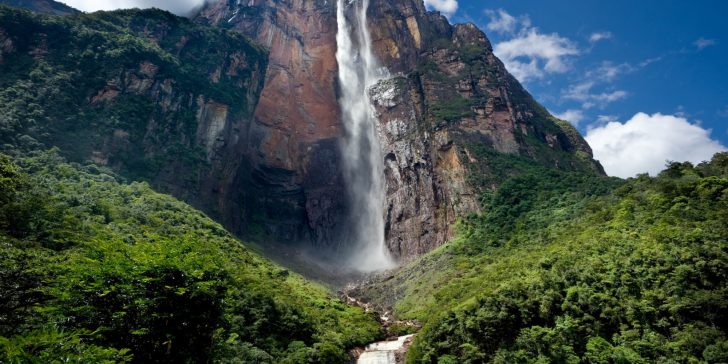
- Venezuela : Safety by City
Venezuela is a country located in South America with a shoreline along the Caribbean Sea and the North Atlantic Ocean.
It shares its borders with Colombia to the west, Guyana to the east and Brazil to the south, and it’s located in a manner that connects North and South America, right on the main sea and air routes.
Right off its coast sit the islands of Aruba, Bonaire, Curaçao and Trinidad, and Tobago.
Venezuela, although not the safest of countries, really has to offer an abundance of gorgeous sights and activities, like the Angel Falls that sit in the Guiana Highlands, and that is the world’s highest waterfall.
It is no wonder that this is of Venezuela’s major tourist attractions.
Tourists also love to visit its coastline which is the longest coastline on the Caribbean sea.
Don’t forget that Venezuela is the world’s fifth-largest oil exporter with enormous reserves of natural gas.
Ecologically, Venezuela is extremely diverse with more than 40% of its national territory being covered by protected areas.
- Warnings & Dangers in Venezuela
OVERALL RISK: HIGH
Venezuela is not safe for foreigners. Keep that in mind while you plan your trip to your country, remain vigilant at all times as both petty and violent crimes exist in abundance here. Apply maximum possible precaution measures.
TRANSPORT & TAXIS RISK: MEDIUM
Pickpockets operate mostly in buses and subway stations so be careful. Know that the roads are also extremely dangerous as carjacking is a regular occurrence. Buses and trains are also known for robberies.

PICKPOCKETS RISK: HIGH
Pickpockets are virtually everywhere in Venezuela. Pickpocketing and bag snatching are the most common forms of petty crime. Refrain from wearing anything remotely valuable outside.
NATURAL DISASTERS RISK: MEDIUM
As for the natural disasters that hit Venezuela, you can expect floods, earthquakes, and hurricanes. Floods are expected mostly in the period between May and December while the hurricane season lasts from June to November.
MUGGING RISK: HIGH
Violent crimes are also the norm here, and kidnappings as well. There's a new expression developed in this country, "express kidnapping" which means foreigners being kidnapped and possibly tortured until they use their credit card to empty their account and give their money to the muggers. Be extremely careful everywhere.
TERRORISM RISK: LOW
There haven't been any terrorist attacks in Venezuela's recent history. However, they shouldn't be ruled out, so be aware of your surroundings at all times.
SCAMS RISK: HIGH
Be wary of the so-called "virtual kidnappings". Locals in Venezuela generally never complete questionnaires or surveys because they're actually scams devised in order to collect information on you and your family members. Also, don't fall for the airport tax scam: be careful not to get overcharged when paying airport tax for both international and domestic flights.
WOMEN TRAVELERS RISK: MEDIUM
Many women have traveled to Venezuela without having negative experiences. The fact is, it is no more dangerous to women than it is to men. However, do not walk alone, especially after dark, as you might be perceived as an easier target to muggers and robbers.
- So... How Safe Is Venezuela Really?
You should know that Venezuela is not safe for tourists.
The US State Department has released an issue for all tourists to reconsider travel to Venezuela due to crime, civil unrest, poor health infrastructure, and detention of U.S. citizens.
There are numerous areas that are extremely dangerous.
Avoid traveling to certain neighborhoods of Caracas due to crime.
Places, where tourists are relatively safe, are the main tourist areas, but that’s it.
The situation is critical in this country: it has one of the top five highest per capita murder rates in the world, kidnappings that have increased as much as 50% within a period of one year, from 2008 to 2009, while armed robberies are the norm.
Kidnappings of foreign nationals also occur and people have been taken from homes, hotels, unauthorized taxis and airport terminals.
In the past couple of years, an expression “express kidnapping” has developed.
The expression basically refers to short-term opportunistic abductions, with a goal of extorting money from the victim.
Victims are selected randomly and held while criminals force them to use their cash cards to empty their bank accounts.
Once they get the money, they release the victim.
It doesn’t last more than an hour, but it is commonly followed by violence and is generally a terrifying experience.
You also have to be extremely careful on the road, where you are more exposed than in your home.
Carjackings happen both during day and night.
Do not rent or drive an expensive-looking vehicle as they are targeted and attract attention.
The carjackings are executed by armed gangs ramming the victim’s vehicle from behind, or flagging them down in order to rob them.
Whatever you do, don’t resist – it can end in them shooting the victim dead.
- How Does Venezuela Compare?
- Useful Information
Most countries do need a visa in order to enter Venezuela and they cannot be acquired upon arrival or at any of the airports. Make sure your passport is valid for at least 6 months from the date of arrival in Venezuela. If you are not sure about your visa status, visit www.doyouneedvisa.com which will let you know whether or not you need a visa based on your nationality and the country you want to visit.
There are two currencies in Venezuela: Venezuelan Bolivar and Petro. ATMs are widespread throughout the country, but they don't all accept foreign credit cards. Banco Provincial and Mercantil accept foreign cards. Credit cards are accepted in most establishments in major cities.
Venezuela has mostly tropical climate, on the coastline and even in the lowland areas. However, the mountainous region of the country is much cooler, with temperatures there dropping to as low as 9°C. Venezuela has a rainy season that lasts from May to December, and a hurricane season that lasts from June to November.
Simón Bolívar International Airport is the main international airport located in Maiquetía, Vargas. It is located about 21 km from downtown Caracas.
Travel Insurance
Just like anywhere else, we recommend getting travel insurance when traveling to Venezuela, since it covers not only the costs of medical problems but also theft and loss of valuables.
Venezuela Weather Averages (Temperatures)
- Average High/Low Temperature
Venezuela - Safety by City
Explore venezuela.
- 11 Cheapest Places to Live in Venezuela
- 10 Most Dangerous Cities in Venezuela
- 12 Best Zoos & Aquariums in Venezuela
- Are There Sharks in Venezuela?
- 10 Best Flea Markets in Venezuela
- 10 Safest Cities in Venezuela
- 16 Pros and Cons of Living in Venezuela
- Top 10 Dishes, Desserts, and Drinks You Should Try in Venezuela
- Where to Next?

27 Reviews on Venezuela
Calm and tranquil.
Get rid of the e. Hugh Gashol. I like it though.
Woman risk medium?. Few years ago , miss world travel to her own country and her British husband’. Both rubbed and killed . Ultra high risk to get murder ..
MURDER KIDNAPPING DRUG SMUGGLING CORRUPT GOVERNMENT ! GOD BLESS THE VENEZUELAN PEOPLE. I PRAY FOR YOU. MADURO MUST DIE AND ROT IN HELL!!!!
Lived there for a year in 2010. Interrogated at the airport. Airport “official” tried to steal my passport as a I was trying to get back to Canada. Water from taps was brown. No electricity for hours at a time. Rolling blackouts due to corrupt government. Fast forward to 2020 and things are SO SO MUCH WORSE. No food, no medicine, coronavirus outbreak. They will Kill you for money, cell phone, food, car, shoes. Anything that you have, the government run colectivos will Kill you. Maduro will burn in hell along with his cronies and Hugo Chavez. Do not go there until there is a regime change. My wife is Venezuelan and she will never go back. Thank God she got her parents out of there. Most dangerous place on Earth.
Thank you for your honest and by what else I’ve read, accurate review and warning. I have a partner there and I was considering visiting Venezuela, not anymore!
I was thinking of visiting San Felipe Venezuela I am hoping it won’t be that bad… but I will do my research and see how things are down in Venezuela.
Please don’t go. Not safe at all
Yes exactly. PLEASE USE YOUR COMMENT SENSE. LEVEL 4 AVOID ALL TRAVEL.
Worst place on Earth. Do not go there. Zero rating.
Murder Capital of the World.
it’s so sad to see what venezuela’s become 🙁 such a beautiful country with amazing people! but it’s impossible nowadays… just sad
Lived for 3 years. no issues whatsoever, beautul beaches, good rum nice weather.
When was that….back in the 50s?
May he went down further like to Brazil or Argentina. Going to Venezuela it’s just like been in a war zone!
Don’t go here
I only lived here for two years before my family moved to the United States… but the stories my mom tells me are really horrific. It’s really dangerous, and much, much worse with the added coronavirus pandemic. Please don’t go here unless it’s absolutely necessary, or you will leave injured, robbed, or not leave at all (die here).
Amazing place, just be a bit careful downtown & at night
Ay ay ay…..no. It may be dangerous but my family thrives in Venezuela and only die of natural causes. Rlly nice ppl. Im not saying that there are criminals, my grandmas phone got stolen once. But thats IT. As a Venezuelan girl, amazing food,music (listing to it right now & vibing) and we have one of the tallest waterfalls in the world. Our president is TERRIBLE but ye, anything else is amazing. I recommend Arepas!
Don't go to Venezuela
Your family thrives there because they have adapted. The problem is that we as Venezuelans see the crimes as something common, we couldn’t leave the country so we had to comply, WE NORMALIZED CRIME, and you know that!!! but when you live in a first world country you understand that it was never OK, and we were just prisoners in our own country.
It’s either that they have adapted as you said, and they think that atrocities that happen there are expected on this planet because they haven’t lived in a developed country or they are connected “enchufados” somehow with the tyrants that they have in their government and getting benefits from their corrupted system. It seems that his or her family is not getting the benefits of being part of their government because that Venezuelan said that their president was “TERRIBLE” and she or he could be in very grave trouble if their government members are aware of those adjectives that person is using about their dumbass president. With that said, I’m almost sure that they fall in the bracket of those who are prisoners of their lack of knowledge. This would be an excellent example of the Stockholm Syndrom to teach in schools and universities around the world to properly educate human beings to start combating and decreasing this kind of pure anarchic dictatorship. The documentary named “How to Become a Tyrant”, and that Venezuelan individual and his/her family should watch it, of course, if it is available to get accessed in Venezuelan because I bet it’s banned there, played by Netflix explains how these brutal and cruelest geniuses including Lenin in Russia, Joseph Stalin in the Soviet Union, Adolf Hitler in Germany, Benito Mussolini in Italy, Hirohito in Japan, Muammar Gaddafi in Lybia, Saddam Hussein in Iraq, Idi Amin in Uganda, Fidel Castro in Cuba, Augusto Pinochet in Chile, Daniel Ortega in Nicaragua, Chavez and Maduro in Venezuela, Kim Jong Un in North Korea and his amazing granddaddy and daddy, and so on, follow a recipe or playbook for absolute power, outrageously enrich themselves, and rule with an iron fist massacring or eliminating whoever stands in their way. I was born in Venezuela and lived there for 31 years, and the best decision I have done in my life was to get out from there 20 years ago to live in a decent way without the extreme fear of being killed in one of their daily robberies or express kidnappings, or basically die of starvation or from the stress produced by their anarchy, electrical outages, lack of running potable water. My recommendation to that person, if she/he doesn’t mind, is to live sometime in a developed country and to invest a little more effort to get better educated so they can be able to escape from that mental prison. It’s a shame that I cannot grade her comment with something less than terrible or one star. My recommendation to anybody who reads this input is as follows: If you want to get a hell experience in a place where you don’t have any warranties to come back alive or whole, you can go to Venezuela. And, I feel a profound shame because Venezuela was blessed with all kinds of natural resources and it had the biggest oil reservoir in the world, but there is no sack that can withstand the constant theft from their own functionally illiterate government members and whoever clown is connected to that corrupted and atrocious system, and this is why Venezuela is one of the worst places in this planet nowadays. Hope this helps with your travel decisions.
Venezuela needs tourism
I spent 4 years in Venezuela and I was robbed once in my last 3 months. I travelled extensively throughout the country alone as a blonde, blue eyed European. The “Guardia Nacional” and the Venezuelan police were extremely polite and very helpful. I loved my time in this extremely beautiful country. Of course I was extremely aware of my surroundings 24/7. Most of South America is dangerous but Caracas has ALWAYS been extremely dangerous. I was there in the 1980’s and the 1990’s. It really was hell on Earth so I avoided it completely on this 4 year stay.
Is it safe for tourist. we want to travel to Venezuela from Trinidad and Tobago.
It isn't safe right now
It is not safe for tourists. They are currently having a humanitarian crisis. Please reconsider going there!
my mum went to Venezuela she liked it.But she went on an island.
Avoid all travel purposes, essential or non essential. but if you want to go, avoid the slums and risky areas.
Mostly accurate
The article is mostly accurate except for a few points: – Woman safety. By saying that the place is equally unsafe for both genders automatically makes it a high risk instead of a medium. Also, if you’re a remotely attractive woman, get ready for some serious cat calling, just like in your average latin American country – How prevalent murders are should be stressed more, criminals are armed to the teeth and wont hesitate to open fire if they don’t get what they want, or even because of mere sport, it is a cultural thing – Even mentioning the risk of an earthquake is silly, you’ll get mugged a thousand times before feeling a remotely threatening tremor
Bottom line, don’t risk it. Similar natural beauties can be found in the neighboring and (relatively safer) countries, even the typical food is widely available in most Spanish speaking countries as huge Venezuelan colonies have been established by the more and more migrants running away from the unbearable situation there
Source: Venezuelan
It gets worse as time goes by
This is one of those cases where you should believe all the red flags. We’ve only had the misfortune of visiting it once, four years ago, but I wouldn’t go back unless it’s an island or the Guianan savanna ecoregion! I know it’s home to lots and lots of tourist attractions but I find it horrible trying to enjoy a foreign location when I have to constantly watch over my shoulder.
Slums should be absolutely no-limits zone, no matter where you find yourself in Venezuela, this is the first thing the guide told us.
Tourists are usually the go-to target, either for hefty ransoms or just for an armed robbery. Luckily this wasn’t the case but I got horrible notifications in the four days we’ve spent in Caracas. Local police have little to no interest in helping you; I’ve lost a film camera which I’m sure was somehow swiped from my backpack but they just told me to give it up after waiting almost two hours to fill a police report. Seriously? They looked like they all wanted to be somewhere else…
ATMS? Not safe, we were warned to use only the ones located inside banks or in very populated areas.
TAXIS? Overpriced, unpleasant and you risk being stopped by robbers.
We then went on to spend a full week in Los Roques which made it seem like we were in a whole different country. The place has almost zero crime, we weren’t disturbed by beggars, the water and the staff was incredibly helpful and accommodating.
Don’t be naive, don’t imagine that this sort of thing only happens to others, Venezuela is a very dangerous place. You might have more luck moving around if you have a friend/relative there but otherwise I would just stick to visiting from the myriad of islands.
Sure, it’s a dangerous country and the government is corrupt, but it’s not a war zone. Due to the current anarchocapitalist model and heavy money laundering by government officials, as of 2022 there has been many new businesses and the economy is slightly better. There are no more food shortages anywhere, they’re just expensive for the lower class. Caracas is very dangerous at night, but the rest of cities suffer from less crime. (personally, i’m from San Cristobal and I have never gotten robbed at gunpoint in my entire life) Of course, if you go around looking like a tourist from a first world country, the chances of something bad happening tend to elevate. Stick to places like Margarita (specifically El Yaque, crime is almost non existant there because they kill criminals to keep that place safe) and Los Roques (the most expensive destination in the country but also the most beautiful and safe) You’re more likely to be a victim of corruption and authority abuse than robbery or murder, honestly. Be wary at Maiquetía. A good option might be to record any violations, as the current modus operandi is “whatever crime goes viral on social media must be punished”, and they might be scared of that. Plus, always be with someone who speaks spanish. Enjoy the adventure if you come. Sure, it’s kind of dangerous and every living being related to the government is a piece of garbage, but the people here are incredibly nice to tourists since we don’t get so many, the beaches are incredible, and the food is superb. Plus the women are gorgeous, too.
Has anyone recently (2022) been to Valencia in Venezuela? I’m thinking about going to see a friend before the end of this year?
I lived here for 8 years, everything was bad
I used to live in venezuela from 2010 to 2018, im now almost 13 and boy, Venezuela want really good. sure, it has great food, great culture and beautiful scenery, but over 95% of venezuelans (including me back then, now im in USA) deal with economic struggle. Most of Venezuela is extremely unsafe, and Caracas has more crime than all the other cities. The healthcare is also horrible, once I got a really bad sickness and the medicine I got from there made me feel worse, I feel really bad for my relatives who live there, may Venezuela be better in the future 😢🇻🇪
Share Your Experience Cancel reply
Your Review
Title of your review
Article Contents
- Overall Risk
- Transport & Taxis Risk
- Pickpockets Risk
- Natural Disasters Risk
- Mugging Risk
- Terrorism Risk
- Women Travelers Risk
- Weather Averages (Temperatures)
- User Reviews
- Share Your Experience
Popular Destinations

Safety Index
Recent reviews & comments.
- Cheng on Sapporo
- Marianne Lopez on 16 Pros and Cons of Living in Pompano Beach, FL
- Mark Austin on 16 Pros and Cons of Living in Pompano Beach, FL
- James Orlando on 16 Pros and Cons of Living in Pompano Beach, FL
- Scott on Sydney
Popular US States
- Pennsylvania

Search Smartraveller

Latest update
We continue to advise:
Do not travel to Venezuela due to the dangerous security situation, the risk of food, water, medicine and petrol shortages, and the threat of violent crime.
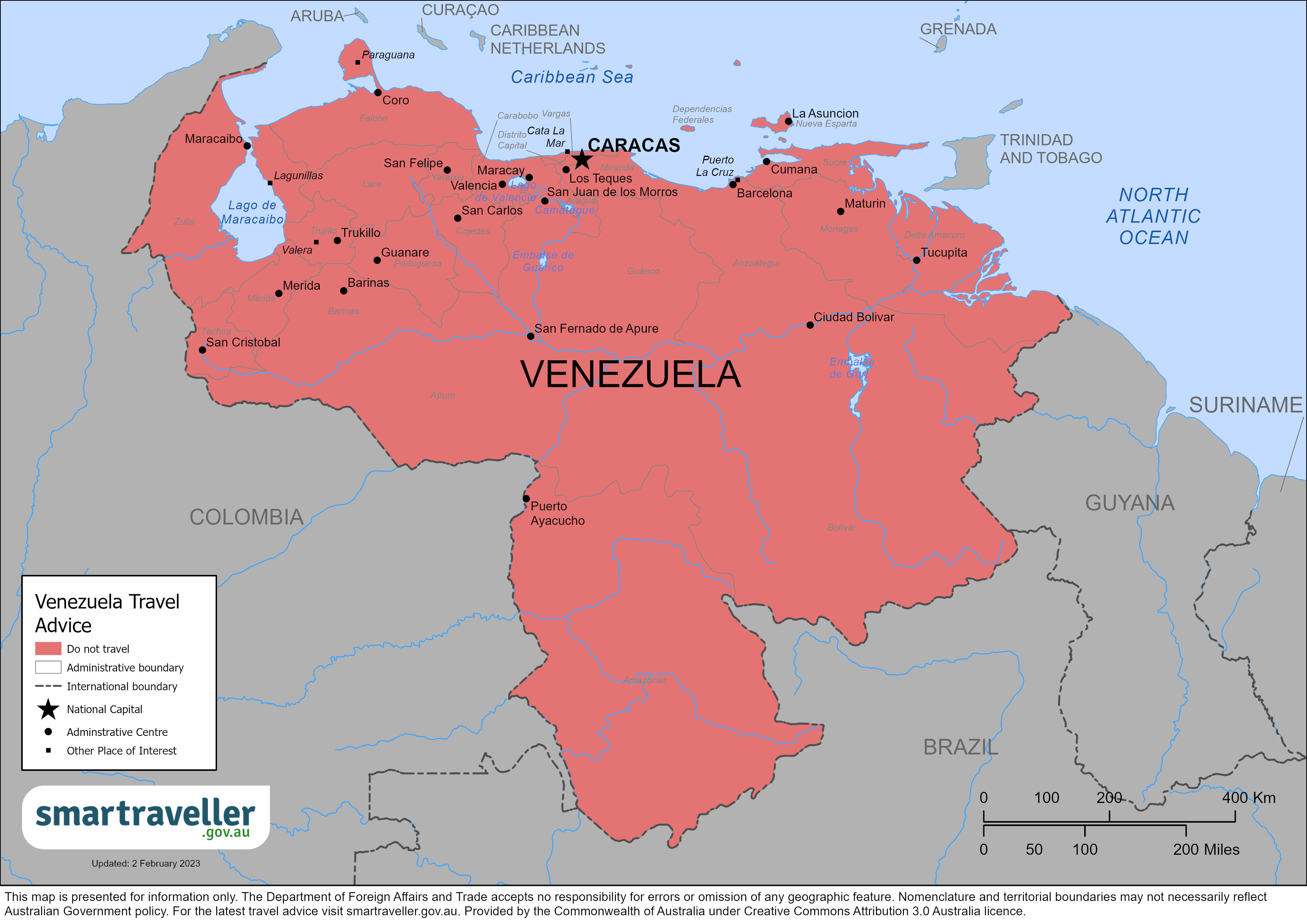
Venezuela (PDF 366.91 KB)
Americas (PDF 3.29 MB)
Local emergency contacts
Fire and rescue services, medical emergencies.
Call 911 or go to the nearest hospital.
Call 911 or visit the nearest police station.
Advice levels
Do not travel to Venezuela.
Do not travel to Venezuela due to the dangerous security situation, the risk of food, water, medicine and petrol shortages, and the threat of violent crime.
See Safety
- There's a risk of ongoing demonstrations and civil unrest, particularly following the recent presidential election. Venezuela's political situation is volatile. Avoid protests and large gatherings as they may turn violent.
- Common violent crime includes murder, armed robbery, drive-by shootings, sexual assault and carjackings. Criminals are often armed. Avoid walking in isolated areas, especially at night. Terrorist groups and criminal gangs are active along Venezuela's borders with Colombia, Brazil and Guyana.
- Kidnapping is a serious threat. The risk is higher along airport routes and in border regions. Only use official taxis organised through your hotel. Avoid kidnapping hotspots.
- Shortages of basic goods can result in long line-ups at stores. This can lead to fighting, looting and theft. Be ready to change travel plans. Keep extra supplies of food, water, medicines and other necessities.
- Severe weather, earthquakes, hurricanes, tropical storms, flooding and landslides can occur. The rainy season is from May to December. Monitor local media and the Global Disaster Alert and Coordination System for updates.
If you're in Venezuela, you should consider leaving by commercial means if it's safe to do so. If despite our advice you remain in Venezuela, stay alert, keep stocks of essential supplies and be ready to leave at short notice.
Full travel advice: Safety
- Serious outbreaks of insect-borne diseases, including yellow fever and malaria, can occur. Get vaccinated against yellow fever. Consider taking medicine to prevent malaria. Use insect repellent. Zika virus can occur. If you're pregnant, talk to your doctor about the risk of Zika virus.
- HIV/AIDS is common. Take steps to reduce your risk of exposure to the virus. Other infectious diseases include typhoid, hepatitis, tuberculosis, Venezuelan haemorrhagic fever, measles, mumps, rubella, bilharzia and rabies. Boil drinking water or drink bottled water. Don't swim in freshwater.
- Medical services, medical supplies, medicines and emergency services are limited. If you become seriously ill or injured, you'll need to be evacuated. Get appropriate travel insurance and make sure your insurance covers medical evacuation.
Full travel advice: Health
- Don't use or carry illegal drugs. Severe penalties for drug offences include long jail sentences. Carrying even a small amount of marijuana can result in jail time. Jails in Venezuela are dangerous and among the worst in the world.
- Drug trafficking in Venezuela is a big problem. Authorities screen travellers at the airport when they arrive and leave.
- It's illegal to photograph military sites and installations, sites of strategic importance and airports. Be careful when taking photos.
Full travel advice: Local laws
- If you decide to travel to Venezuela, despite our advice, you won't need a visa for tourist visits of less than 90 days. Most sea and air borders with Trinidad and Tobago, Aruba, Bonaire and Curaçao have re-opened, however, entry and exit conditions can change at short notice. You should contact the nearest embassy or consulate of Venezuela for the latest details.
- Carry your yellow fever vaccination certificate. You may need to show it for onward travel.
- In some cases, a child cannot enter or exit Venezuela without written permission from both parents. If you're travelling with a child, you may need a letter of consent for travel.
- Driving in Venezuela is dangerous. Police and National Guard checkpoints are common. Slow down at checkpoints or stop as directed. Ask for local advice about your route before you drive.
Full travel advice: Travel
Local contacts
- The Consular Services Charter tells you what the Australian Government can and can't do to help when you're overseas.
- Our ability to provide consular services in Venezuela is extremely limited.
- Australia doesn't have an embassy or consulate in Venezuela. The Canadian Embassy is no longer providing consular assistance to Australians in Venezuela.
- Be aware consular services may be limited due to local measures.
- For full consular assistance, contact the Australian Embassy in Colombia .
Full travel advice: Local contacts
Full advice
Violent crime.
There's a high level of violent crime in Venezuela.
If, despite our advice, you travel to Venezuela:
- always pay close attention to your personal security
- monitor the media and other sources for new security risks
Actual crime rates may be higher than official figures indicate.
Violent crime occurs throughout Venezuela. Incidents include:
- armed robbery
- drive-by shooting
Many criminals carry firearms. They may kill or injure you if you resist.
Police response times are poor. Most murders and major crimes go unsolved.
On roads, the threat of serious crime is high. Australian Government officials take extra security precautions when travelling by car in Venezuela.
Crimes you could come across include:
- mugging and kidnapping, sometimes by criminals posing as taxi drivers at Maiquetia Simon Bolivar Airport
- violent street crime and robbery near ATMs, money changers or damaged vehicles
- armed motorcycle gangs robbing passengers in vehicles stopped in heavy traffic
- 'express kidnappings', where criminals force you to withdraw funds from ATMs
- harassment and extortion by criminals posing as officials
- drink or food spiking, often followed by robbery and assault , including sexual assault
- widespread theft of credit card data.
Petty crime is also common. This includes:
- pickpocketing on public transport
- theft from hotel rooms, safe deposit boxes and rental cars
Crime hotspots
Crime rates are high in Caracas, including in:
- central Caracas
- Sabana Grande district
- Avila National Park
- the Maiquetia Simon Bolivar Airport area, and the road between the airport and Caracas
- 'barrios' or 'ranchitos' slum areas, especially after dark
Crime is also high in:
- poorer areas, such as Cumana, Maracaibo, Paraguana and Valencia
- on the islands of Los Testigos
- Margarita Island (Isla de Margarita)
- tourist and resort areas
If you go to Venezuela despite our advice, arrive and leave Caracas during the day. Organise your transport before you arrive at the airport.
If possible, have a friend, family member or trusted transport service pick you up on arrival. Only use official taxis that you have booked through your hotel or from the official taxi rank outside the airport arrival hall. Be cautious of fake taxi drivers at the airport. Don't accept offers of transport in the arrivals hall, and do not board a taxi if there are other passengers already inside the car. Stay alert at the airport car park.
Criminal groups operate in the Maiquetia airport area. Members of these groups work inside the airport to spot passengers who appear to be wealthy and then inform carjackers and muggers waiting on the roads outside the airport. Avoid displaying expensive jewellery, electronic items or other valuables. Don't bring large amounts of cash to Venezuela.
Avoid travelling on the road between Caracas and Maiquetia airport after dark. There have been armed robberies on buses travelling to Maiquetia airport.
If you're coming to Venezuela to work, bring a letter from your employer and details of your local contact organisation (including a Spanish translation).
There have been occasions where passengers have been asked for bribes at the airport.
The National Guard carries out random drug and security checks at Maiquetia airport, particularly on departure. Departing passengers are sometimes asked to accompany an officer to a local hospital for an x-ray. Beware of people claiming to be security officials, if in doubt ask other airline or airport staff.
To stay safe when you're out and about:
- be alert to your surroundings and always pay attention to your safety and security
- carry only what you need — leave other valuables in a secure place
- keep vehicle doors locked, windows up and valuables out of sight, even when moving
- avoid walking or driving in secluded areas, especially at night
- exchange currency at official exchange booths only
If you're female, take extra care when dealing with strangers or people you've just met. Be especially wary about accepting rides or invitations.
Check the local situation before travelling to Canaima National Park and the Gran Sabana area of Bolívar State, as there may be protests and closures (sometimes for days) of Canaima airport and main roads.
Incapacitating drugs
Criminals may use drugs to subdue or incapacitate their victims. Robberies and assaults may occur after victims accept spiked drinks, food, cigarettes, chewing gum or paper handouts.
Always check that your drink has been opened or prepared in front of you. Avoid leaving food or drinks unattended and don’t accept anything from strangers.
Cyber security
You may be at risk of cyber-based threats during overseas travel to any country. Digital identity theft is a growing concern. Your devices and personal data can be compromised, especially if you’re connecting to Wi-Fi, using or connecting to shared or public computers, or to Bluetooth.
Social media can also be risky in destinations where there are social or political tensions, or laws that may seem unreasonable by Australian standards. Travellers have been arrested for things they have said on social media. Don't comment on local or political events on your social media.
More information:
- Cyber security when travelling overseas
Kidnapping occurs across the world with political, ideological, and criminal motives. Foreigners, including Australians, have been kidnapped overseas whilst travelling. Kidnaps can happen anywhere, anytime, including in destinations that are typically at lower risk.
Incidents of kidnapping in Venezuela have increased since 2020, partly due to the increased availability of foreign currency, which acts as an incentive for perpetrators to engage in the crime. Kidnapping gangs operate throughout the country, including near the border with Columbia. Criminal and Terrorist groups are active. Express kidnapping also occurs.
If, despite our advice, you travel to an area with a high risk of kidnapping, our ability to provide consular assistance in these destinations will be limited.
To reduce the risk of kidnapping:
- always be alert to your personal security and surroundings
- get professional security advice for travel in locations with a heightened kidnap risk
- check your accommodation has appropriate security measures
- avoid isolated locations, particularly when travelling alone
- notify family or friends of planned travel and share your location
- avoid talking about your money or business affairs
- use ATMs in public places and during daylight hours
- avoid giving personal details to strangers online or over the phone
The Australian Government's longstanding policy is that it doesn't make payments or concessions to kidnappers. Ransom payments to kidnappers have funded further terrorist attacks and criminal activity. Paying a ransom to terrorist groups will likely break Australian counter-terrorism financing laws.
More information:
- Kidnapping
Civil unrest and political tension
Protests and demonstrations.
There's a risk of ongoing demonstrations and civil unrest, particularly following the recent presidential election. Avoid protests and large gatherings as they may turn violent. Demonstrations may disrupt travel plans, affect flights, traffic, and public transportation. Monitor local media and follow the instructions of local authorities.
The political situation is volatile.
Demonstrations and other types of civil unrest are common, particularly in major urban centres, such as:
- San Cristóbal
Disruptions to essential services can occur.
On-the-spot demonstrations and other ongoing unrest are a risk. Violent incidents, arbitrary arrest or detention, and military responses are possible.
Roads and highways are often blocked during demonstrations, disrupting public transport systems.
Days of national significance could motivate civil unrest. Public protests and events that draw large groups of people can turn violent.
National strikes can be called at short notice, often causing disruptions to:
- public transport
- banking services
- government services
The economic situation in Venezuela continues to be unstable. Shortages of basic food items and necessities, including water, electricity, petrol and medical supplies, are common.
Power outages may impact communications, banking, and transportation, including airport operations and make international calls from Venezuela challenging.
Shortages of basic items and long lines at grocery stores have previously led to:
- avoid all protests, political activity and large public gatherings
- leave affected areas as soon as it's safe
- monitor the media and other sources for news about possible unrest
- be particularly alert during days of national significance
- follow the instructions of local authorities
- keep spare supplies of food, medicines and other necessities
- keep enough bottled water supplies on hand. Tap water is not safe for drinking.
Border areas
Avoid border areas, as they can be dangerous due to the presence of terrorist groups.
Most sea and air borders with Trinidad and Tobago, Aruba, Bonaire and Curaçao have re-opened. However, entry and exit conditions can change at short notice. Monitor local media and contact your transport provider for updated information.
In border areas, there are limits on the right to:
- free movement
Demonstrations and civil unrest
Terrorism is a threat in Venezuela.
Terrorist groups are particularly active in the region within 80km of Venezuela's border with Colombia. This region includes parts of:
Colombian armed groups, such as the ELN (Ejército de Liberación Nacional) and criminal gangs, are active along Venezuela's borders with:
Hostages, including foreigners, have died after being kidnapped in these areas.
The Venezuelan military conducts searches and arrests in border regions, but threats remain. Troop movements and border closures can occur at short notice.
If, despite our advice, you decide to visit an area where there's a threat of kidnapping:
- find out about kidnapping before you travel
- seek professional security advice
- arrange effective personal security measures
Terrorism is a threat worldwide.
Climate and natural disasters
Venezuela experiences natural disasters and severe weather , including:
- earthquakes
If a natural disaster occurs:
- secure your passport in a safe, waterproof place
- monitor local media and other sources, such as the Global Disaster Alert and Coordination System
- follow the advice of local authorities
- keep in touch with friends and family
- seek local advice before entering affected areas
Hurricanes and severe weather
The rainy season is from May to December, bringing:
Tropical storms and hurricanes can also occur in other months.
The direction and strength of hurricanes can change with little warning.
If there's a hurricane or severe storm:
- you may get stuck in the area
- flights could be delayed or suspended
- available flights may fill quickly
- sea ports may close
- proper shelter may not be available
If a hurricane is approaching:
- know your hotel's or cruise ship's evacuation plan
- identify your local shelter
- monitor alerts and advice from the US National Hurricane Center and Tropical Prediction Center
Travel insurance
Get comprehensive travel insurance before you leave.
Your policy needs to cover all overseas medical costs, including medical evacuation. The Australian Government won’t pay for these costs.
If you can't afford travel insurance, you can't afford to travel. This applies to everyone, no matter how healthy and fit you are.
If you're not insured, you may have to pay many thousands of dollars up-front for medical care.
- what activities and care your policy covers
- that your insurance covers you for the whole time you’ll be away
You're likely to need a specialised insurance policy for travel to a 'do not travel' destination. Some Australian insurance policies may not cover you for travel to 'do not travel' destination.
Physical and mental health
If you have immediate concerns for your welfare, or the welfare of another Australian, call the 24-hour Consular Emergency Centre on +61 2 6261 3305 or contact your nearest Australian Embassy or Consulate to discuss counselling hotlines and services available in your location.
Consider your physical and mental health before you travel, especially if you have an existing medical condition.
See your doctor or travel clinic to:
- have a basic health check-up
- ask if your travel plans may affect your health
- plan any vaccinations you need
Do this at least 8 weeks before you leave.
- General health advice
- Healthy holiday tips (Healthdirect Australia)
Medications
Most pharmacies, including in hospitals, no longer stock basic medicine or supplies due to short supply.
Not all medication available over the counter or by prescription in Australia is available in other countries. Some may even be illegal or a controlled substance, even if prescribed by an Australian doctor.
If you plan to bring medication, check if it's legal in Venezuela with the nearest Venezuelan Embassy . Take enough legal medicine for your trip.
Carry a copy of your prescription and a letter from your doctor stating:
- what the medication is
- your required dosage
- that it's for personal use
Health risks
Insect-borne diseases.
Rates of insect-borne and infectious diseases are increasing. Diseases not seen for many years are re-emerging.
Venezuela has yellow fever . Yellow fever is a potentially fatal virus spread by mosquitoes. It's prevented by vaccination. Get vaccinated before you travel.
Malaria occurs year-round in some areas of Venezuela. The risk is highest in rural areas including:
- Bolívar, including the Angel Falls
- Delta Amacuro
Strains of malaria that are hard to treat have been reported.
Other insect-borne diseases in Venezuela include:
- Chagas disease
- leishmaniasis
Serious outbreaks sometimes occur.
Zika virus is widespread.
To protect yourself from disease:
- make sure your accommodation is insect-proof
- use insect repellent
- wear long, loose, light-coloured clothing
Consider taking medicine to prevent malaria.
Get medical advice if you develop a fever, muscle pain, a rash or a bad headache.
- Infectious diseases
- Immunisation
HIV/AIDS is common. Take steps to reduce your risk of exposure to the virus.
Other health risks
Waterborne, foodborne, and other widespread infectious diseases include:
- tuberculosis
- Venezuelan haemorrhagic fever
- rubella
To reduce your risk of illness:
- drink boiled water or bottled water with sealed lids
- avoid ice cubes
- avoid raw and undercooked food, such as salads
- don't swim in fresh water
- avoid contact with dogs and other mammals
If you're bitten or scratched by an animal, get medical help straight away.
Visit a doctor if you have a fever or diarrhoea.
Medical care
Medical facilities.
The standard of public medical facilities in major cities is poor. It's even poorer in rural areas.
Basic medical supplies and medicines are hard to find.
Caracas and other major cities have good private hospitals and clinics. These hospitals are expensive and often require up-front cash payment. Bear in mind that they may also be affected by medication and power shortages.
Most healthcare providers don't speak English.
Emergency and ambulance services are very limited. Response times are slow, especially in rural areas.
Find hyperbaric chambers at:
- Unidad de Buceo PDVSA in Lagunillas Norte
- Hospital Naval Raul Perdomo in Catia La Mar
- Compania Oriente marine Group in Puerto La Cruz
- Venezuela Divers in Ciudad Ojeda
If you become seriously ill or injured, you'll need to be evacuated to Caracas. Medical evacuation can be very expensive.
If you need emergency medical assistance during your trip, dial 911 (free of charge) from a landline or mobile phone.
You're subject to all local laws and penalties, including those that may appear harsh by Australian standards. Research local laws before travelling.
If you're arrested or jailed, the Australian Government will do what it can to help you under our Consular Services Charter . But we can't get you out of trouble or out of jail.
You must carry photo ID in Venezuela. You can carry a copy of your passport and keep the original passport in a safe place. Local security forces may ask you to show a form of ID at any time, particularly at police checkpoints.
Penalties for drug offences are severe. They include long sentences in dangerous local jails that are among the worst in the world.
If you're found with even a small quantity of marijuana, you may face a prison term.
Drug trafficking in Venezuela is a serious problem. Advanced detection methods have been introduced to help identify drug traffickers.
You'll be screened for drugs when you arrive and depart. You may also be screened while waiting in the airport.
Carrying or using drugs
It's illegal to photograph:
- military buildings and surrounds
- sites of strategic importance, including the Presidential Palace and airports
Australian laws
Some Australian criminal laws still apply when you’re overseas. If you break these laws, you may face prosecution in Australia.
Staying within the law and respecting customs
Dual citizenship
Australian-Venezuelan dual nationals must enter and leave Venezuela on a Venezuelan passport. This applies to children born to Venezuelans abroad, as they are assumed to be Venezuelan by local authorities. Contact the nearest Venezuelan embassy or consulate for further information.
If you're a dual citizen, this limits the consular services we can give if you're arrested or detained.
Venezuela has national service obligations. You may have to comply if you're a male dual citizen aged 18 years or older.
Dual nationals
Visas and border measures
Every country or territory decides who can enter or leave through its borders. For specific information about the evidence you'll need to enter a foreign destination, check with the nearest embassy, consulate or immigration department of the destination you're entering.
Visa-free travel for short stays
If you decide to travel to Venezuela despite our advice, you won't need a visa for tourist visits of less than 90 days. However, you'll need:
- a passport valid for at least 6 months after you plan to depart the country
- proof of return or onward travel
You can be detained or deported if you don't comply with your visa conditions.
Ensure your visa status is up to date by contacting the Venezuelan migration department (Spanish) .
Entry and exit conditions can change. Contact the nearest Venezuelan embassy or consulate for details about visas, currency, customs and quarantine rules.
Travel via the United States
If you're transiting via the USA, you must meet US entry and transit rules.
Check your visa requirements with the nearest US embassy or consulate well in advance of travel.
Travel advice for the US
Travel via Chile
If you’re travelling via Chile, ensure you meet all current entry or transit requirements.
- Travel advice for Chile
Border measures
We recommend that you do not travel to border areas or cross borders due to a high risk of terrorism and violent crime.
Do not attempt to cross Colombia, Brazil, and Guyana's borders by land.
Flights to and from Venezuela continue to be limited.
Other formalities
Yellow fever vaccination.
You may need a valid yellow fever vaccination certificate to enter Venezuela. Some airlines may want to see one when you leave.
Find out about returning to Australia after exposure to yellow fever .
Countries with a risk of yellow fever
Embassy or consulate of Venezuela
Travel with children
To enter and leave Venezuela, children of any nationality under 18 years who travel alone or with one parent will need a certified copy of their birth certificate and a notarised permit. The permit must be obtained through the nearest local SAREN office or the respective Court for Children and Adolescents. It must include all the relevant travel details.
If the child resides overseas, the permit and birth certificate must be certified by a Venezuelan embassy or consulate . The child should carry this travel permit while travelling within the country and also at time of departure from Venezuela. Children may be denied exit from the country otherwise. Both documents must be translated into Spanish.
Advice for people travelling with children
Departure tax
You'll have to pay a tax if you leave the country via an international airport.
Payment can be made in cash, in Venezuelan Bolivar.
The cost of your ticket sometimes includes the departure tax. Check with your airline.
Don't make any non-official payments at airports and ask for a receipt for any customs duty payments you make.
Some countries won’t let you enter unless your passport is valid for 6 months after you plan to leave that country. This can apply even if you’re just transiting or stopping over.
Some foreign governments and airlines apply the rule inconsistently. Travellers can receive conflicting advice from different sources.
You can end up stranded if your passport is not valid for more than 6 months.
The Australian Government does not set these rules. Check your passport’s expiry date before you travel. If you’re not sure it’ll be valid for long enough, consider getting a new passport .
Lost or stolen passport
Your passport is a valuable document. It's attractive to people who may try to use your identity to commit crimes.
Some people may try to trick you into giving them your passport. Always keep it in a safe place.
If your passport is lost or stolen, tell the Australian Government as soon as possible:
- In Australia, contact the Australian Passport Information Service .
- If you're overseas, contact the nearest Australian embassy or consulate .
Passport with ‘X’ gender identifier
Although Australian passports comply with international standards for sex and gender, we can’t guarantee that a passport showing 'X' in the sex field will be accepted for entry or transit by another country. Contact the nearest embassy, high commission or consulate of your destination before you arrive at the border to confirm if authorities will accept passports with 'X' gender markers.
- LGBTQIA+ travellers
The local currency is the Venezuelan Bolivar Fuerte (VEF).
It's not easy to exchange Australian dollars for local currency. Accessing money from an Australian bank account may be challenging.
There are 2 official exchange rates as well as black market rates. It's only legal to change money at the official government rate.
Differences in exchange rates can mean you need much larger amounts of Australian dollars for small purchases.
US dollars are widely accepted.
Money changers will exchange US dollars and travellers' cheques for VEF but generally can't convert them to other currencies.
The inflation rate is high.
Demand for large-value notes remains high, and notes are hard to obtain.
You are required to declare to authorities if you are entering or leaving Venezuela with more than US$10,000.
Credit cards and ATMs
Credit card transactions are charged at the official exchange rate.
Local EFTPOS machines don't always accept international credit cards. You may be prompted to enter your passport or identity document number when paying with a credit card.
ATMs have low limits for cash withdrawals on international cards. Don't rely on ATMs as your main way to access money.
With the shortage of banknotes, the local card payment system is under extra strain. Debit or credit card transactions may take longer than expected or require several attempts.
Credit card fraud is common. Always keep your card in sight.
Local travel
Driving permit.
You can drive in Venezuela for up to 1 year if you have both:
- a valid Australian driver's licence
- an International Driving Permit (IDP)
After 1 year, you'll need to apply for a local driver's licence.
Get your IDP before you leave Australia.
Road travel
Driving in Venezuela is dangerous.
Hazards include:
- poorly maintained roads and vehicles
- drunk drivers
- drivers ignoring red lights, particularly at night
Fuel shortages are common across all parts of the country.
Rural roads are often unmarked. They have little or no street lighting.
Make sure you have copies of insurance documents, driving licence and passport with you always. Failure to produce documents can result in your vehicle being seized by police.
There's a risk of extortion on roads outside major cities. Armed groups may pose as police and set up illegal roadblocks. Beware of attacks in tunnels. See Safety
At regular police and National Guard checkpoints:
- drive slowly
- stop if you're asked
Checkpoint officials might ask for bribes.
If you plan to drive in Venezuela:
- check you have the right insurance cover
- get to know local traffic laws and practices before driving
- get local advice and monitor local media about routes you plan to travel
Avoid hitchhiking and cycling.
There is a risk of theft on both inner city and inter city buses, especially at night.
Driving or riding
Motorcycles
Make sure your insurance policy covers you to ride a motorbike, quad bike or similar vehicle.
Always wear a helmet.
Crimes involving taxis occur. See Safety
If you need a taxi, use either:
- a pre-booked, licensed, radio-dispatch taxi
- a limousine service
Arrange these through your hotel. Don't hail taxis on the street.
Public transport
Avoid public transport. Theft is prevalent in public transport, including subway stations. Public transport providers, including state-owned companies, may not carry out routine maintenance. Services could be cancelled or delayed.
Your safety may be at risk.
Transport and getting around safely
Ferry companies may not look after their fleets properly. This could make them unsafe. Services could be cancelled or delayed.
Piracy occurs in the coastal areas of Venezuela. The International Maritime Bureau issues piracy reports .
- Travelling by boat
DFAT doesn’t provide information on the safety of individual commercial airlines or flight paths.
Check Venezuela's air safety profile with the Aviation Safety Network.
Tours and adventure activities
Tour operators don't always meet the safety standards you might expect.
They may not take safety precautions or follow maintenance schedules. Safety gear, such as life jackets and seatbelts, may not be provided.
If you plan do a tour or adventure activity :
- check if your travel insurer covers it
- check the operators' credentials and safety equipment before booking
- ask about or insist on minimum safety requirements
- always use available safety gear, even if others don't
If standard safety equipment is not available, use another provider.
Emergencies
Depending on what you need, contact your:
- family and friends
- travel agent
- insurance provider
Phone operators may not speak English.
Always get a police report when you report a crime.
Your travel insurer should have a 24-hour emergency number.
Consular contacts
Read the Consular Services Charter for what the Australian Government can and can’t do to help you overseas.
Australia doesn't have an embassy or consulate in Venezuela. Contact the Australian Embassy in Colombia for assistance.
Australian Embassy, Bogota
Edificio Tierra Firme Avenida Carrera 9 No. 115-06 Oficina 2003 Bogotá, Colombia
Phone: +57 6016578030 E-mail: [email protected] Website: colombia.embassy.gov.au Facebook: Embajada de Australia en Colombia y Venezuela X: @AusEmbCO
Check the embassy websites for details about opening hours and any temporary closures.
24-hour Consular Emergency Centre
In a consular emergency, if you can't contact an embassy, call the 24-hour Consular Emergency Centre on:
- +61 2 6261 3305 from overseas
- 1300 555 135 in Australia

Travelling to Venezuela?
Sign up to get the latest travel advice updates..
Be the first to know official government advice when travelling.
Agenda47: Why Trump's immigration-reform proposals come with legal, feasibility concerns

As both presidential candidates begin to focus on their policy agendas, immigration continues to be one of the biggest issues in the election.
Former President Donald Trump 's platform has long focused on immigration; one of hi s earliest 2016 campaign messages was to build a wall along the southern border. The issue is taking center stage again in this election as Republicans have been increasingly raising alarm bells about "migrant invasions."
"What is happening at the border, is migration, and it is a pattern of migration that we have seen over the last decade, a rise of asylum seekers, on top of a pattern of migration we have seen for 50 years ... of people coming to the United States seeking a better life by sneaking across the border," said Aaron Reichlin-Melnick a fellow at the American Immigration Council , a nonpartisan immigration advocacy nonprofit. "Neither of those is an invasion."
Throughout several administrations, immigration policy has stalled in Congress and policies have largely been set through executive action, which can change at the whim of election cycles.
President Joe Biden has already issued more executive actions on immigration than Trump had in his entire presidency, according to Kathleen Bush-Joseph, policy analyst with the nonpartisan think tank Migration Policy Institute . But Biden has moved significantly to the right over the last couple of years, blaming Republicans for failing to support a bipartisan immigration bill while saying he would be able to " shut down the border " if it had passed.
Sign-up for Your Vote: Text with the USA TODAY elections team.
"That's helpful context for understanding how contentious some of this is, and also how vulnerable a lot of these policies are to litigation and to future administrations trying to roll back some of these policies," Bush-Joseph said.
Trump campaign press secretary Karoline Leavitt called Vice President Kamala Harris a " failed border czar, " though she has not been in charge of the border, and criticized Biden's handling of the children at the border .
"Trump will restore his effective immigration policies, implement brand new crackdowns that will send shockwaves to all the world’s criminal smugglers, and marshal every federal and state power necessary to institute the largest deportation operation of illegal criminals, drug dealers, and human traffickers in American history," Leavitt said in statement shared with USA TODAY.
Here are some of Trump's proposed policies under Agenda 47 and the Republican platform.
Agenda47 on crime: Trump proposes death-penalty for drug dealers, requiring stop and frisk
'End automatic citizenship for children of undocumented immigrants'
"On Day One, President Trump will sign an Executive Order to stop federal agencies from granting automatic U.S. citizenship to the children of illegal aliens.... It will direct federal agencies to require that at least one parent be a U.S. citizen or lawful permanent resident for their future children to become automatic U.S. citizens," Trump's Agenda 47 states.
- How we got here: Under the 14th Amendment of the Constitution , ratified coming out of the Civil War in 1868, anyone born in the U.S. is a U.S. citizen. Trump's agenda states this is a "major incentive for illegal immigration."
- In today's context: Trump's platform says he wants to clarify the amendment, so it is understood "that U.S. Citizenship extends only to those both born in AND 'subject to the jurisdiction' of the United States." Reichlin-Melnick said it is well established that "subject to the jurisdiction" generally means anyone without diplomatic immunity, and stripping the citizenship right for those born here is a "crack pot fringe theory." Libertarian think tank Cato Institute also called it an "unorthodox view" not supported by the vast majority of constitutional lawyers.
'Seal the border and stop the migrant invasion'
Among his "20 Core Promises to Make America Great Again," part of the RNC platform, Trump also promised to "seal the border and stop the migrant invasion."
- How we got here: "No president has managed to seal the border in US history, despite multiple attempts to do so. This is not a new concern in the United States," Reichlin-Melnick said. Currently there are barriers on 654 miles of the 1,933 mile-long border. Trump built-up barriers on several hundred miles. At the end of Trump administration, border apprehensions were on the rise monthly from April 2020, and reached a 23-year peak in December of 2022, Reichlin-Melnick said. Growing destabilization in several South American countries including Venezuela , Nicaragua and Cuba have contributed to the increased migration in the last few years.
- In today's context: Biden has put into place policies that effectively lower the number of asylum seekers admitted to the country at the border. Diplomacy and regional cooperation are also a big part of Biden's strategy to mitigate migration at the border, including opening Safe Mobility Offices in Colombia, Costa Rica, Guatemala, and Ecuador, which try to reach migrants before they get to the border to and help them from taking dangerous paths; He has also tried worked with countries to take migrants back and quickly return people to Mexico at the border, Bush-Joseph said. The number of apprehensions have dropped back to summer of 2020 levels, according to Reichlin-Melnick. "That means that whoever takes over in January will likely inherit a border that is quieter than the border that Biden inherited," he said, cautioning that things can change quickly.
More: After record-breaking years, migrant crossings plunge at US-Mexico border
'Carry out the largest deportation operation in American history'
In the 20 core promises from the RNC, Trump states he will "carry out the largest deportation in American history."
- How we got here: Bush-Joseph said the Biden administration is on track to deport as many people as the Trump administration, but Biden focused the deportations on recent arrivals at the border and those from the interior who posed threats to national security or public safety. She said that is different from the first Trump administration, during which deportations resulting from interior arrests were not targeted and created a "climate of fear."
- In today's context: Between the court backlog and limited reach of Immigration and Customs Enforcement, a mass deportation could require Congressional action for more funding or legal reforms, according to Reichlin-Melnick. Also, places like Venezuela will not allow the US to deport people back to their home countries. "So anyone arrested on day one of the Trump administration, there's a very good chance they wouldn't even get an answer on whether or not they could stay until after the (end of the) administration," he said.
'End birth tourism'
"The Executive Order will also stop ' Birth Tourism .' Through 'Birth Tourism,' tens of thousands of foreign nationals fraudulently enter the U.S. each year during the final weeks of their pregnancies for the sole purpose of obtaining U.S. citizenship for their child," Trump's Agenda47 states.
In 2020, Trump issued new visa guidelines to try to curb " birth tourism ," without providing evidence it is a growing problem. This was not a policy change so much as guidance for officers to pay attention to as tourist visas are issued on business or pleasure, not for coming here to have kids, according to Reichlin-Melnick.
"The other crucial thing to understand about the visa process is that tourist visas are granted for 10-year periods," he said, explaining that someone could come to the country with no intention of having a child and their circumstances could change.
'Stop the migrant crime epidemic'
"Stop the migrant crime epidemic, demolish the foreign drug cartels, crush gang violence, and lock up violent offenders," states one of the Trump platform 20 promises.
- How we got here: Research shows immigrants commit fewer crimes than people born in the U.S. Republicans frequently evoke violent crimes committed by undocumented immigrants in campaigning, and a Pew Research Center study shows the majority of Americans believe more migrants coming into the country lead to more crime.
- In today's context: Recent research shows violent crime in U.S. cities is falling back to pre-pandemic levels. In July, two alleged leaders of the Mexico Sinaloa Cartel were arrested and prosecutors argued they were largely to blame for the flow of fentanyl in the country.
The RNC platform on immigration also includes strict vetting, stopping "sanctuary cities" and enforcing immigration laws, a Trump campaign spokesperson said.
Contributing: Brad Sylvester, Terry Collins, Doug Stanglin, Deirdre Shesgreen , Joey Garrison, Lauren Villagran
Cookies on GOV.UK
We use some essential cookies to make this website work.
We’d like to set additional cookies to understand how you use GOV.UK, remember your settings and improve government services.
We also use cookies set by other sites to help us deliver content from their services.
You have accepted additional cookies. You can change your cookie settings at any time.
You have rejected additional cookies. You can change your cookie settings at any time.
- Passports, travel and living abroad
- Travel abroad
- Foreign travel advice
Safety and security
You should also read FCDO ’s overall travel advice and regional risks advice .
There is a high threat of terrorist attack globally affecting UK interests and British nationals, including from groups and individuals who view the UK and British nationals as targets. Stay aware of your surroundings at all times.
UK Counter Terrorism Policing has information and advice on staying safe abroad and what to do in the event of a terrorist attack. Find out how to reduce your risk from terrorism while abroad .
Terrorism in Venezuela
Terrorist attacks in Venezuela cannot be ruled out.
Political and economic situation
The UK does not accept the legitimacy of the current administration put in place by Nicolás Maduro.
National presidential elections were held on 28 July 2024. The situation in Venezuela is currently tense, monitor developments closely and keep up to date with this travel advice.
There is currently an increased risk of electoral demonstrations and protests. You should avoid political rallies, demonstrations and crowds, which may become violent and could be dispersed by the use of force, including with the use of rubber bullets and tear gas. You should not cross security-force lines or barricades.
There is currently a more visible security presence across the country, including with military deployments. There are strict controls at border crossings.
Basic public services including health care and security, and the supply of electricity, water and fuel, have deteriorated in the last decade. Prolonged power cuts affect living conditions and cut mobile networks and internet. There are sometimes shortages of some everyday essentials. Consider storing tinned food and water.
Caracas International Airport is often affected during power failures, causing flights to be delayed or cancelled. Keep in close contact with your airline or travel agent to see if your flight is affected. Given the current situation you should allow extra time to travel to the airport.
Venezuela has one of the highest murder rates in the world. Armed robbery, mugging, carjacking and burglary are all very common and often accompanied by extreme violence. Do not resist an attacker. Remain alert and avoid displaying electronics or valuables while on the street or in a vehicle.
Private security services are becoming standard for business and official visitors and residents. Armoured vehicles are commonly used in Caracas, especially after dark and for transport to and from the airport.
Avoid public transport. A number of robberies at gunpoint have taken place on the Caracas metro. There are regular reports of passengers being robbed on public buses.
Use pre-booked taxis only. Hotels will normally book a taxi from a reputable company or supply their own service.
Laws and cultural differences
Personal id.
Always carry identification with you. You can carry copies of the photo page of your passport and your entry stamp. Keep your passport in a safe place where you can access it quickly if you need to. Local security forces may ask you to show ID at any time, particularly at police checkpoints. If you cannot produce it, you could be arrested and detained pending an investigation.
Illegal drugs and prison sentences
Drug trafficking is a serious crime in Venezuela. Detection methods are sophisticated, and drug traffickers should expect to be arrested. Conviction leads to a lengthy prison sentence of between 8 and 15 years. Conditions in Venezuelan jails are harsh and dangerous, and among the worst in the region.
Using cameras and binoculars in secure areas
It is illegal to photograph military or strategic installations, including military airports and the presidential palace. Avoid plane spotting.
Networks and internet
Internet service is generally slow as high speed connections are not widely available. Mobile network operators run modern 4G (LTE) networks in most major cities, while they also operate slower legacy 3G (WCDMA) networks for their nationwide voice and data services.
Power cuts can affect mobile signals and internet across the whole country, including Caracas. Keep in contact with your airline or travel agent as flights can be delayed or cancelled when there are power cuts.
LGBT+ travellers
Same-sex relationships are not illegal. However, showing affection in public will most likely be frowned on by locals and may draw negative attention from the police and other security forces. Venezuelan law does not recognise same-sex partnerships, so same-sex partners have no rights as next of kin.
Read more advice for LGBT+ travellers .
Age of consent
The age of consent in Venezuela is 18 and sex with anyone 17 and under is illegal. Offenders face long jail sentences.
Outdoor activities
Swimming safety.
The waters of the Caribbean can be deceptive. There are strong currents and undertows in some areas that can make swimming hazardous. Lifeguards and warnings are not normally in place.
Transport risks
Travelling to and from maiquetia airport, caracas.
Be especially vigilant around Maiquetia airport as this is a known hotspot for criminal activity, from low-level pickpocketing to armed robberies. You could be targeted at the arrival or departure terminals, at the airport’s car park and during travel to or from the airport. If you show signs of wealth this could lead to targeting by criminals.
You are at most risk when travelling to and from the airport at night. There have been armed robberies on buses on this route. Ideally, arrange for friends, business contacts or your tour operator to meet you at the airport. If that’s not possible, consider travelling by licensed taxi from the official taxi rank outside the arrivals hall. Do not accept offers of transport in the arrivals hall and do not get into a taxi if there are passengers already in the car.
The National Guard carries out random drug and security checks at Maiquetia Airport, particularly on departure. Departing passengers are sometimes asked to accompany an officer to a local hospital for an X-ray. Beware of bogus security officials. If you’re in any doubt ask other airline or airport staff.
Road travel
If you are planning to drive a hire car or a UK vehicle, see information on driving abroad .
You can use a UK photocard driving licence to drive in Venezuela for up to one year, and after that you will need a Venezuelan driving licence. If you still have a paper driving licence, you may need to update it to a photocard licence or get the correct version of the international driving permit (IDP) as well.
Heavy rains and lack of maintenance can affect road conditions. Get local advice about your route before you set out, leave plenty of time for your journey and keep to the main roads. Avoid travelling after dark. All vehicles must carry a spare tyre, wheel block, jack and reflector triangle.
Fuel shortages are common across all parts of the country. You must pay a set amount of US dollars for the amount of fuel you need, rather than simply filling up the tank. Pay the correct price, as petrol stations do not usually give any change. You should check the local situation ahead of any travel.
There are regular police and National Guard checkpoints throughout the country. Drive slowly through these and stop if asked. There have been reports of attempts by the police and National Guard to extract bribes for traffic offences, so ask for a written record giving details of the offence and the officer’s details.
Driving under the influence of alcohol is illegal but common, especially at weekends. Many vehicles are in poor condition and drivers routinely ignore red lights.
If you’re in a traffic accident, you must stay at the scene until the traffic police arrive. Police can seize your vehicle if you cannot show them your insurance documents, driving licence and passport. You can show a copy of your passport as long as you can show both the photo page and the entry stamp. Insurance companies will not pay claims on vehicles that have been moved without a police accident report.
Flights between Venezuela and Panama, the Dominican Republic and Peru have been suspended. Contact your airline or travel agent/tour operator if your flight is affected.
The UK Air Safety List ( ASL ) lists all known airlines in Venezuela that do not meet international safety standards and are banned from operating commercial air services to and from the UK. Check the ASL when considering which airlines to fly with. The list is maintained by the Department for Transport, based on advice from the UK Civil Aviation Authority . The UK Civil Aviation Authority .
Check whether your tour operator has concerns about airlines in Venezuela.
There have been incidents of piracy and armed robbery in and around Venezuela’s waters, especially east of Puerto La Cruz and in waters between Venezuela and Trinidad and Tobago. Avoid these areas if possible, or follow advice for British nationals on piracy and armed robbery at sea .
Extreme weather and natural disasters
The hurricane season runs from June to November and affects parts of northern Venezuela. Follow the weather reports on local TV and radio. You can also monitor weather updates online from the World Meteorological Organization and the US National Hurricane Center . Always follow the advice of the local authorities.
During the rainy season from May to November there may be flooding in low-lying areas (for example, the Llanos) and in some valleys in the Andes, mainly in Merida State. There may be disruption to transport, services and infrastructure.
Earthquakes
There is a risk of earthquakes in Venezuela. These are mostly tremors but there are occasionally more serious quakes. Monitor media reports and follow the advice of the local authorities. The US Federal Emergency Management Agency website has advice about what to do before, during and after an earthquake .
Related content
Is this page useful.
- Yes this page is useful
- No this page is not useful
Help us improve GOV.UK
Don’t include personal or financial information like your National Insurance number or credit card details.
To help us improve GOV.UK, we’d like to know more about your visit today. Please fill in this survey (opens in a new tab) .
How do you solve a problem like Maduro? U.S. treads fine line on Venezuela

- Copy Link URL Copied!
The Biden administration is treading a thin line as it attempts to usher Venezuela’s dictator out of office without falling into the costly traps that vexed previous U.S. governments and angered Latin American allies.
After a July 28 presidential election riddled with fraud, both Venezuelan leader Nicolás Maduro and opposition candidate Edmundo González Urrutia claimed victory.
The U.S. sided with González and declared him the winner — but stopped short of actually recognizing him as president-elect. U.S. diplomats cited surveys of election ballots conducted by both the opposition and independent observers that gave González a 2-to-1 margin of victory.

World & Nation
A Palestinian leader sees new energy in U.S. — particularly among young Americans — to confront Mideast crisis
Cardiologist and Palestinian moderate Mustafa Barghouti tries to drum up support on Capitol Hill, California for the Palestinian cause.
Aug. 6, 2024
Memories are fresh of the Trump administration’s efforts to oust Maduro, including harsh sanctions and arrest warrants. After an attempted Venezuelan coup in 2019, the Trump administration embraced an alternative president, Juan Guaidó, who led what became a government-in-exile.
Nothing budged Maduro, a former bus driver and socialist who took office after the 2013 death of Latin American leftist Hugo Chavez.
Now U.S. officials hope to try an untested tack while relying on the negotiating acumen of three Latin powerhouses that are friendly to both Caracas and Washington: Brazil, Colombia and Mexico. But they and other regional leaders have so far proved timid in their willingness to apply pressure to Maduro.
Presidents Luiz Inácio Lula da Silva of Brazil, Gustavo Petro of Colombia and Andrés Manuel López Obrador of Mexico, all left - leaning politicians, have urged Maduro to release a complete ballot count — something the Venezuelan government has still refused to do two weeks after voting ended. None of the other leaders, however, has publicly declared him the loser.
The Organization of American States, the region’s largest multilateral organization, failed to muster majority approval of a mildly worded call for transparency.
“We would hope to see all parties take the steps that we have done,” State Department spokesman Matthew Miller said, referring to the U.S. declaration that Maduro lost. However, he added, fuller recognition of González “is not a step that we are taking” now.
At stake as Maduro clings to power are further political and economic chaos and international isolation. He has launched a deadly crackdown on protesters, with more than two dozen killed and at least 2,000 arrested, including opposition politicians and journalists.

How not to be a terrible tourist: What Europeans want travelers to know
In Europe’s tourist high season, professionals and residents offer advice on making things easier on locals — and travelers. What they want you to know.
Aug. 11, 2024
Once South America’s wealthiest country, Venezuela saw around 6 million of its citizens flee as refugees, with another wave possible in the coming months. Many have reached the U.S., fueling an intense and divisive debate here over immigration.
“It was extremely important for us to come out on the record: The most critical thing is for the results to be respected, and we are working with allies to make sure that is the case,” a senior Biden administration official who works on the Venezuela issue said in an interview. The official was granted anonymity to discuss internal policy deliberations.
“The decision [to not accept a Maduro victory] is already a major form of diplomatic pressure,” the official said.
Maduro had agreed to hold the July election after months of negotiations involving regional officials and, unusually, the Persian Gulf state of Qatar, an OPEC partner of oil-rich Venezuela. U.S. officials were offering Maduro numerous benefits if he agreed to step down after losing, according to sources in the U.S. and Venezuela. Qatar has continued to participate in efforts to get Maduro to release election results, the White House said Monday.
The incentives included lifting criminal indictments and offering Maduro safe passage to a third country. (A State Department spokesman said Monday that such offers of amnesty have not been repeated since the election.)
The Venezuelan strongman was apparently worried that while Washington could drop its charges against him, the U.S. government was in no position to stop an investigation by the International Criminal Court into widespread human rights abuses attributed to the Maduro government.
Maduro apparently thought he could use the election to cement his legitimacy, the senior administration official said, after a decade of ruling with an iron fist, crushing dissent and stacking the courts, legislature and other major institutions with loyalists.
Ahead of the election, he frequently warned crowds that if he did not emerge the winner, Venezuelans faced a “bloodbath” and civil war.
The ways in which the Biden administration approach to Maduro departed from that of the Trump era include emphasizing incentives over punishment — more carrots than sticks, as several diplomats put it.
Following a flawed election in 2019, the Trump administration swiftly recognized Juan Guaidó, a little-known opposition politician who declared himself “interim president.” Guaidó was seen as legitimate enough because he headed the National Assembly, at the time one of Venezuela’s last remaining democratic institutions.
It was never clear how much domestic support he had, however, and many of the people who made up his shadow government resided in Washington. By the end of 2022, the Venezuelan opposition removed Guaidó, who today is believed to be residing in exile in Florida.
In addition to indicting Maduro on drug-trafficking and other charges, then-President Trump imposed harsh sanctions that targeted the Venezuelan economy, including its once-robust petroleum industry, in what was called a “maximum pressure campaign.”
Diplomatic ties between the two countries were essentially severed in 2019.
But, starting in 2022, President Biden began to thaw the diplomatic freeze by secretly dispatching a team of emissaries to Caracas, where they launched talks that eventually led to prisoner swaps that freed more than a dozen Americans detained by Venezuela, including several executives from Houston-based Citgo Petroleum Corp.
Last year, Biden eased a number of sanctions on Venezuela’s oil, gas and gold sectors in exchange for Maduro’s commitment to negotiate with the Venezuelan opposition to hold fair elections.
That set the stage for the July vote, with an opposition more unified than ever, fighting an electoral battle at home rather than in Washington, and, according to polls, with a hefty lead over Maduro.
But now U.S. officials are forced to reassess their strategy, and they will have to maneuver carefully. Restoring the tougher sanctions could backfire, by driving Maduro further from any negotiations while alienating the Latin American countries that are attempting to pressure him but also don’t want to be seen as doing Washington’s bidding.
The administration “has to keep the allies on board,” said Ryan Berg, who heads the Americas program at the Center for Strategic and International Studies, a think tank in Washington.
“They have to avoid giving [the presidents of Brazil, Colombia and Mexico] reason to care more about what the U.S. government is doing to Maduro than what Maduro did in stealing this election in such a brazen manner,” he said.
On Friday, Panama’s president, José Raúl Mulino, stepped in to offer a solution, saying he would facilitate Maduro’s safe passage through Panama to a third country so that he could leave office peacefully.
Maduro responded with disdain and a derogatory term for the U.S. officials he suspected were behind the offer. After warning those who “mess with Venezuela,’’ Maduro said the president of Panama was “getting carried away by the gringos.”
More to Read
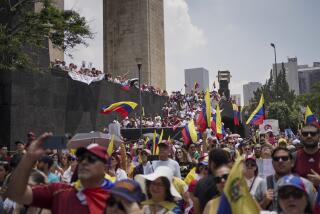
Venezuelans in Caracas and across the world demonstrate to defend opposition’s victory claim
Aug. 17, 2024
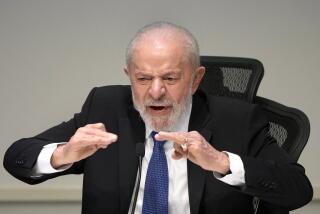
Venezuelan opposition leader rejects Brazil’s idea of redoing presidential vote
Aug. 15, 2024

Aid worker’s airport disappearance stokes fear of repression after disputed Venezuela vote
Aug. 10, 2024
Sign up for Essential California
The most important California stories and recommendations in your inbox every morning.
You may occasionally receive promotional content from the Los Angeles Times.

Tracy Wilkinson covers foreign affairs from the Los Angeles Times’ Washington, D.C., bureau.
More From the Los Angeles Times
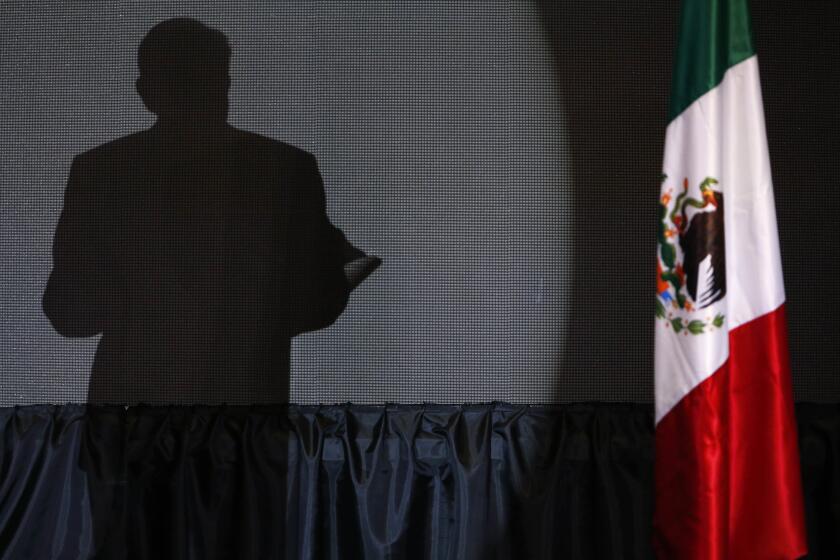
Kidnapping, capture, cover-up? Cremated body baffles Mexican officials in ‘El Mayo’ arrest
Aug. 18, 2024
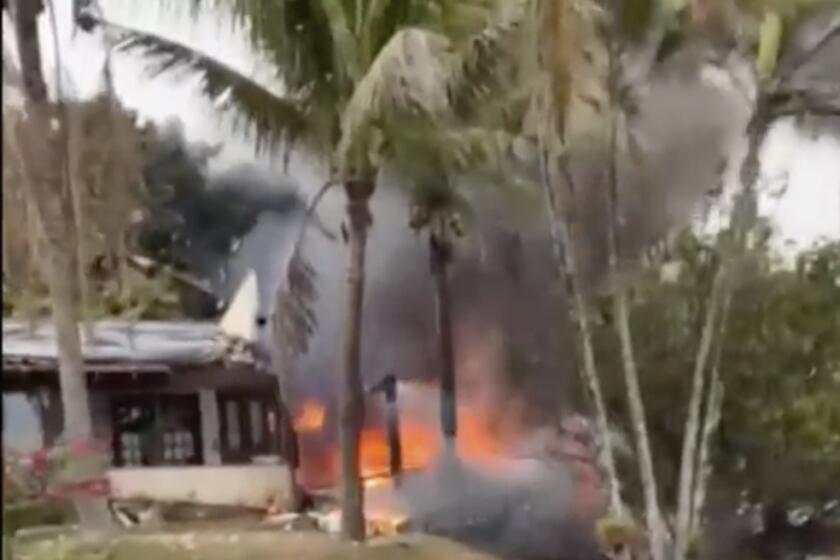
Plane crashes in Brazil’s São Paulo state, killing all 61 aboard, airline says
Aug. 9, 2024

Opinion: Nicolás Maduro’s landslide defeat hasn’t dislodged him. Is there still hope for Venezuela?
Aug. 8, 2024

Many immigrant spouses of California residents left out of Biden citizenship plan
Crime and Public Safety | ‘Tourism’ thieves accused of stealing $1…
Share this:.
- Click to share on Facebook (Opens in new window)
- Click to share on Twitter (Opens in new window)
- Click to print (Opens in new window)
- Click to email a link to a friend (Opens in new window)
- Click to share on Reddit (Opens in new window)
Today's e-Edition
- Latest News
- Environment
- Transportation
Breaking News
Crime and public safety | the latest: biden headlines night 1 of the dnc, crime and public safety, crime and public safety | ‘tourism’ thieves accused of stealing $1 million patek watch from a man at a california restaurant are busted, federal authorities charge members of ‘crime tourism’ ring.

Federal authorities have charged two men visiting the US from South America with stealing a $1 million wristwatch at a Beverly Hills restaurant, saying they were part of a “crime tourism” ring.
The suspects allegedly stole the Patek Philippe at gunpoint from a man who was sitting with his wife and daughter at the patio restaurant of the Beverly Wilshire Hotel on Aug. 7. One suspect pointed a gun at the man while the other removed the watch — a 5711/113p-001 Emerald Nautilus — from his wrist before fleeing in a getaway car, according to documents filed Tuesday in federal court in Los Angeles.
An affidavit attached to the criminal complaint indicates the suspects belong to a South American Theft Group, designated transnational criminal organizations of citizens from countries such as Chile, Colombia, Peru, and Venezuela. These groups commonly exploit the US immigration system and make fraudulent claims to enter the country, federal authorities said.
A spate of watch thefts has also plagued New York City in recent months. Some of those incidents have involved unidentified individuals placing men in chokeholds until they lose consciousness and then grabbing the victims’ watches.
In the latest theft, on Aug. 9, the victim was attacked at a subway station, according to the New York City Police Department.
Last month, the city’s police reported six other heists going as far back as March, some of them at upscale restaurants in Manhattan and in Williamsburg, Brooklyn.
In June, a victim was held up at gunpoint outside Carbone, a trendy Italian restaurant in Greenwich Village. Two men robbed his $100,000 watch and then fled the scene on a motorcycle. Another robbery targeted three men sitting at an outdoor restaurant in SoHo where one of two assailants flashed a silver firearm and took their watches worth $40,000, $35,000 and $8,500.
Police are looking for multiple suspects in these incidents.
‘Crime Tourism’
In the Los Angeles case, the criminals allegedly surveilled the Patek Philippe for two weeks before making their move. The victim and his family are UK citizens who reside in the United Arab Emirates, according to court documents.
If convicted on all counts, Sepulveda faces a statutory maximum sentence of life in federal prison, while Padron faces as many as 20 years.
Authorities described the heist as a form of “crime tourism,” involving people who live “nomadic lives” in Airbnbs and motels to avoid arrest after entering the US. They use counterfeit identification and aliases to disguise their identity and criminal history, according to the court documents.
Beverly Hills, where streets are lined with luxury boutiques, is a magnet for high-end shoppers and, occasionally, for criminals.
Three men were sentenced to federal prison terms in 2022 for stealing a $500,000 Richard Mille wristwatch at gunpoint from a sidewalk diner at Il Pastaio restaurant in Beverly Hills. Two shots were fired during that robbery, one of which wounded a diner in the leg.
The case is US v. Sepulveda, 2:24-mj-04834, US District Court, Central District of California (Los Angeles.)
–With assistance from Nacha Cattan and Katia Porzecanski.
More stories like this are available on bloomberg.com
©2024 Bloomberg L.P.
- Report an error
- Policies and Standards
More in Crime and Public Safety

Crashes and Disasters | Crews battling three-alarm brush fire in San Jose foothills

Crime and Public Safety | Lawsuit: Contra Costa social workers, Antioch police failed to prevent parents’ deadly abuse of toddler

Crashes and Disasters | Pinole man killed in motorcycle crash

Crashes and Disasters | San Jose firefighters battle two separate fires at residential structures
Security Alert May 17, 2024
Worldwide caution.
- Travel Advisories |
- Contact Us |
- MyTravelGov |
Find U.S. Embassies & Consulates
Travel.state.gov, congressional liaison, special issuance agency, u.s. passports, international travel, intercountry adoption, international parental child abduction, records and authentications, popular links, travel advisories, mytravelgov, stay connected, legal resources, legal information, info for u.s. law enforcement, replace or certify documents.
Before You Go
Learn About Your Destination
While Abroad
Emergencies
Share this page:
Travel Advisory May 13, 2024
Venezuela - level 4: do not travel.
Reissued after routine periodic review with minor edits pursuant to Department of State standard processes.
Do not travel to Venezuela due to crime , civil unrest, kidnapping , and the arbitrary enforcement of local laws . Reconsider travel due to wrongful detentions , terrorism , and poor health infrastructure .
Country Summary: In March 2019, the U.S. Department of State withdrew all diplomatic personnel from U.S. Embassy Caracas and suspended operations. All consular services, routine and emergency, remain suspended until further notice. The U.S. government has no ability to provide emergency services to U.S. citizens in Venezuela. U.S. citizens in Venezuela who require consular assistance should try to leave the country as soon as safely possible to do so and should contact a U.S. embassy or consulate in another country.
Violent crimes, such as homicide, armed robbery, kidnapping, and carjacking, are common in Venezuela. Political rallies and demonstrations occur, often with little notice. Anti-Maduro demonstrations have elicited a strong police and security force response, including the use of tear gas, pepper spray, and rubber bullets against participants, and occasionally devolve into looting and vandalism. Shortages of gasoline, electricity, water, medicine, and medical supplies continue throughout much of Venezuela.
The Department has determined there is a high risk of wrongful detention of U.S. nationals in Venezuela. Security forces have detained U.S. citizens for up to five years. The U.S. government is not generally notified of the detention of U.S. citizens in Venezuela or granted access to U.S. citizen prisoners there.
Colombian terrorist groups operate in Venezuela’s border areas with Colombia, Brazil, and Guyana.
Read the country information page for additional information on travel to Venezuela.
If you decide to travel to Venezuela:
- Avoid all land border crossings into Venezuela on the Colombian border.
- Ensure you have a valid Venezuelan visa. Visas are not available upon arrival.
- Be prepared for the high risk of indefinite detention without consular access.
- Draft a will and designate appropriate insurance beneficiaries and/or power of attorney.
- Develop a communication plan with family and/or your employer or host organization. Establish a “proof of life” protocol with your loved ones, so that if you are taken hostage, your loved ones know specific questions (and answers) to ask the hostage-takers to be sure that you are alive (and to rule out a hoax).
- Have a contingency plan in place that does not rely on U.S. government assistance.
- Keep travel documents up to date and easily accessible.
- Avoid travel between cities, or between Simón Bolívar International Airport and Caracas at night.
- Do not take unregulated taxis from the Maiquetia “Simón Bolívar” International Airport and avoid ATMs in this area.
- Consider hiring a professional security organization.
- Bring a sufficient supply of over the counter and prescription medicines for the duration of travel.
- Consider purchasing medical evacuation insurance.
- Visit our website for Travel to High-Risk Areas .
- Enroll in the Smart Traveler Enrollment Program (STEP) to receive Alerts and make it easier to locate you in an emergency.
- Follow the Department of State on Facebook and Twitter .
- Review the Country Security Report for Venezuela.
- Visit the CDC page for the latest Travel Health Information related to your travel.
- Review the Traveler’s Checklist .
Embassy Messages
View Alerts and Messages Archive
Quick Facts
Two pages, for visa and entry stamp.
Yes. You must get a Venezuelan visa before traveling to Venezuela. Visas are not available upon arrival. Note: U.S. travelers risk lengthy or indefinite detention for attempts to arrive at any Venezuelan border crossing without a valid Venezuelan visa.
Yellow fever vaccination required if coming from or transiting for more than 12 hours through Brazil.
USD 10,000 (or equivalent) or more must be declared.
Embassies and Consulates
U.S. Embassy Colombia Calle 24 Bis No. 48-50 Bogotá, D.C. Colombia Telephone: +(57)(1) 275-2000 Emergency: +(57)(1) 275-2000 Fax: No fax Email: [email protected] Website
The U.S. Department of State strongly recommends that U.S. citizens do not travel to Venezuela, and that U.S. citizens remaining in Venezuela depart immediately. More information can be found in the U.S. Department of State’s Venezuela Travel Advisory .
The U.S. Embassy in Caracas suspended operations on March 11, 2019, and therefore cannot provide protection or consular services to U.S. citizens in Venezuela. The U.S. Embassy in Colombia assists U.S. citizens in Venezuela when possible.
If you are a U.S. citizen in Venezuela in need of assistance, or are concerned about a U.S. citizen in Venezuela, please contact us in one of the following ways:
Email [email protected] ; or
Call us at +1-888-407-4747 (from the U.S. & Canada) or +1-202-501-4444 (from overseas).
Destination Description
Learn about the U.S. relationship to countries around the world.
Entry, Exit and Visa Requirements
The U.S. Department of State strongly recommends U.S. citizens do not travel to Venezuela. If you must travel to Venezuela, we recommend you avoid all land border crossings into Venezuela on the Colombian border. Detentions of U.S. citizens at formal or informal border crossings into Venezuela are common.
To enter Venezuela, you must have:
- A valid U.S. passport in good condition with at least six months of validity, and
- A valid Venezuelan visa. Visas are not available upon arrival.
Visas: The Venezuelan embassy and consulates in the United States are not open for visa processing. Contact the Venezuelan Embassy in Washington at 202-342-2214 for updates about the future availability of visa services. You must have the proper visa class and appropriate accreditation before traveling to Venezuela or face refusal of admission, expulsion, or detention.
Immigration officials often require proof of accommodation while in Venezuela, adequate means of support, and an onward departure itinerary. Use only official crossing points when entering Venezuela. You must obtain an entry stamp upon entry.
If you reside in Venezuela as a non-citizen, you must obtain legitimate Venezuelan residency documentation and renew your residency visa well in advance of expiration. Do not use intermediaries to purchase resident visas and/or work permits.
Traveling with Children: Venezuela’s child protection law mandates that minors (under 18) of any nationality who are traveling alone, with only one parent, or with a third party, must present extensive, specific, and notarized documentation granting permission for travel. Consult the nearest Venezuelan embassy or consulate for further information.
Dual Nationality: Venezuelan law requires Venezuelan citizens to enter and depart Venezuela using Venezuelan passports. If you hold dual U.S. and Venezuelan nationality, you must plan to travel between the United States and Venezuela with valid U.S. and Venezuelan passports. Dual-national minors are only allowed to depart Venezuela with both parents present or with a legal authorization signed by the absent parent in a family court.
Immunizations: Visit the CDC Traveler website for vaccination information, including Yellow Fever vaccination requirements. Carry your International Certificate of Vaccination (or yellow card) with you upon arrival or departure.
HIV/AIDS: The U.S. Department of State is unaware of any HIV/AIDS entry restrictions for visitors to or foreign residents of Venezuela. Be aware that HIV/AIDS medications, like other medications, are often not available in Venezuela.
Find further information on dual nationality , prevention of international child abduction , and customs regulations on our websites.
Safety and Security
Terrorism: Terrorist groups and those inspired by such organizations are intent on attacking U.S. citizens abroad. Terrorists are increasingly using less sophisticated methods of attack – including knives, firearms, and vehicles – to more effectively target crowds. Frequently, their aim is focused on unprotected or vulnerable targets, such as:
- High-profile public events (sporting contests, political rallies, demonstrations, holiday events, celebratory gatherings, etc.)
- Hotels, clubs, and restaurants frequented by tourists
- Places of worship
- Shopping malls and markets
- Public transportation systems (including subways, buses, trains, and scheduled commercial flights)
Terrorist groups such as the Revolutionary Armed Forces of Colombia – People’s Army (FARC-EP), Segunda Marquetalia, and the Colombian-origin National Liberation Army (ELN) have expanded in Venezuela in recent years. We are aware of reports of cooperation between FARC dissidents and the ELN in the areas of road/border checkpoints, forced displacement of communities, and narcotics trafficking.
For more information, see our Terrorism page.
Crime: Violent crime is pervasive throughout Venezuela. Venezuela has one of the highest homicide rates in the world, and kidnappings are a serious concern. Be alert of your surroundings at all times and take personal security precautions to avoid becoming a victim of crime. Maintain a low profile, travel in groups of five or more, and provide family or friends with your itineraries prior to departure.
Avoid police activity. Corruption within the police forces is a concern, and criminals may be posing as police officers or National Guard members. National Guard members may target U.S. citizens, especially at remote land border crossings, for bribery, extortion, or detention, possibly in collusion with criminal organizations.
Criminal gangs operate openly and with little repercussion, often setting up fake police checkpoints. Armed robberies, including with grenades and assault rifles, take place throughout the country, including in tourist areas and institutions such as banks and ATMs, national parks, shopping malls, public transportation stations, and universities.
Drugs: Do not attempt to bring any narcotics or controlled substances into Venezuela, or substances that may be confused with illegal drugs. Do not accept packages from anyone and always keep your luggage with you. U.S. citizens have been actively recruited to act as narcotics couriers or “drug mules.” Arrestees can expect extended jail terms under extremely difficult prison conditions.
Transportation: Do not use any taxis hailed on the street. Some taxi drivers in Caracas are known to overcharge, rob, injure, and even kidnap passengers. Use only radio-dispatched taxis from taxi services, hotels, restaurants, and airline staff. Do not use public transportation such as city buses and the metro (subway) in Caracas. If you drive, be aware of attacks in tunnels and avoid obstacles in the road.
Maiquetía International Airport: Only travel to and from Maiquetía International Airport near Caracas in daylight hours. Kidnappings, robberies at gunpoint, thefts, and muggings are common. Do not pack valuable items or documents in checked luggage. Individuals wearing seemingly official uniforms and displaying airport or police credentials have been involved in crimes inside the airport, including extortion and robberies. Make advance plans for transportation from the airport to your hotel or destination using a trusted party or dispatch taxi service.
ATMs: Most ATMs do not accept U.S. debit or credit cards, and malfunctions are common. Use only those located in well-lit, public places. ATM data is often hacked and used to make unauthorized withdrawals. Criminals target ATM users for robberies. Many ATMs do not have cash.
Demonstrations occur occasionally. They may take place in response to political or economic issues, on politically significant holidays, and during international events.
- Demonstrations can be unpredictable; avoid areas around protests and demonstrations.
- Past demonstrations have turned violent.
- Check local media for updates and traffic advisories.
International Financial Scams: See the Department of State and the FBI pages for information.
Internet romance and financial scams are prevalent in Venezuela. Scams are often initiated through Internet postings/profiles or by unsolicited emails and letters. Scammers almost always pose as U.S. citizens who have no one else to turn to for help. Common scams include:
- Romance/online dating
- Money transfers
- Grandparent/relative targeting
Victims of Crime: The U.S. government has extremely limited means of providing consular services to U.S. citizen crime victims in Venezuela. U.S. citizen victims of sexual assault are encouraged to contact the U.S. Embassy in Bogota. Report crimes to the local police at 171, and contact the U.S. Embassy in Bogota by emailing [email protected] or dialing +57 (1) 275-2000 or +57 (1) 275-4021 after hours. Remember that local authorities are responsible for investigating and prosecuting crime.
See our webpage on help for U.S. victims of crimes overseas .
- Help you find appropriate medical care
- Contact relatives or friends with your written consent
- Provide general information regarding the victim’s role during the local investigation and following its conclusion
- Provide a list of local attorneys
- Provide our information on victim’s compensation programs in the U.S.
- Help you find accommodation and arrange flights home
- If you are able to travel to a U.S. Embassy, we can replace a stolen or lost passport and provide an emergency loan for repatriation to the United States and/or limited medical support in cases of destitution
Domestic Violence: U.S. citizen victims of domestic violence are encouraged to contact the U.S. Embassy in Bogota for assistance.
Colombian Border: The area within a 50-mile radius along the entire Venezuela and Colombian border is extremely dangerous. U.S. citizens near the border are at risk of detention by Maduro regime authorities. U.S. citizens must obtain a visa to enter Venezuela legally. Visas are not available upon arrival. U.S. citizens attempting to enter Venezuela without a visa have been charged with terrorism and other serious crimes and detained for long periods. The Maduro regime does not notify the U.S. government of the detention of U.S. citizens and the U.S. government is not granted access to those citizens. Additionally, cross-border violence, kidnapping, drug trafficking, and smuggling are common. Some kidnapping victims are released after ransom payments, while others are murdered. Do not attempt to cross the land border.
Tourism: No formal tourism industry infrastructure is in place on any level. Tourists participate in activities at their own risk. Emergency response and subsequent appropriate medical treatment is not available in-country. U.S. citizens are encouraged to purchase medical evacuation insurance. See our webpage for more information on insurance providers for overseas coverage . Serious medical issues require costly medical evacuation complicated by restrictions on air travel to and from Venezuela. Air evacuations to the United States from Venezuela may not be possible.
Local Laws & Special Circumstances
Criminal Penalties: You are subject to local laws. If you violate local laws, even unknowingly, you may be expelled, arrested, or imprisoned. Individuals establishing a business or practicing a profession that requires additional permits or licensing should seek information from the competent local authorities prior to practicing or operating a business. Application of local laws can at times be arbitrary and/or politically motivated.
In Venezuela, it is illegal to take pictures of sensitive buildings, including the presidential palace, military bases, government buildings, and airports.
Drug trafficking is a serious problem in Venezuela and treated as such by Venezuelan authorities. Convicted traffickers receive lengthy prison sentences.
Furthermore, some laws are also prosecutable in the United States, regardless of local law. For examples, see our website on crimes against minors abroad and the Department of Justice website.
Arrest Notification: If you are arrested or detained, attempt to have someone notify the U.S. Embassy in Bogota immediately. See our webpage for further information.
Please note that the U.S. Department of State may not be informed of your detention, particularly if you also hold Venezuelan citizenship. Due to the suspension of operations of the U.S. Embassy in Caracas, consular visits to detained U.S. citizens are not possible. There have been instances of U.S. citizens in recent years who have been detained without being afforded due process or fair trial guarantees, or as a pretext for an illegitimate purpose, often due to their U.S. citizenship.
Currency and Exchange: Venezuela has started to allow dollarized commercial transactions and shopping, but policies and availability are subject to change. Some local businesses accept U.S. credit cards and electronic transfers through certain online vendors. “Black market” currency exchanges – often offering significantly favorable exchange rates – are technically prohibited under Venezuelan foreign exchange controls. Violators may be detained by Venezuelan authorities and face criminal penalties.
Wire Transfers: Wire transfers cannot be used reliably as a source of emergency funds, and receipt of funds is generally restricted to Venezuelan citizens and residents.
Counterfeit and Pirated Goods: Although counterfeit and pirated goods are prevalent in many countries, they may still be illegal according to local laws. You may also pay fines or have to give them up if you bring them back to the United States. See the U.S. Department of Justice website for more information.
Faith-Based Travelers: See the following webpages for details:
- Faith-Based Travel Information
- International Religious Freedom Report – see country reports
- Human Rights Report – see country reports
- Hajj Fact Sheet for Travelers
- Best Practices for Volunteering Abroad
LGBTQI+ Travelers: There are no legal restrictions on same-sex sexual relations or the organization of LGBTIQ+ events in Venezuela.
See our LGBTI Travel Information page and section 6 of our Human Rights report for further details.
Travelers with Disabilities: The law in Venezuela prohibits discrimination against persons with physical and mental disabilities, but the law is not enforced. Social acceptance of persons with disabilities in public is not as prevalent as in the United States. Expect accessibility to be limited in public transportation, lodging, communication/information, and general infrastructure. Accessibility is more prevalent in the capital city of Caracas than in the rest of the country.
The availability of rental, repair, and replacement parts for aids/equipment/devices as well as service providers, such as sign language interpreters or personal assistants, is limited.
Students: See our Students Abroad page and FBI travel tips .
Women Travelers: See our travel tips for Women Travelers .
All air passengers entering Venezuela must present a certificate of vaccination against COVID-19 (completed vaccination schedule) in either physical or digital format (with QR code), with the last dose administered at least 14 days prior to the entry date in Venezuela. If more than 270 days has passed since the last dose of a completed vaccination schedule, proof of a booster dose is required. In lieu of proof of vaccination, passengers must present a negative PCR-RT COVID-19 test result, taken within 72 hours of arriving. Please visit the U.S. Embassy’s COVID-19 page for more information on COVID-19 in Venezuela.
For emergency services in Venezuela, dial 171.
Ambulance services are:
- not widely available, depending on the individual’s health insurance, and training and availability of emergency responders may be below U.S. standards.
- unreliable in most areas.
- not equipped with state-of-the-art medical equipment.
Injured or seriously ill travelers may prefer to take a taxi or private vehicle to the nearest major hospital rather than wait for an ambulance.
Emergency medical evacuation flights between the United States and Venezuela may not be possible.
We do not pay medical bills. Be aware that U.S. Medicare/Medicaid does not apply overseas. Most hospitals and doctors overseas do not accept U.S. health insurance.
Medical Insurance: Make sure your health insurance plan provides coverage overseas. Most care providers overseas only accept cash payments. See our webpage for more information on insurance providers for overseas coverage. Visit the U.S. Centers for Disease Control and Prevention for more information on types of insurance you should consider before you travel overseas.
We strongly recommend supplemental insurance to cover medical evacuation.
Always carry your prescription medication in original packaging, along with your doctor’s prescription. Before travelling to Venezuela with prescription medications, travelers should research current Customs and Immigration restrictions in place at Venezuelan ports of entry.
Vaccinations: Be up to date on all vaccinations recommended by the U.S. Centers for Disease Control and Prevention. A Yellow Fever vaccination is required if coming from or transiting for more than 12 hours through Brazil. Carry your International Certificate of Vaccination (or yellow card) with you upon arrival.
Health Facilities in General:
- Do not depend on health care facilities in Venezuela for medical care. Serious medical issues require costly medical evacuation complicated by restrictions on air travel to and from Venezuela. Air evacuations to the United States may not be possible.
- Public medical clinics lack basic resources and supplies, including soap and water. In recent years, hospital infrastructure has deteriorated significantly, and medical staff are in short supply. Patients frequently must supply their own water, medication, and medical instruments to receive care.
- Adequate private health facilities are available in Caracas and other major cities, but health care in rural areas is well below U.S. standards. Many private hospitals and clinics are increasingly overcrowded and experience shortages of public utilities such as electricity and running water.
- Some private hospitals and doctors require cash payment “up front” prior to service or admission. Credit card payment and online transfers are sometimes available. If you cannot provide an up-front payment, you may be referred to a public institution.
- Medical staff may speak little to no English.
- Generally, in public hospitals only minimal staff is available overnight. Consider hiring a private nurse or having family spend the night with the patient, especially a minor child.
- Patients may be required to bear costs for transfer to or between hospitals.
- Psychological and psychiatric services are limited, even in the larger cities.
Medical Tourism and Elective Surgery
- U.S. citizens have suffered serious complications or died during or after having cosmetic or other elective surgery.
- Visit the U.S. Centers for Disease Control and Prevention website for information on medical tourism, the risks of medical tourism, and what you can do to prepare before traveling to Venezuela.
- We strongly recommend supplemental insurance to cover medical evacuation in the event of unforeseen medical complications.
- Your legal options in case of malpractice are very limited in Venezuela.
Pharmaceuticals:
- Some medical supplies are unavailable in Venezuela, and you should not expect to find all necessary medications in Venezuela. Travelers should carry over the counter and prescription drugs sufficient to cover the entire duration of their trips.
- Exercise caution when purchasing medication overseas. Pharmaceuticals, both over the counter and requiring prescription in the United States, are often readily available for purchase with little controls. Counterfeit medication is common and may prove to be ineffective, the wrong strength, or contain dangerous ingredients. Medication should be purchased in consultation with a medical professional and from reputable establishments.
- U.S. Customs and Border Protection and the Food and Drug Administration are responsible for rules governing the transport of medication back to the United States. Medication purchased abroad must meet their requirements to be legally brought back into the United States. Medication should be for personal use and must be approved for usage in the United States. Please visit the U.S. Customs and Border Protection and the Food and Drug Administration websites for more information.
Assisted Reproductive Technology and Surrogacy
- If you are considering traveling to Venezuela to have a child through use of assisted reproductive technology (ART) or surrogacy, please see our ART and Surrogacy Abroad page .
- There is no legal framework for foreigners or same-sex couples to pursue surrogacy in Venezuela. According to Venezuelan law, the birth mother of a child born in Venezuela is the legal mother. Surrogacy agreements between foreign or same sex intending parents and gestational mothers are not enforced by Venezuelan courts.
- If you decide to pursue parenthood in Venezuela via assisted reproductive technology (ART) with a gestational mother, be prepared for long and unexpected delays in documenting your child’s citizenship. Be aware that individuals who attempt to circumvent local law risk criminal prosecution.
Water Quality:
- Tap water is not potable, even in major cities. Bottled water and beverages are generally safe, although you should be aware that many restaurants and hotels serve tap water unless bottled water is specifically requested. Be aware that ice for drinks may be made using tap water.
- Expect frequent shortages in running water.
- Gastrointestinal illnesses such as severe diarrhea are common throughout the country.
Adventure Travel
- Visit the U.S. Centers for Disease Control and Prevention website for more information about Adventure Travel .
General Health
The following diseases are prevalent:
- Chikungunya
- Chagas Disease (Trypanosomiasis)
- Measles (Rubeloa)
- Leishmaniasis
- Schistosomiasis (Bilharzia)
- Travelers’ Diarrhea
- Use the U.S. Centers for Disease Control and Prevention recommended mosquito repellents and sleep under insecticide-impregnated mosquito nets. Chemoprophylaxis is recommended for all travelers even for short stays.
- Visit the U.S. Centers for Disease Control and Prevention website for more information about Resources for Travelers regarding specific issues in Venezuela.
Travel and Transportation
Road Conditions and Safety:
- Avoid driving in Venezuela. If you do drive, drive defensively, as most drivers do not obey rules.
- Do not drive at night outside major cities. Police and national guard checkpoints are mandatory, and criminals often set up fake checkpoints during nighttime to rob or kidnap victims.
- Road damage is not clearly marked.
- Traffic jams are common within Caracas during most of the day and are frequently exploited by criminals. Armed motorcycle gangs operate in traffic jams. Comply with demands as victims may be killed for not complying.
- Do not use buses due to high levels of criminal activity.
- Venezuela is experiencing severe shortages in gasoline, and you should plan accordingly.
Traffic Laws:
- Child car seats and seatbelts are not required and are seldom available in rental cars and taxis.
- Some Caracas municipalities have outlawed the use of handheld cell phones while driving.
- Stops at National Guard and local police checkpoints are mandatory. Follow all National Guard instructions and be prepared to show vehicle and insurance papers and passports. Vehicles may be searched.
Public Transportation: Subways, buses, trains, and other means of public transport in Venezuela do not have the same safety standards as in the United States.
See our Road Safety page for more information.
Aviation Safety Oversight: The U.S. Federal Aviation Administration (FAA) has assessed that Venezuela’s Civil Aviation Authority is not in compliance with International Civil Aviation Organization (ICAO) aviation safety standards for oversight of Venezuela’s air carrier operations. Further information may be found on the FAA’s safety assessment page .
The U.S. Department of Transportation issued an order suspending all nonstop flights between the United States and Venezuela. The Department of Homeland Security concluded that conditions in Venezuela threaten the safety and security of passengers, aircraft, and crew traveling to or from that country.
Due to risks to civil aviation operating within or in the vicinity of Venezuela, the Federal Aviation Administration (FAA) has issued a Notice to Air Missions (NOTAM) and/or a Special Federal Aviation Regulation (SFAR). For more information, U.S. citizens should consult the Federal Aviation Administration’s Prohibitions, Restrictions, and Notices . Emergency medical evacuation flights between the United States and Venezuela may not be possible.
Maritime Travel:
Mariners planning travel to Venezuela should check for U.S. maritime advisories and alerts . Information may also be posted to the U.S. Coast Guard homeport website, and the NGA broadcast warnings website .
Incidents of piracy off the coast of Venezuela remain a concern. Yachters should note that anchoring offshore is not considered safe. Marinas, including those in Puerto la Cruz and Margarita Island (Porlamar), provide only minimal security, and you should exercise a heightened level of caution in Venezuelan waters.
For additional travel information
- Enroll in the Smart Traveler Enrollment Program (STEP) to receive security messages and make it easier to locate you in an emergency.
- Call us in Washington, D.C. at 1-888-407-4747 (toll-free in the United States and Canada) or 1-202-501-4444 (from all other countries) from 8:00 a.m. to 8:00 p.m., Eastern Standard Time, Monday through Friday (except U.S. federal holidays).
- See the State Department’s travel website for the Worldwide Caution and Travel Advisories .
- Follow us on X (formerly known as "Twitter") and Facebook .
- See traveling safely abroad for useful travel tips.
Review information about International Parental Child Abduction in Venezuela . For additional IPCA-related information, please see the International Child Abduction Prevention and Return Act ( ICAPRA ) report.
Travel Advisory Levels
Assistance for u.s. citizens, venezuela map, learn about your destination, enroll in step.

Subscribe to get up-to-date safety and security information and help us reach you in an emergency abroad.
Recommended Web Browsers: Microsoft Edge or Google Chrome.
Make two copies of all of your travel documents in case of emergency, and leave one with a trusted friend or relative.
Afghanistan
Antigua and Barbuda
Bonaire, Sint Eustatius, and Saba
Bosnia and Herzegovina
British Virgin Islands
Burkina Faso
Burma (Myanmar)
Cayman Islands
Central African Republic
Cote d Ivoire
Curaçao
Czech Republic
Democratic Republic of the Congo
Dominican Republic
El Salvador
Equatorial Guinea
Eswatini (Swaziland)
Falkland Islands
France (includes Monaco)
French Guiana
French Polynesia
French West Indies
Guadeloupe, Martinique, Saint Martin, and Saint Barthélemy (French West Indies)
Guinea-Bissau
Isle of Man
Israel, The West Bank and Gaza
Liechtenstein
Marshall Islands
Netherlands
New Caledonia
New Zealand
North Korea (Democratic People's Republic of Korea)
Papua New Guinea
Philippines
Republic of North Macedonia
Republic of the Congo
Saint Kitts and Nevis
Saint Lucia
Saint Vincent and the Grenadines
Sao Tome and Principe
Saudi Arabia
Sierra Leone
Sint Maarten
Solomon Islands
South Africa
South Korea
South Sudan
Switzerland
The Bahamas
Timor-Leste
Trinidad and Tobago
Turkmenistan
Turks and Caicos Islands
United Arab Emirates
United Kingdom
Vatican City (Holy See)
External Link
You are about to leave travel.state.gov for an external website that is not maintained by the U.S. Department of State.
Links to external websites are provided as a convenience and should not be construed as an endorsement by the U.S. Department of State of the views or products contained therein. If you wish to remain on travel.state.gov, click the "cancel" message.
You are about to visit:
13 Reasons To Visit Venezuela Right Now

Your changes have been saved
Email is sent
Email has already been sent
Please verify your email address.
You’ve reached your account maximum for followed topics.
10 State Parks In Arizona Known For Scenic Campsites
10 state parks in washington with scenic hikes, 12 top travel destinations in the us for 2024, read update.
More Reasons Why One Should Visit Venezuela
Venezuela is one of the few countries in the world that still appeals to tourists, even though it has been tagged as one of the most dangerous countries in the world. Like many other Latin American countries, it is no doubt risky to visit (especially for travelers), but the huge list of attractions and adventures the country offers are worth the risks. For those willing but still hesitant, here are some reasons why you should take a trip to Venezuela right now.
UPDATE: 2023/02/04 21:11 EST BY AARON SPRAY
Venezuela is one of the most stunning countries in South America to visit. Unfortunately, no one should visit the country at the moment, and everyone should defer to relevant travel advice. Still, there are many reasons why one would like to visit the tropical rainforest-covered country with plenty of pristine beaches. This list has been expanded with more reasons to visit.
13 Venezuela Is Cheap
The country is one of the cheapest countries in the world to visit . The exchange rates may vary, but a hundred US dollars is still more than 20 million Venezuelan Bolivar (VEF). One who has such economic power in Venezuela lives like royalty. For comparison, the average monthly salary of a worker in Venezuela is $25, and the minimum wage is $6. Food and transportation are so cheap one can easily eat prestigiously in a month with just $100. Most restaurants, bars, and other service providers accept US Dollars so there usually is no need for exchanges.
12 It Is Home To The World’s Tallest Waterfall
At a total height of 979 m (3212 feet), Angel Falls is the tallest waterfall in the world . The waterfall is located in Canaima National Park in Venezuela and presents amazing scenery as well as adventures. Things to do around the waterfall include hiking, mountain climbing, and kayaking in the Carrao River.
11 Incredible Food
Venezuela has one of the most savory cuisines in South America . It is a combination of Spanish, French, West African, Italian, and Portuguese cultures that makes it so unique. Expect lots of rice, plantain, yam, and beans, as these are some of the country’s staples. More precisely, the dishes usually consist of fresh produce, which makes it not just delicious but healthy as well. The fact that they are incredibly cheap also means that one can have as much as one desires. Caracas - the capital and largest city in Venezuela, is the best place to enjoy this food diversity as there are many restaurants spread out across the city.
Related: These Are Some Of The Healthiest Cuisines Around The World (They're Not What You'd Expect)
10 Interesting Wildlife
The rich fauna of Venezuela presents hundreds of mammalian, reptilian, and amphibian species. The country also hosts more than a thousand species of birds and fish. The Amazon river dolphin and the Orinoco Crocodiles are some of the unique creatures to see here. This incredible biodiversity can be seen and explored in the numerous National parks in the country. Some of the national parks to visit include:
- Henri Pittier National Park; For amazing bird watching
- Canaima National Park; For a diverse exploration of animals
- Los Roques Archipelago National Park; For a thrilling exploration of marine life in Venezuela.
9 Beautiful Beaches
The beaches in Venezuela are mostly characterized by beautiful white sand beaches, tall palm trees, swelling waves, and beautiful turquoise waters. The huge line-up of beaches will have travelers enjoying their tropical vacation, relaxing on the soft pristine sands or windsurfing in the restless waters.
Related: Caribbean Vs. Bahamas: Which Islands Make For A Better Tropical Vacation?
8 So Many Spectacular Mountains
Mountain seekers will find thrill in Venezuela as the country features lots of tall and challenging mountains. Some of the most notable ones, such as Pico Bolivar - the tallest in Venezuela, and Mount Roraima - the highest of the Pakaraima chain of Tepuis in South America present spectacular scenery with snow-capped mountain tops and surrounding lush forests.
7 Gasoline And Transportation Are So Cheap
Venezuela has the largest oil reserves in the world, which is why gas is so cheap in the country. One may even be tempted to buy a couple of gallons and export them, but that’s illegal. A few cents is usually enough to fill up a car’s tank. It is as cheap as water. The cheap price of gas in the country is also why transportation in the country is so cheap.
6 Great Weather
Venezuela is hot all year round, with bright sunny clear skies creating a conducive atmosphere for many outdoor activities. The average water temperature of 29 degrees Celsius (84°F) combined with the bright atmosphere also makes the beach even more appealing.
5 Love For Baseball
Baseball lovers will enjoy the game to its fullest in Venezuela as it is the most loved sport in the country. Some of the most famous baseball players in the world, such as Miguel Cabrera and Luis Aparicio, came from this country. Throughout the year, there are baseball events held across the country that draw in devoted baseball lovers from all over the world.
4 Highest And Second Longest Cable Car In The World
For those who love heights and thrill, Merida cable car is the ultimate place to enjoy this experience. Standing at the height of 4765 meters (15633 feet), it is the highest cable car in the world . It also stretches for a length of 12.5 kilometers, making it the longest cable ride in the world.
3 The Lightning Capital Of The World
Venezuela is home to Maracaibo Lake , which is famous as being the lightning capital of the world. There are more lightning strikes here than in any other part of the world. Visitors can go and discover why sailors have referred to it as the lighthouse of Venezuela. But that's not all; Lake Maracaibo is also the largest lake in South America (or at least a very large tidal estuary).
2 The Rainforest
Venezuela is also home to extensive tropical rainforests, including parts of the Amazon rainforest in the south (to be part of the Amazon rainforest, the forest needs to be a part of the Amazon basin). The basin is massive, with 2.1 million square miles of its 2.7 million square miles covered by rainforest. It is made up of 390 billion trees, and it is the largest and most biodiverse tropical rainforest in the world.
1 Unspoiled By Tourists
Unfortunately, Venezuela is not suitable for travel at the current time on account of the economic and political crises that have been ravishing the country for many years. The upshot is one day, when the country is once again open for tourism; it will be a virgin destination for travelers. There is almost no international tourism in Venezuela at the moment, but hopefully, that will change in the future.
- Destinations

IMAGES
COMMENTS
Venezuela is basically what happens if you let a democracy collapse due to meddling Capitalism in with "Socialism" (really just communism). I'm in one of the most socially liberal and open minded cities and still it's full of regressive, backwards thinking, pearl clutching Catholics among the poor and the 1%ers with their 15 year old Toyota ...
Venezuela IS a good tourist destination. While situation is not the best for Venezuelans, tourists can have great time here. We got a lot of places to go, we have great beaches, delicious food great liquor and great women. And for you, a lot of things will be cheap.
Scumbag Venezuelan Redditors. We all speak spanish, as a natural language and yet we comment here in english jaja. Btw my dad always worked in the tourism industries, and he always said that Vzla could subsist with only the tourist income if we develop it, has it could be develop. Sadly we hav e the oil and don't care for anything else.
Venezuela's cosmopolitan and congested capital is an exciting place to be. There is a fine restaurant and street-food scene, beautiful architecture - especially Art Deco and Bauhaus, and nature ...
Check out this Spanish phrase book which will give you some useful travel lingo to help you out while in the streets. According to data collected by Numbeo, Caracas scored 83.10 on the crime index (0 being the safest whilst 100 the most dangerous). For reference, Mexico City scored 67.95 whilst Lima scored 70.70.
1) Salto Angel. Angel Falls, at 979 meters high, proudly boasts being the highest waterfall in the world. Located in the Venezuelan Gran Sabana, this is a place holding a sacred character for the natives. It is, without a doubt, the biggest out of all Venezuela tourist attractions.
Wanna travel to Venezuela with Against the Compass? Join us on a 2-week adventure across Canaima National Park, Los Llanos, Mérida and the Caribbean coast. January 8th to 21st, 2025. learn more. Arguably, Venezuela might be the best country for travel in the whole of South America. Blessed with the longest coastline in the Caribbean, the ...
National Pantheon of Venezuela. 10. Parque Nacional Los Médanos de Coro (Medanos de Coro National Park) 11. Mochima National Park. 1. Angel Falls. Angel Falls. In the heart of the country, where table top mountains rise up like giant monoliths from the surrounding landscape, is Angel Falls.
Fast Facts about Venezuela. Power voltage is 120V at 60 Hz. Venezuela's currency is the Venezuelan Bolívar and 1 Bolívar is equal to 0.100125 USD. The best way to get around Venezuela is by taxi or bus. You will need to get a Venezuelan Tourist Visa prior to visiting, as well as a US passport valid for at least 6 months after your stay.
Reissued after routine periodic review with minor edits pursuant to Department of State standard processes. Do not travel to Venezuela due to crime, civil unrest, kidnapping, and the arbitrary enforcement of local laws.. Reconsider travel due to wrongful detentions, terrorism, and poor health infrastructure.. Country Summary: In March 2019, the U.S. Department of State withdrew all diplomatic ...
Right now, Venezuela is not safe to visit, and foreigners should stay away. The reason is the deep economic crisis and political instability, which has led to widespread shortages and civil unrest. The instability has created the perfect environment for crime, especially violent crime, to flourish. Many foreign governments, such as New Zealand ...
Within 80km of the Venezuela-Colombia border. FCDO advises against all travel to within 80km (50 miles) of the border with Colombia. Drug traffickers and illegal armed groups are active along the ...
It is recommended that you are not totally alone, but you CAN do it and it's an economical way to travel in Venezuela. 7. You must be careful in public areas, especially with people on motorcycles, but do NOT think badly of the general population. This is true in any new country you visit, and more so in Venezuela.
Backlash toward migrants has intensified in Chile, as well as in Peru and Ecuador, which have similarly tightened requirements for issuing tourist visas to Venezuelans. IE 11 is not supported.
1. Angel Falls. Source: Douglas Olivares / shutterstock. Angel Falls. Venezuela is home to the world's highest waterfall. Needless to say, this is the most popular destination in the country. With nearly a 1 kilometre drop, spectacular is really the only word to describe it.
Go to the beaches and it's flooded with foreigner tourists. Also, if you go the pool/restaurants in Hotels in major cities and pay attention you can notice there are intl exces talking in English/Chinese/Russian from time to time. People still do business travel and come tourist to the beaches. Reply reply. darkades94.
The US State Department has released an issue for all tourists to reconsider travel to Venezuela due to crime, civil unrest, poor health infrastructure, and detention of U.S. citizens. There are numerous areas that are extremely dangerous. Avoid traveling to certain neighborhoods of Caracas due to crime. Places, where tourists are relatively ...
Caracas is the capital of Venezuela and a world-class cosmopolitan city. In the west of the city, the Libertador municipality, tourism is important in regard to the historic centre of the city, the Caracas Cable Car (Ávila mountain Cable Car), the University City of Caracas, Zoos, Sabana Grande Boulevard, among others.. In the east of the city, especially in the Chacao and Baruta ...
LIMA, Peru (AP) — President Nicolás Maduro's contested claim of victory in last month's election not only threw Venezuela into uncertainty but also spread anxiety from neighboring Colombia to faraway Chile as the region braced for a new migration surge.. Over the past decade since Maduro became president, the United Nations estimates that a staggering 7.7 million Venezuelans have fled ...
5. Re: Venezuela Tourist Visa for US citizens (SUCCESS!) The visa given to US citizens (at the Mexico DF embassy) is normally 3-6 months multiple entry. The flight ticket and hotel dates dont really matter so I would make make a reservation for something 3-4 months ahead of time.
Venezuela's political situation is volatile. Avoid protests and large gatherings as they may turn violent. Common violent crime includes murder, armed robbery, drive-by shootings, sexual assault and carjackings. Criminals are often armed. Avoid walking in isolated areas, especially at night.
Through 'Birth Tourism,' tens of thousands of foreign nationals fraudulently enter the U.S. each year during the final weeks of their pregnancies for the sole purpose of obtaining U.S. citizenship ...
Venezuela has one of the highest murder rates in the world. Armed robbery, mugging, carjacking and burglary are all very common and often accompanied by extreme violence. Do not resist an attacker ...
In Europe's tourist high season, professionals and residents offer advice on making things easier on locals — and travelers. What they want you to know. Aug. 11, 2024
Click to share on Reddit (Opens in new window) ... 'Tourism' thieves accused of stealing $1 million Patek watch from a man at a California restaurant are busted ... 19, of Venezuela ...
Call us in Washington, D.C. at 1-888-407-4747 (toll-free in the United States and Canada) or 1-202-501-4444 (from all other countries) from 8:00 a.m. to 8:00 p.m., Eastern Standard Time, Monday through Friday (except U.S. federal holidays). See the State Department's travel website for the Worldwide Caution and Travel Advisories.
Venezuela is a country in South America. Having a shoreline along the Caribbean Sea and the North Atlantic Ocean, Venezuela borders Colombia to the west, Guyana to the east and Brazil to the south, and is situated on the major sea and air routes linking North and South America. Off the Venezuelan coast are the Caribbean islands of Aruba, Bonaire, Curaçao and Trinidad and Tobago.
3 The Lightning Capital Of The World. Venezuela is home to Maracaibo Lake, which is famous as being the lightning capital of the world. There are more lightning strikes here than in any other part of the world. Visitors can go and discover why sailors have referred to it as the lighthouse of Venezuela.